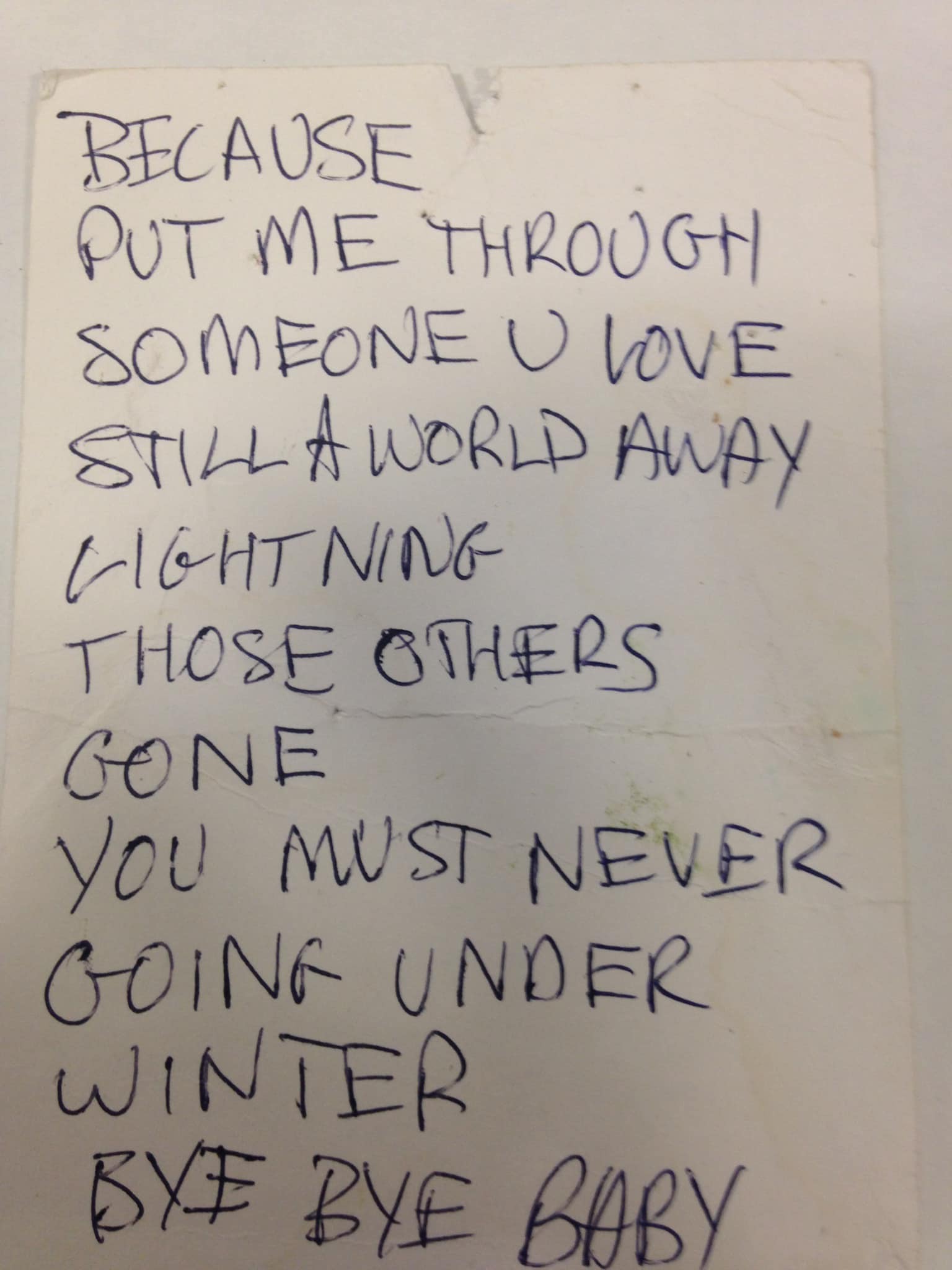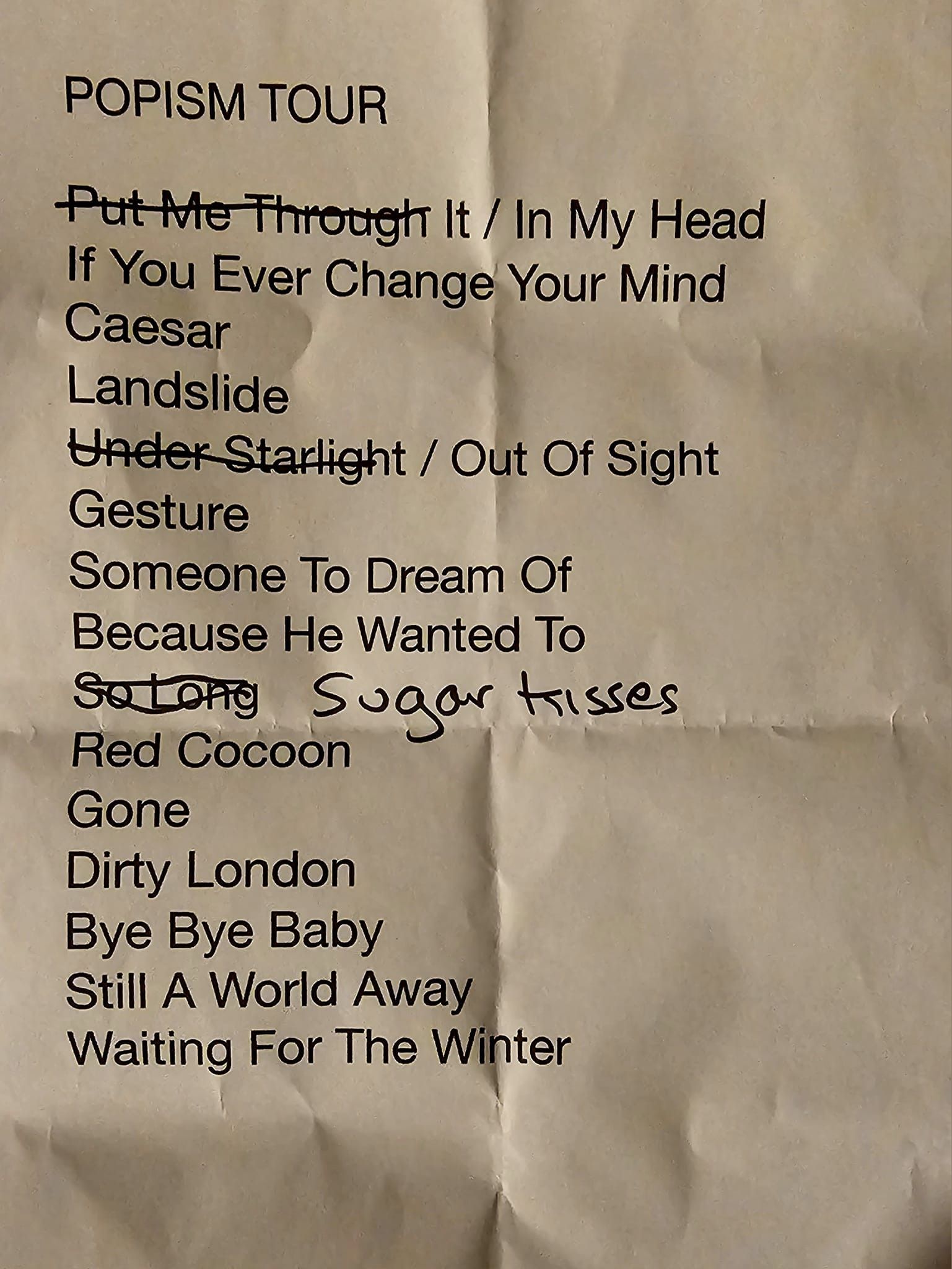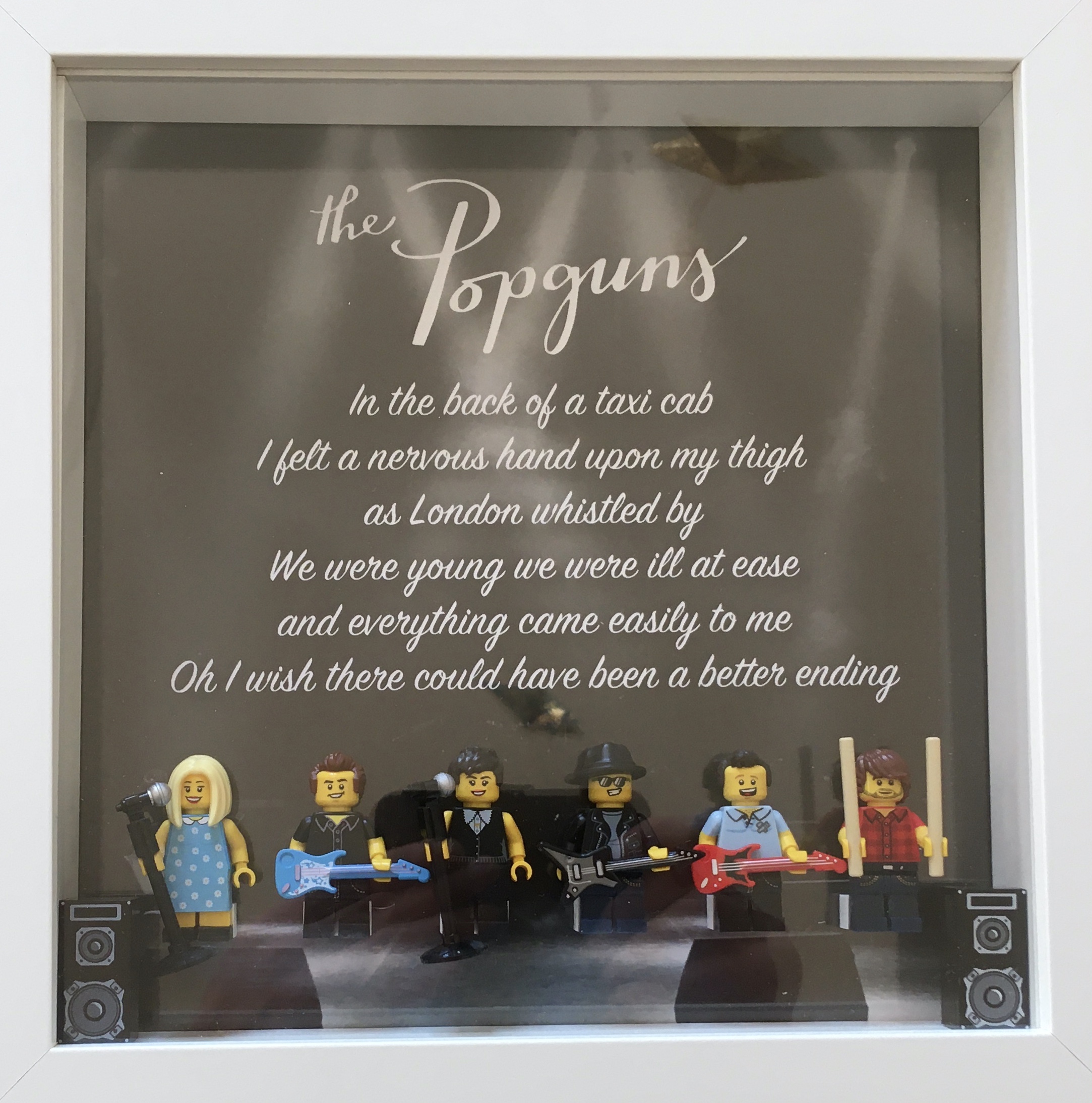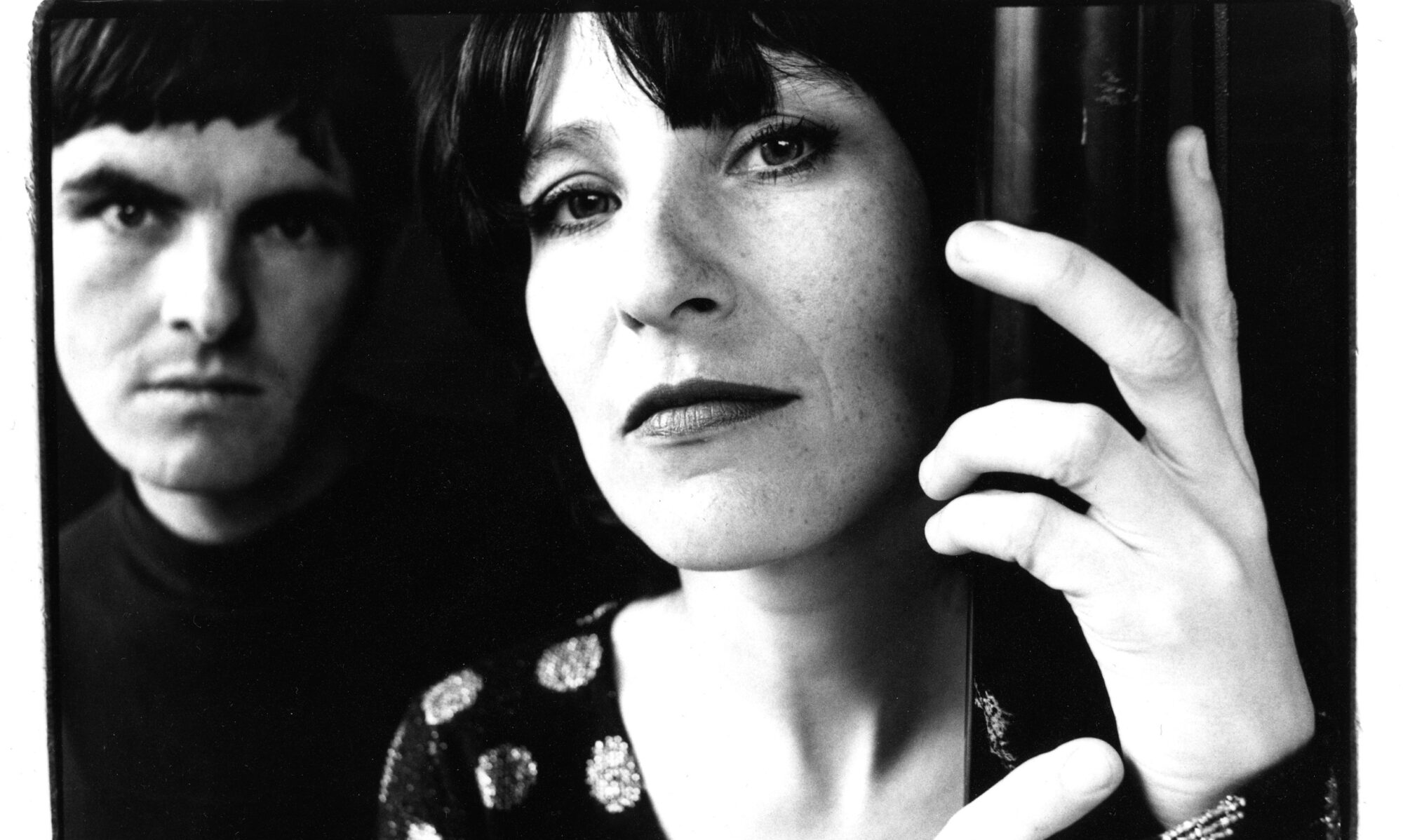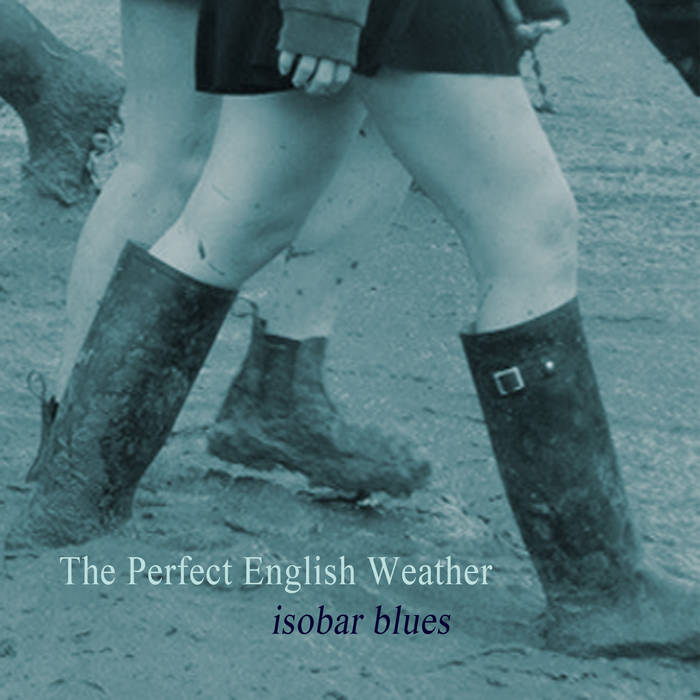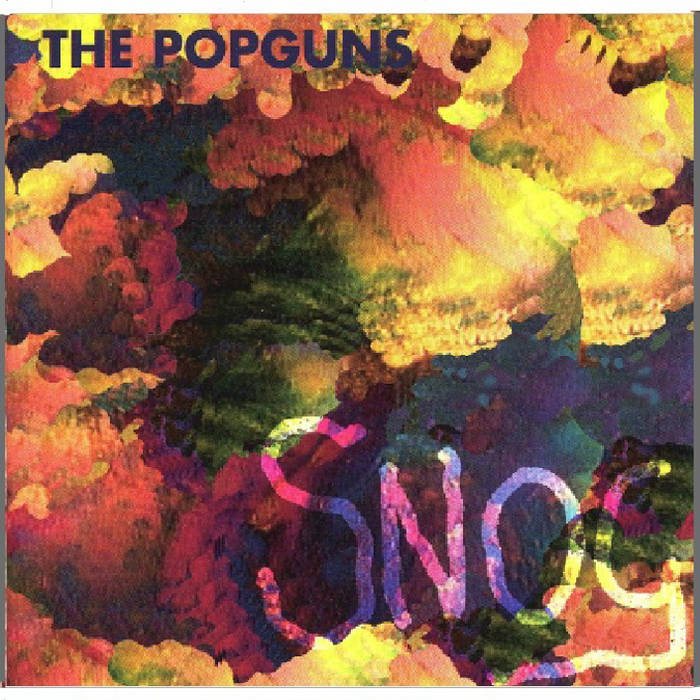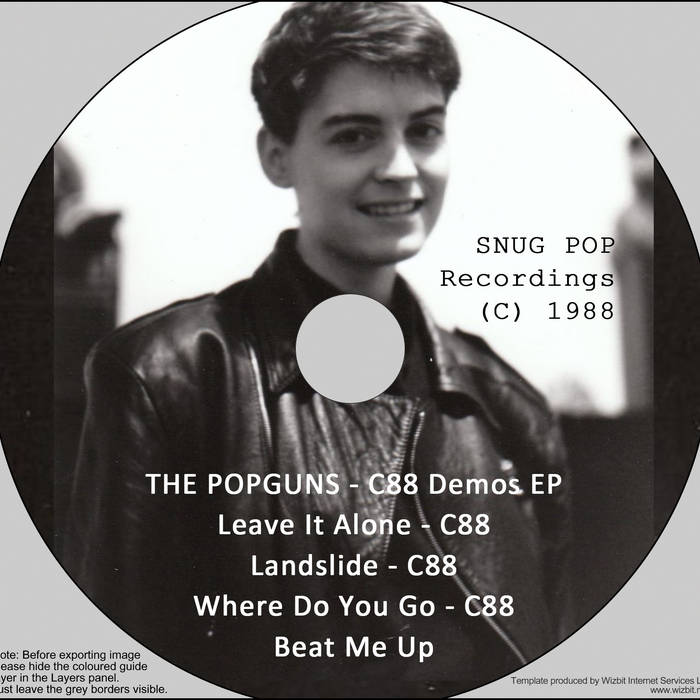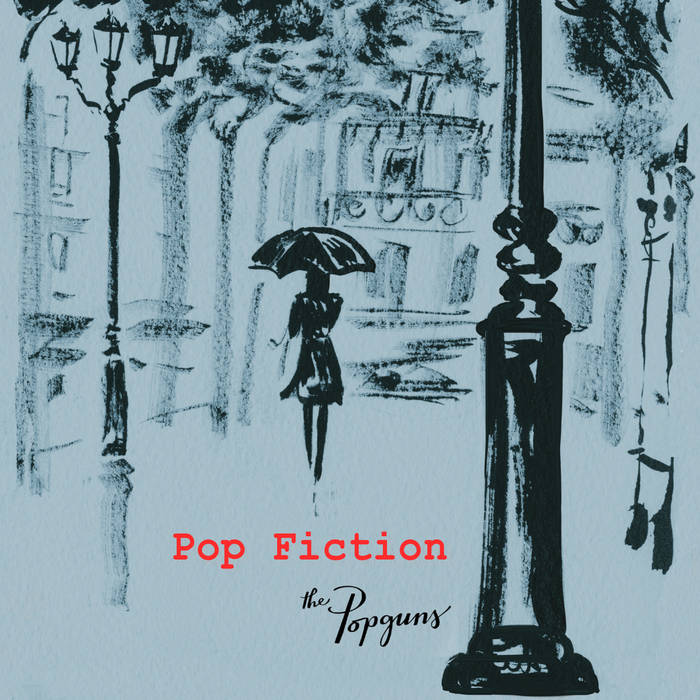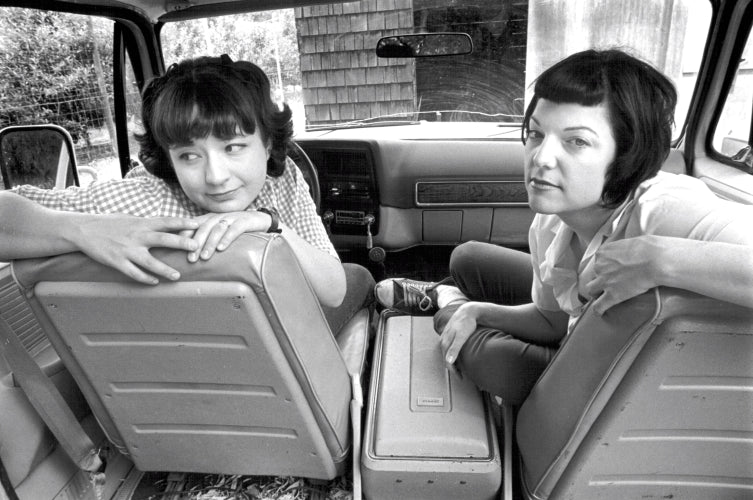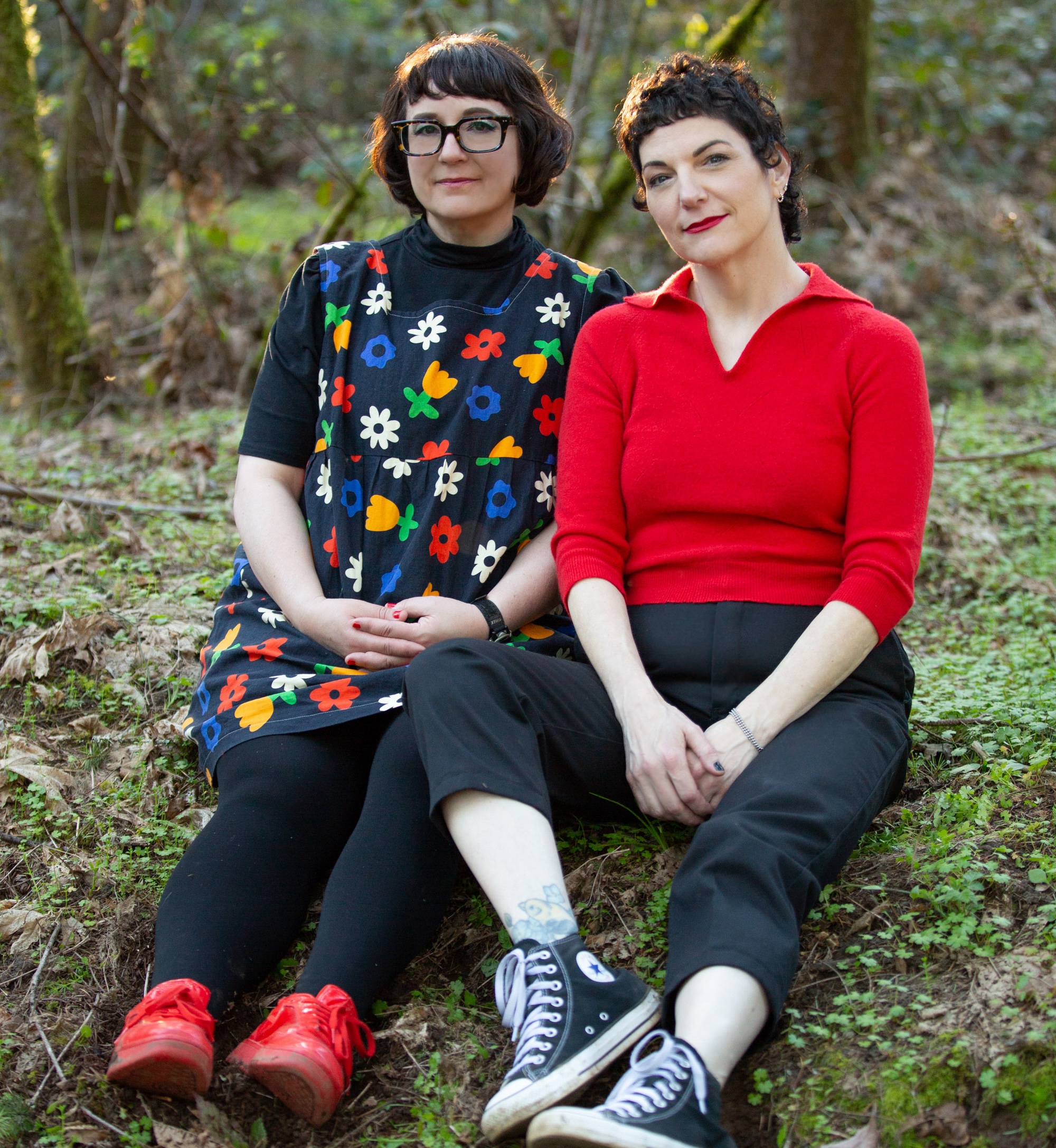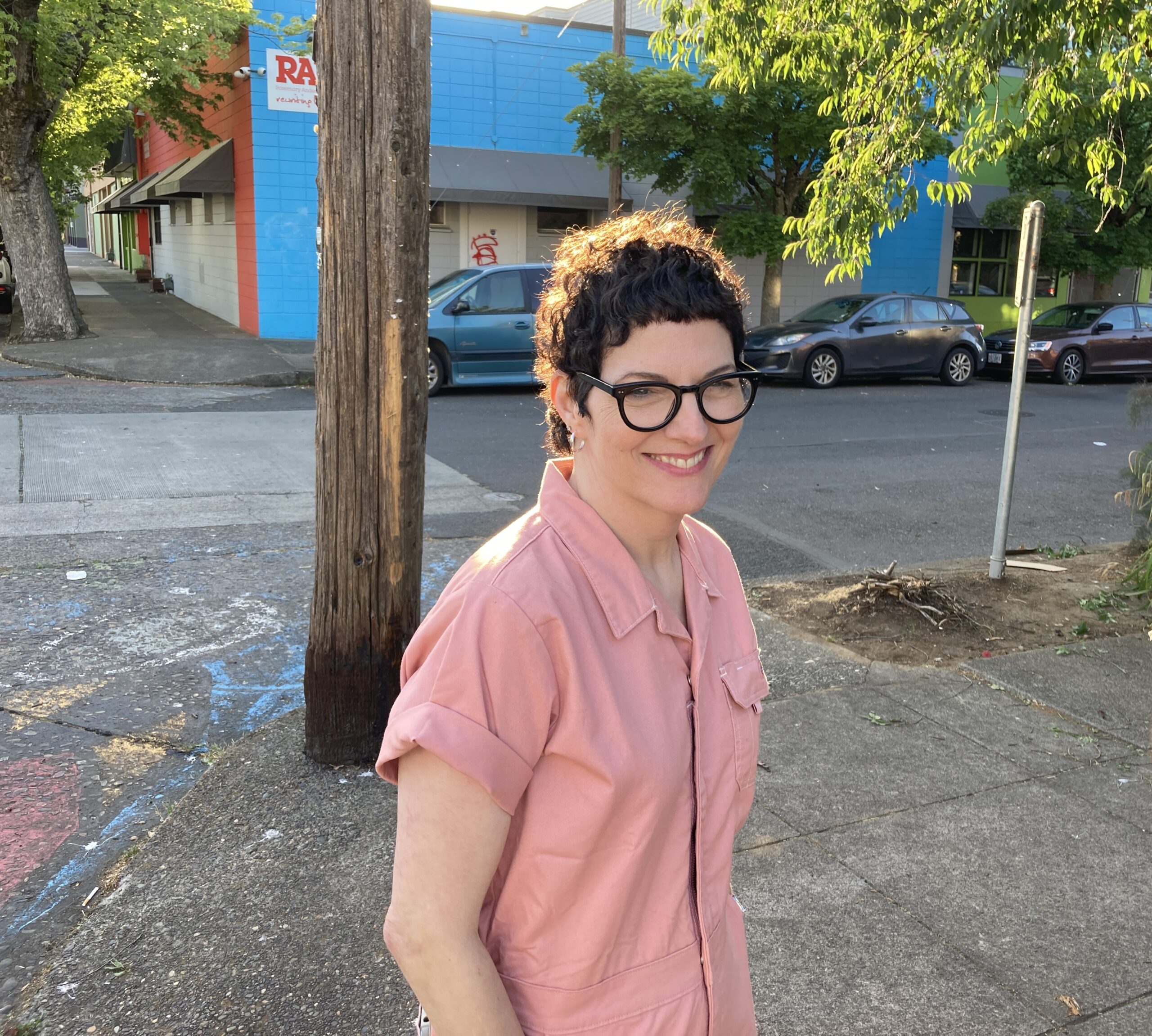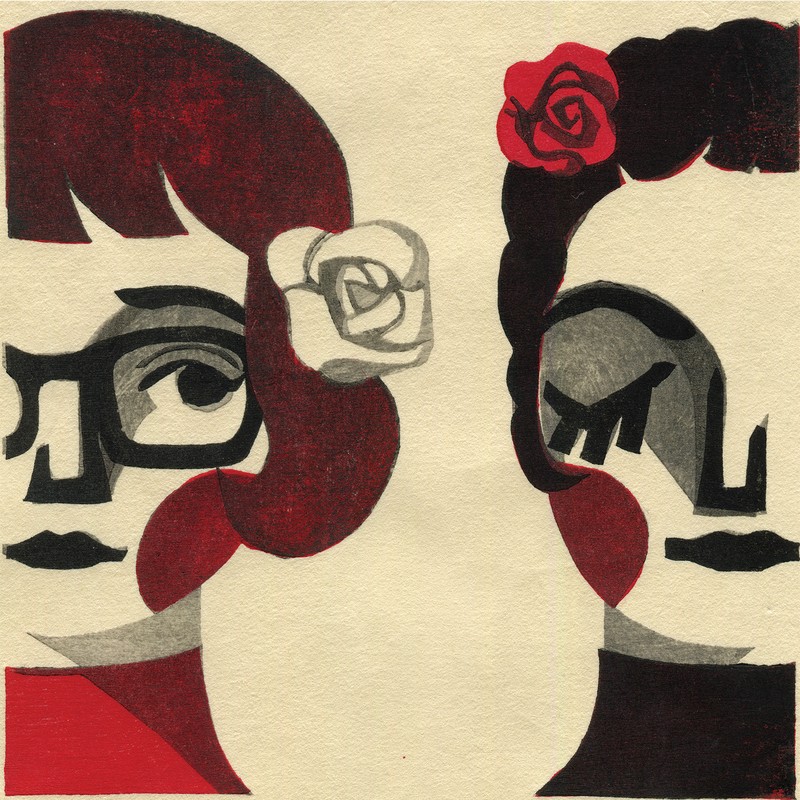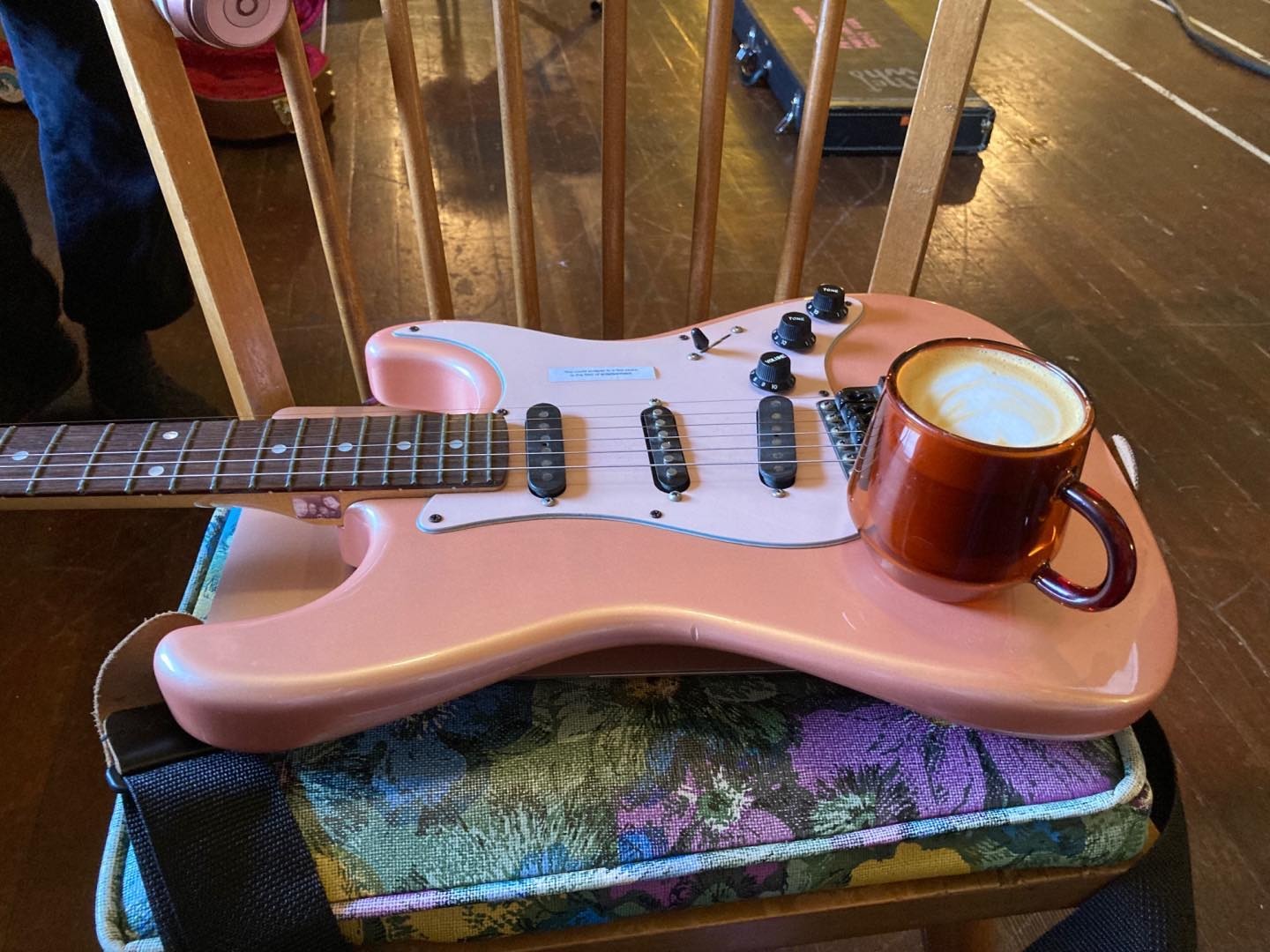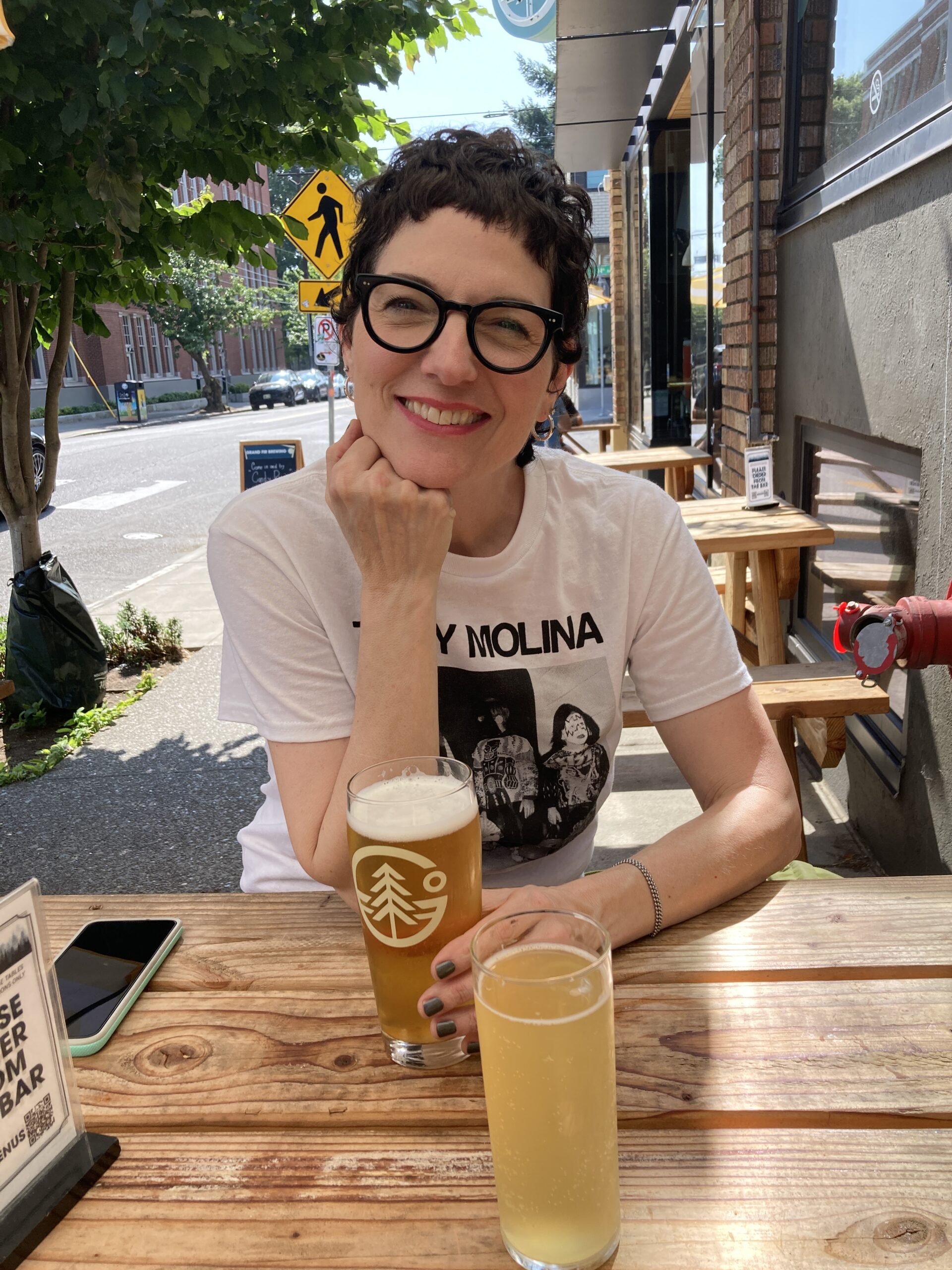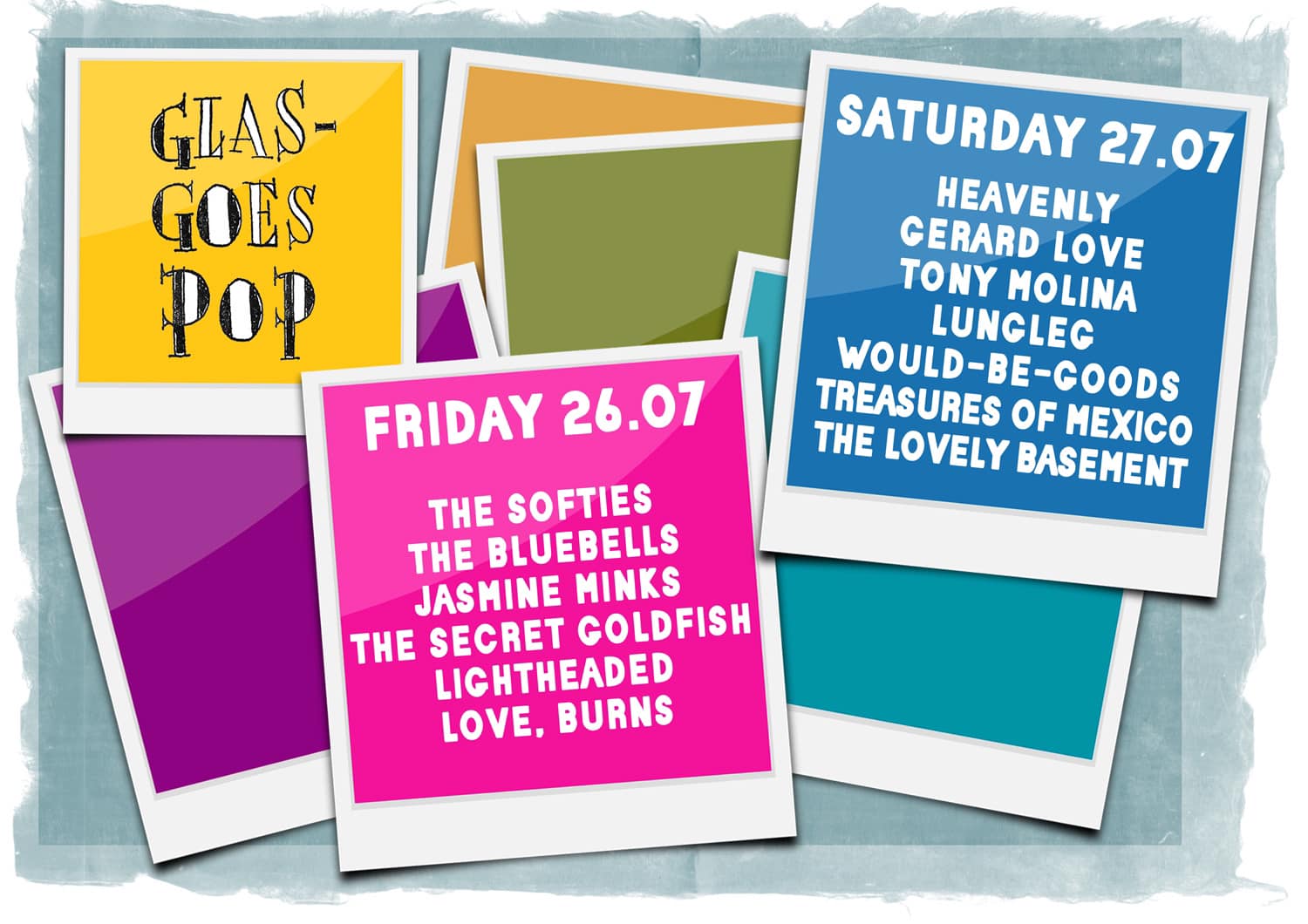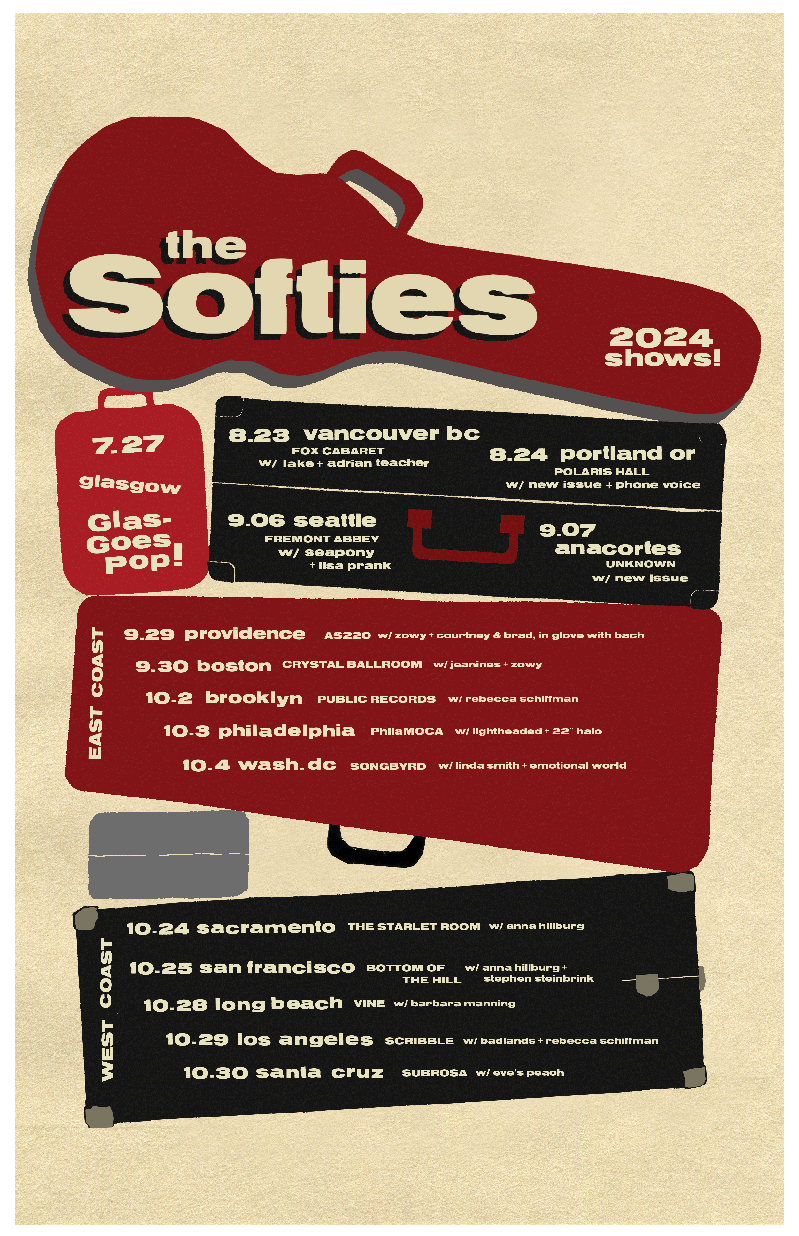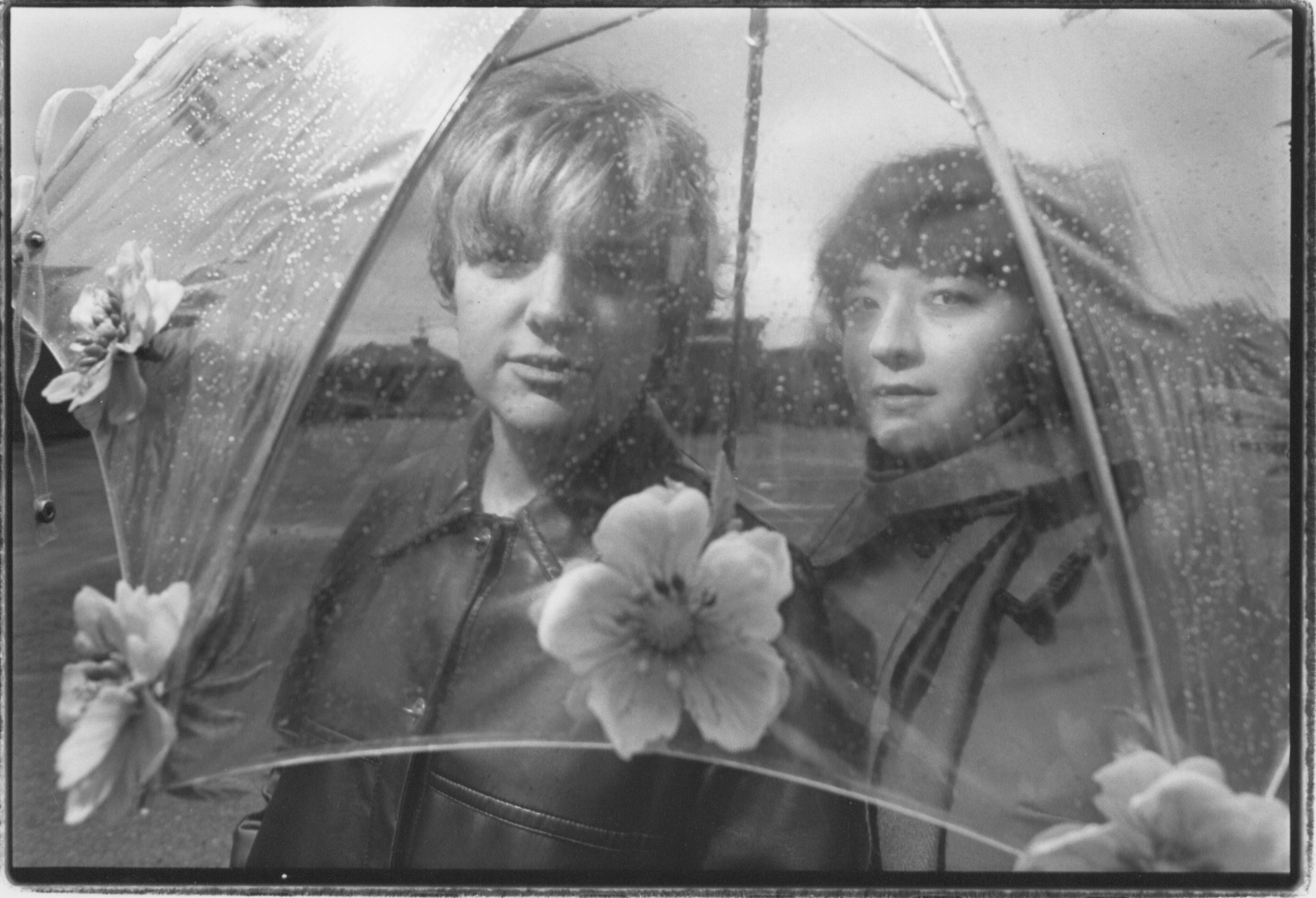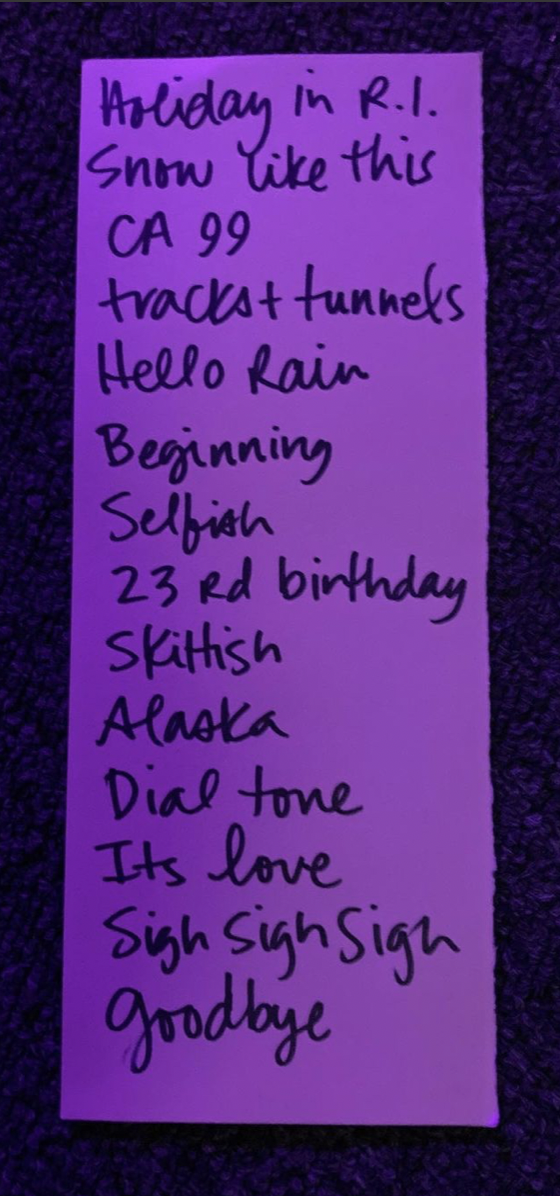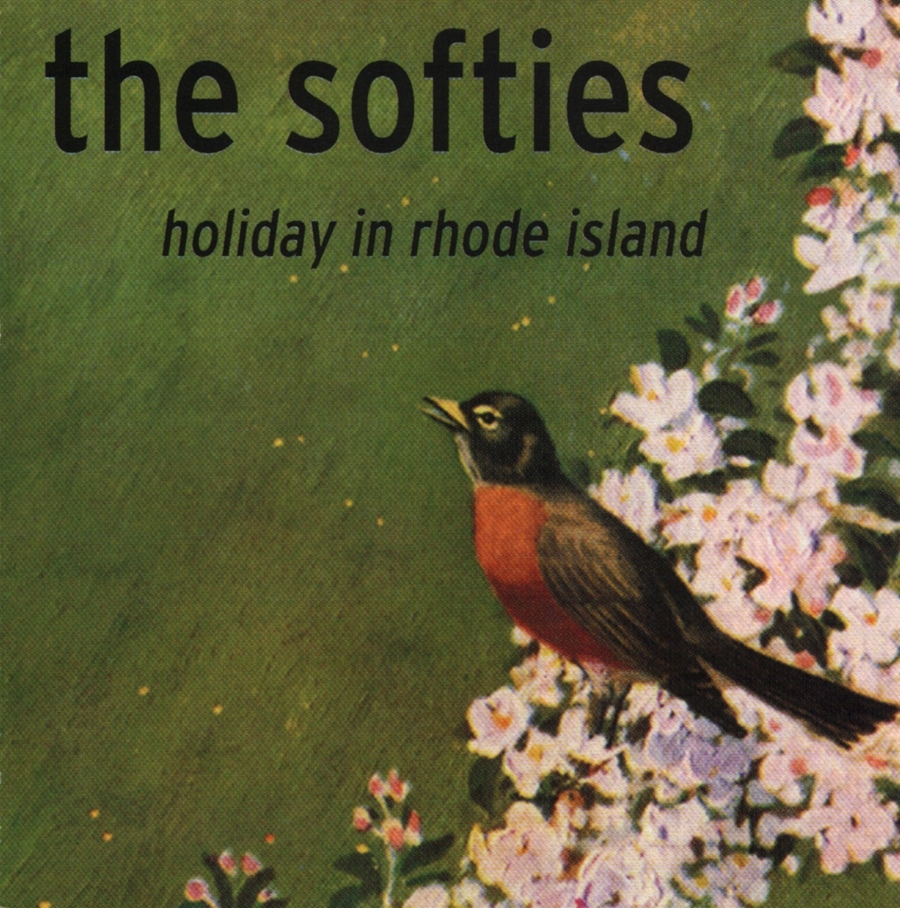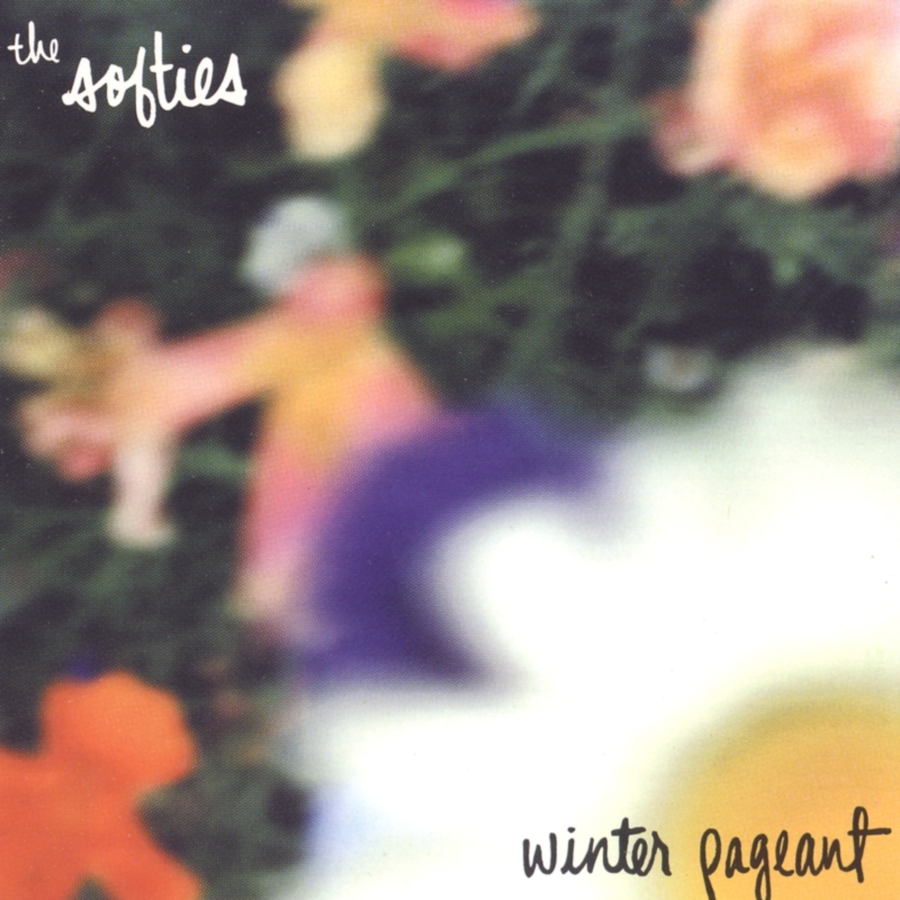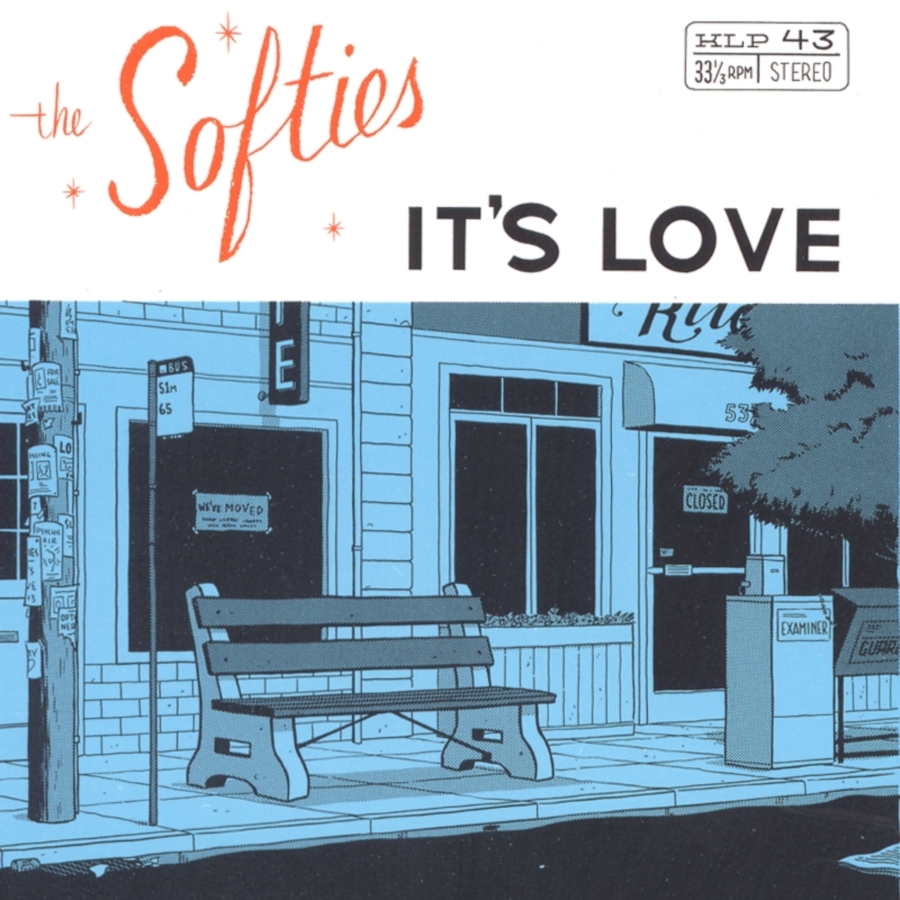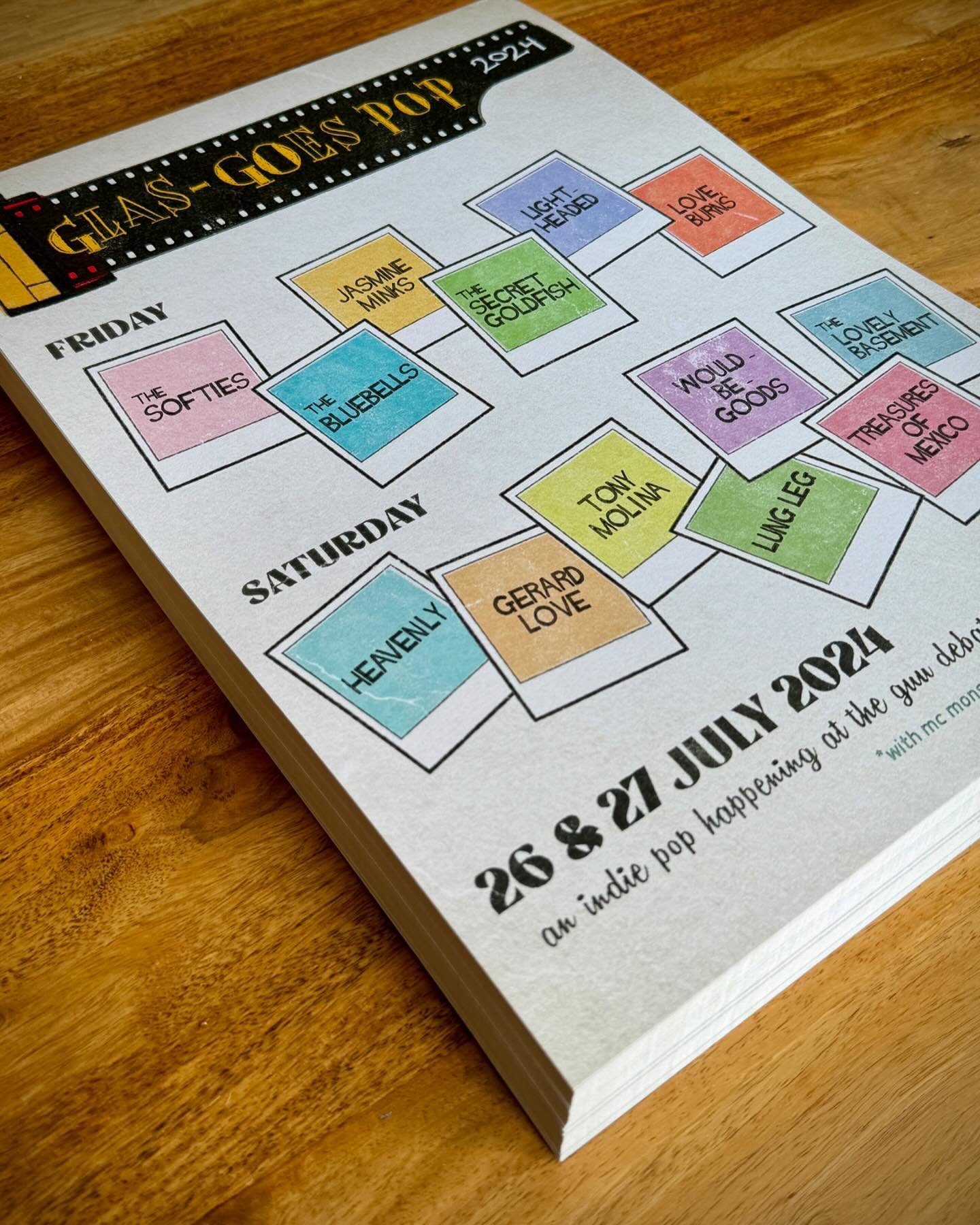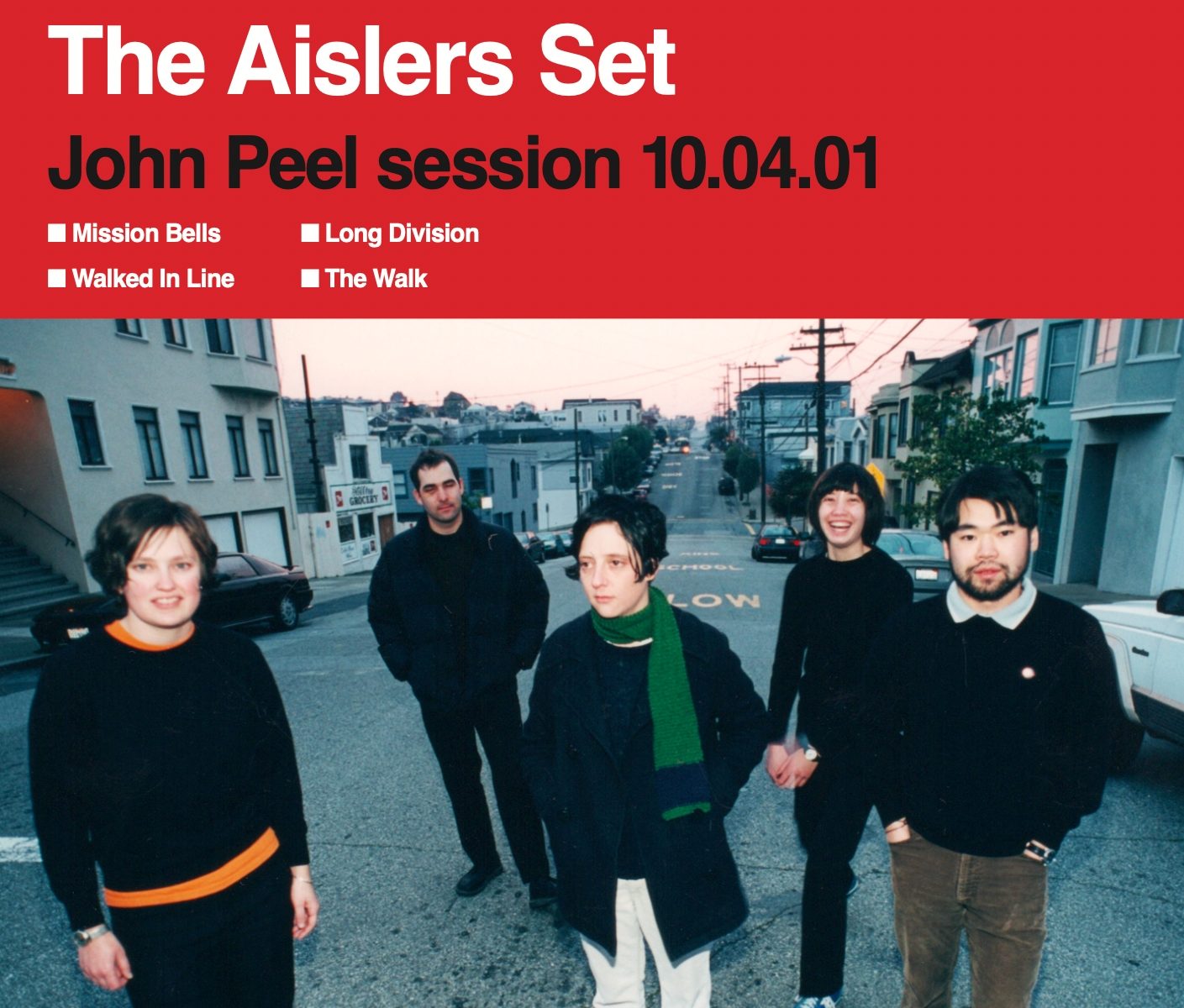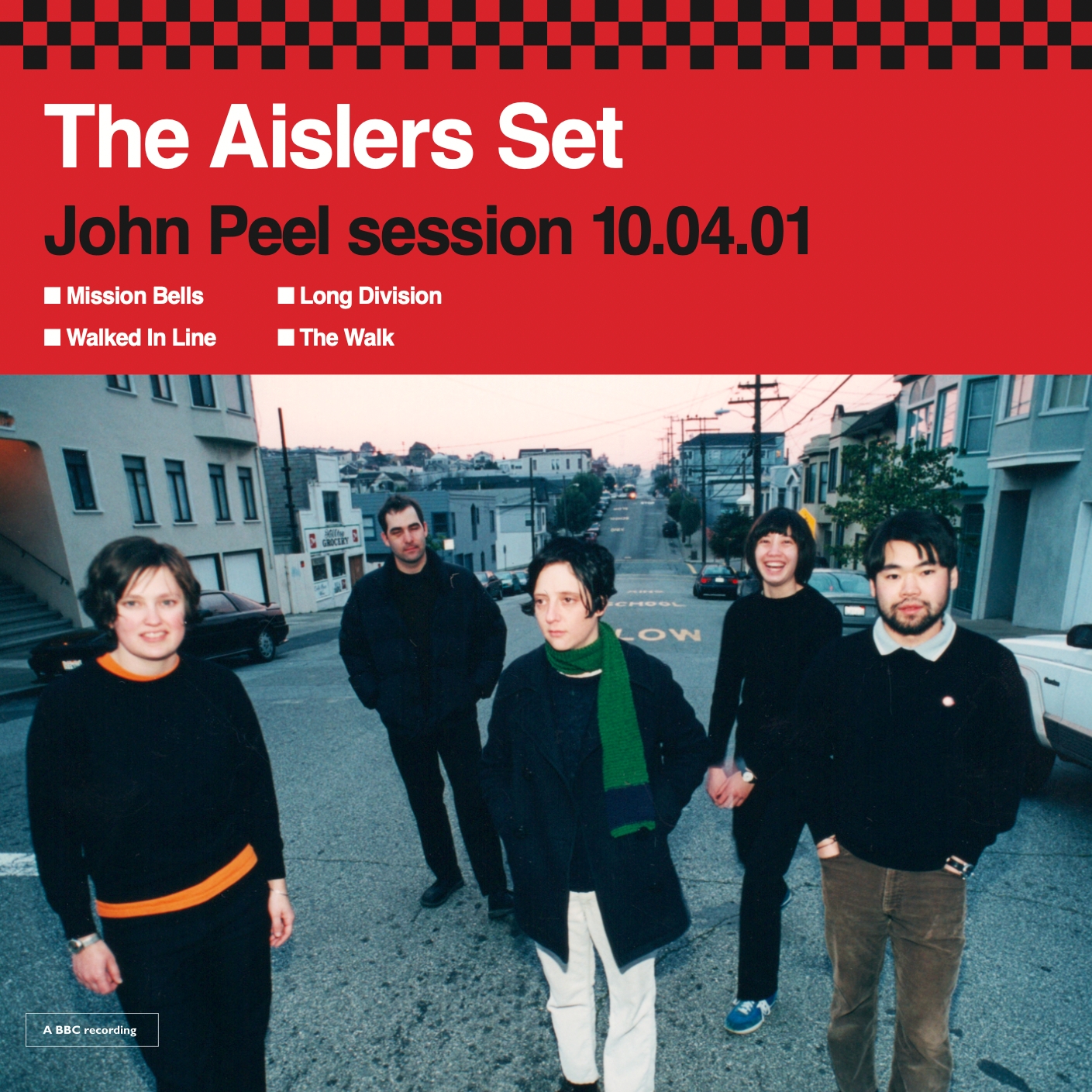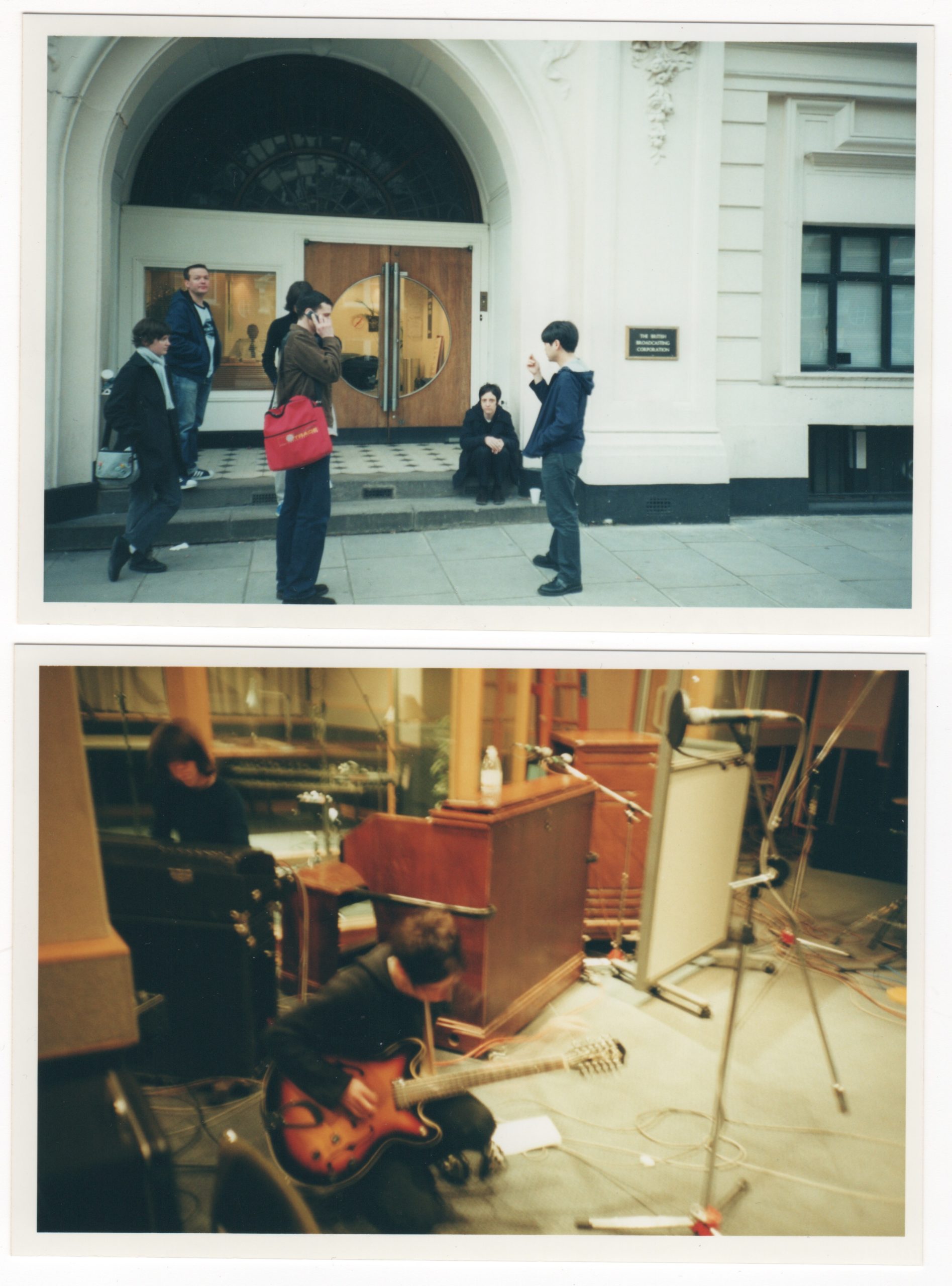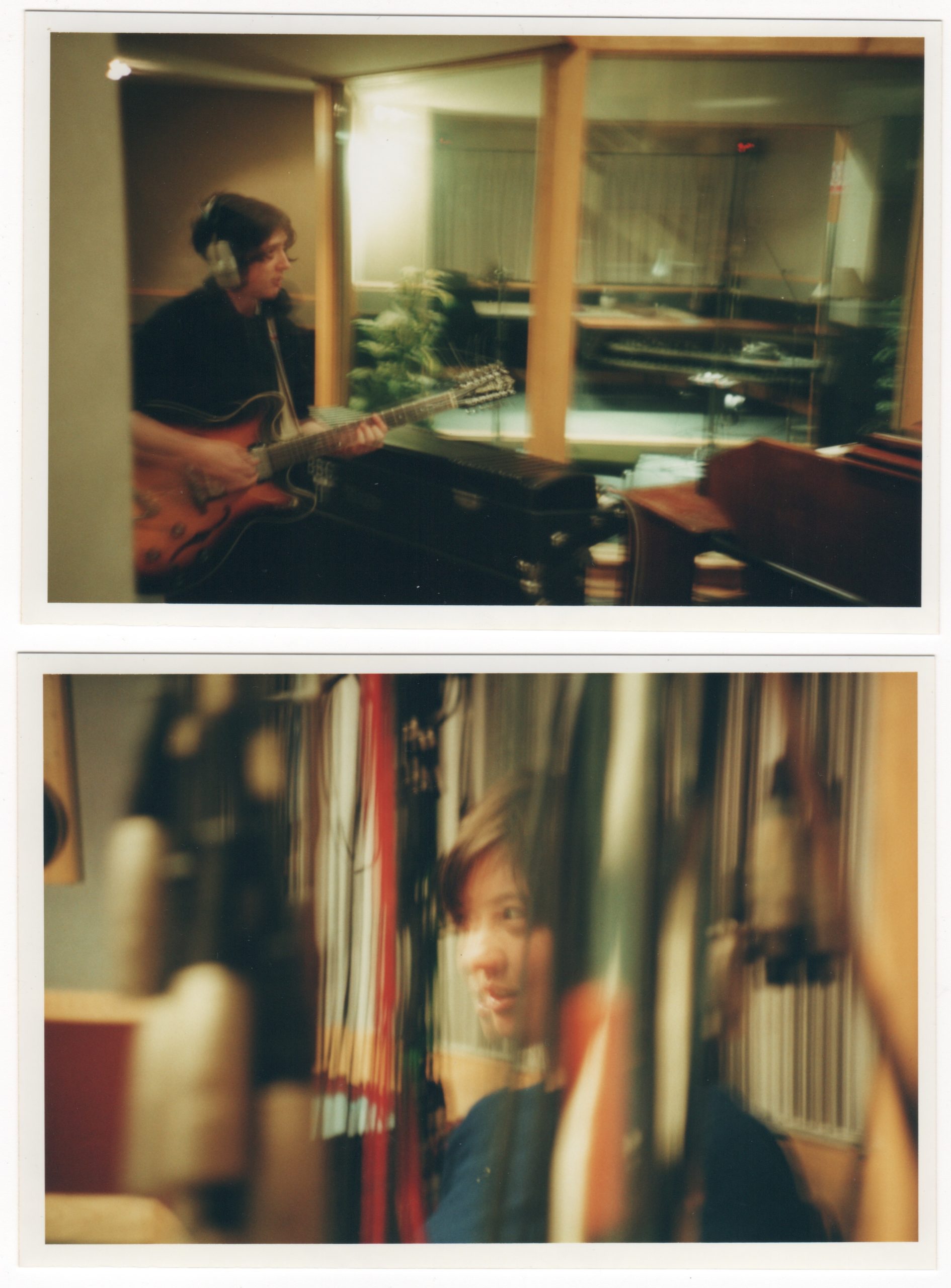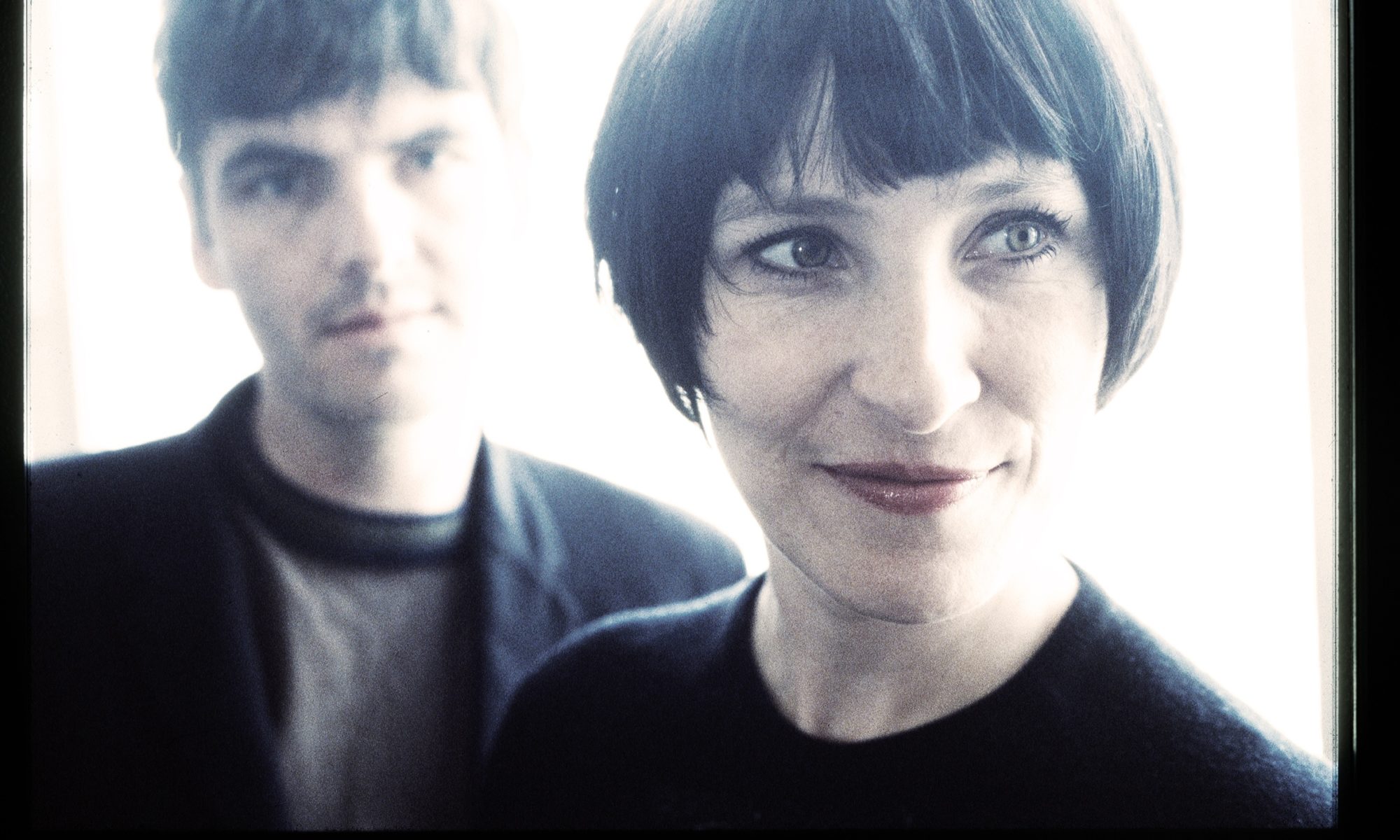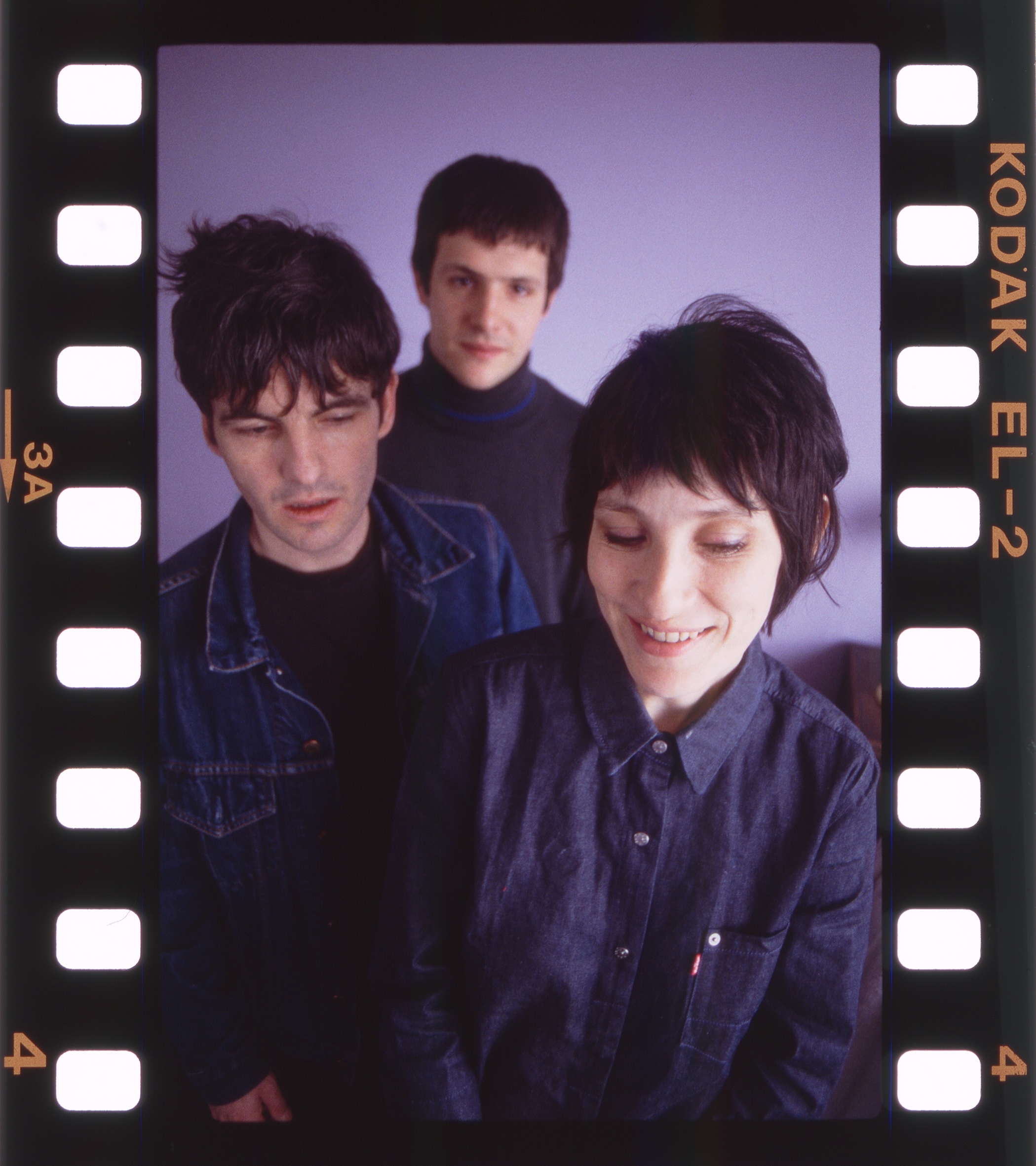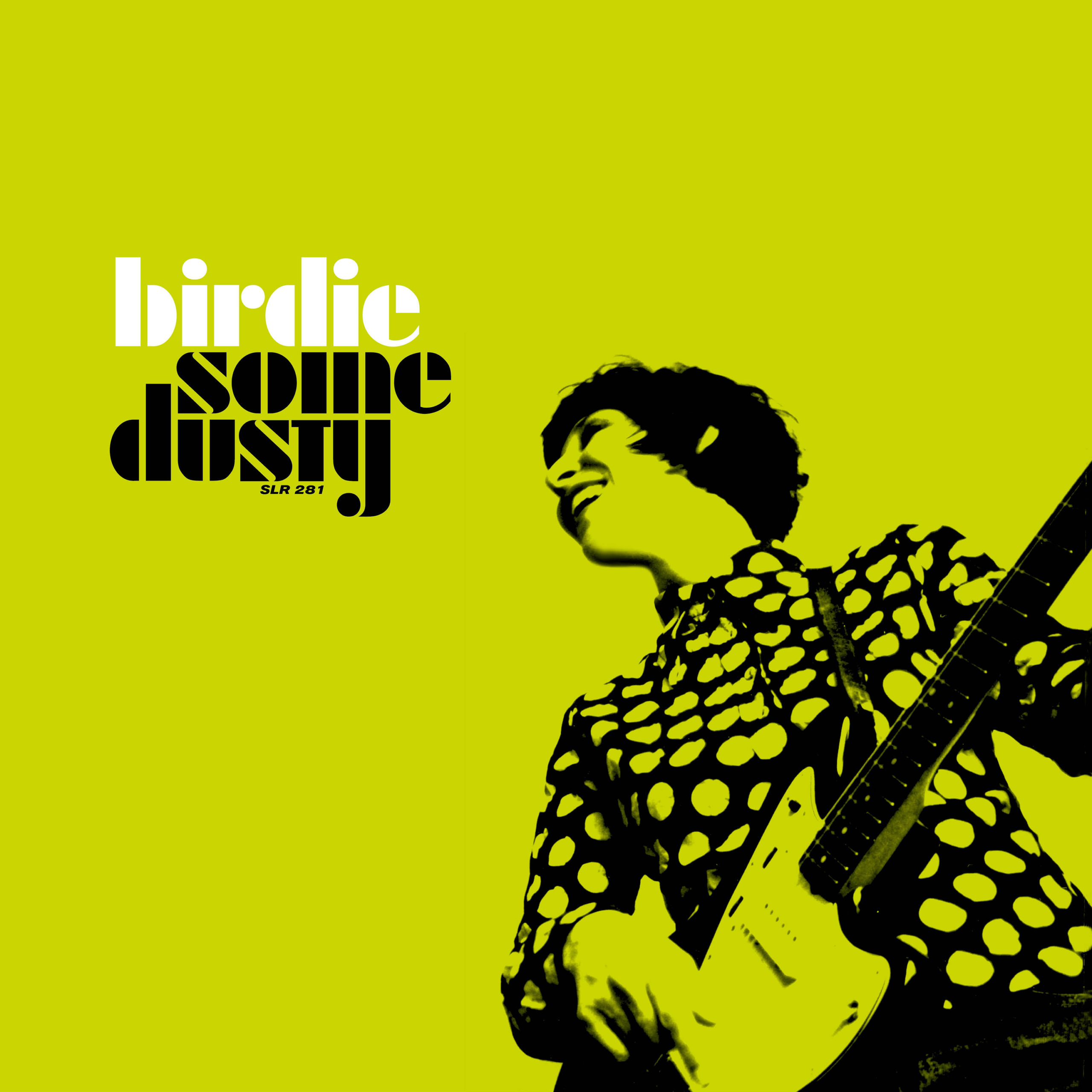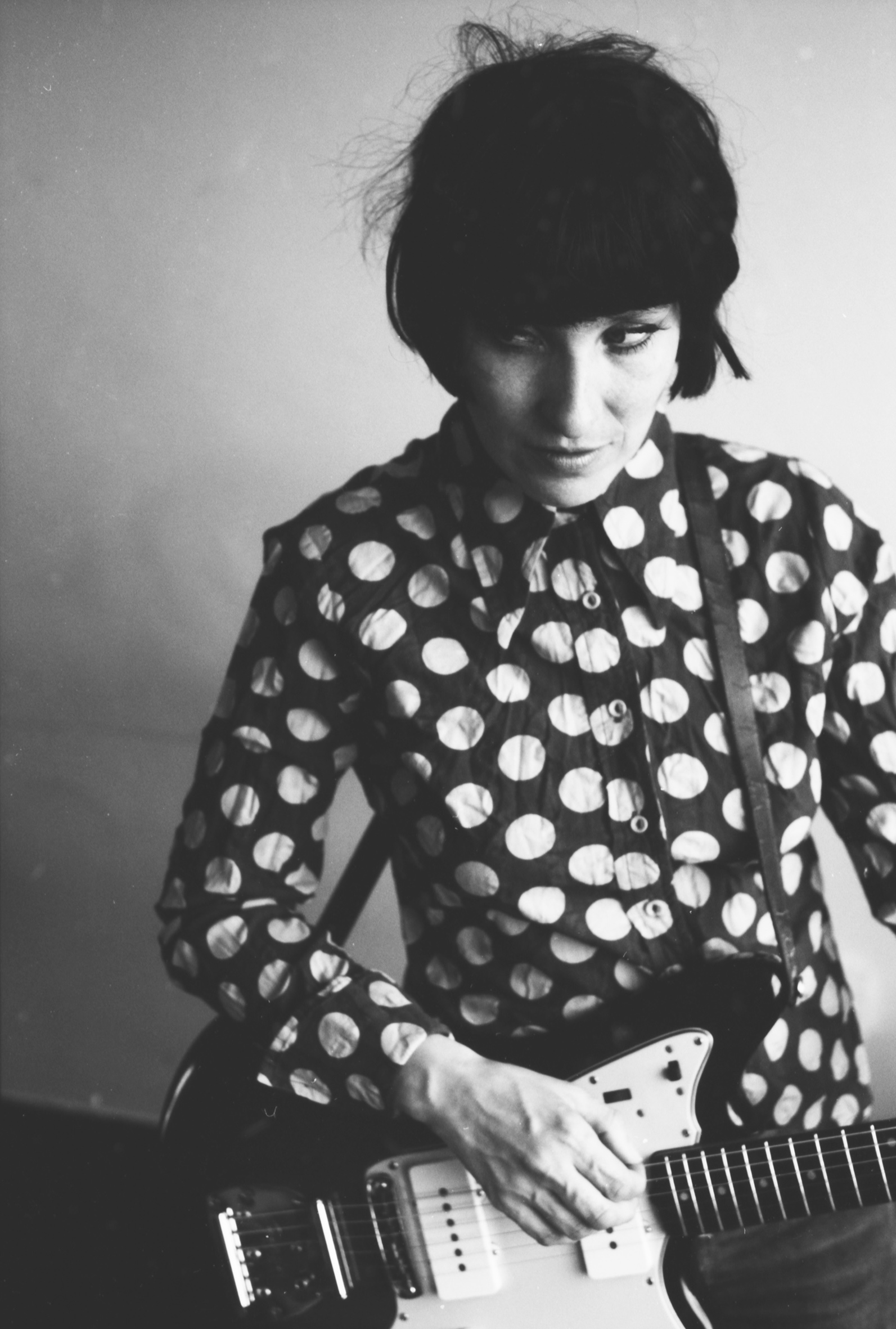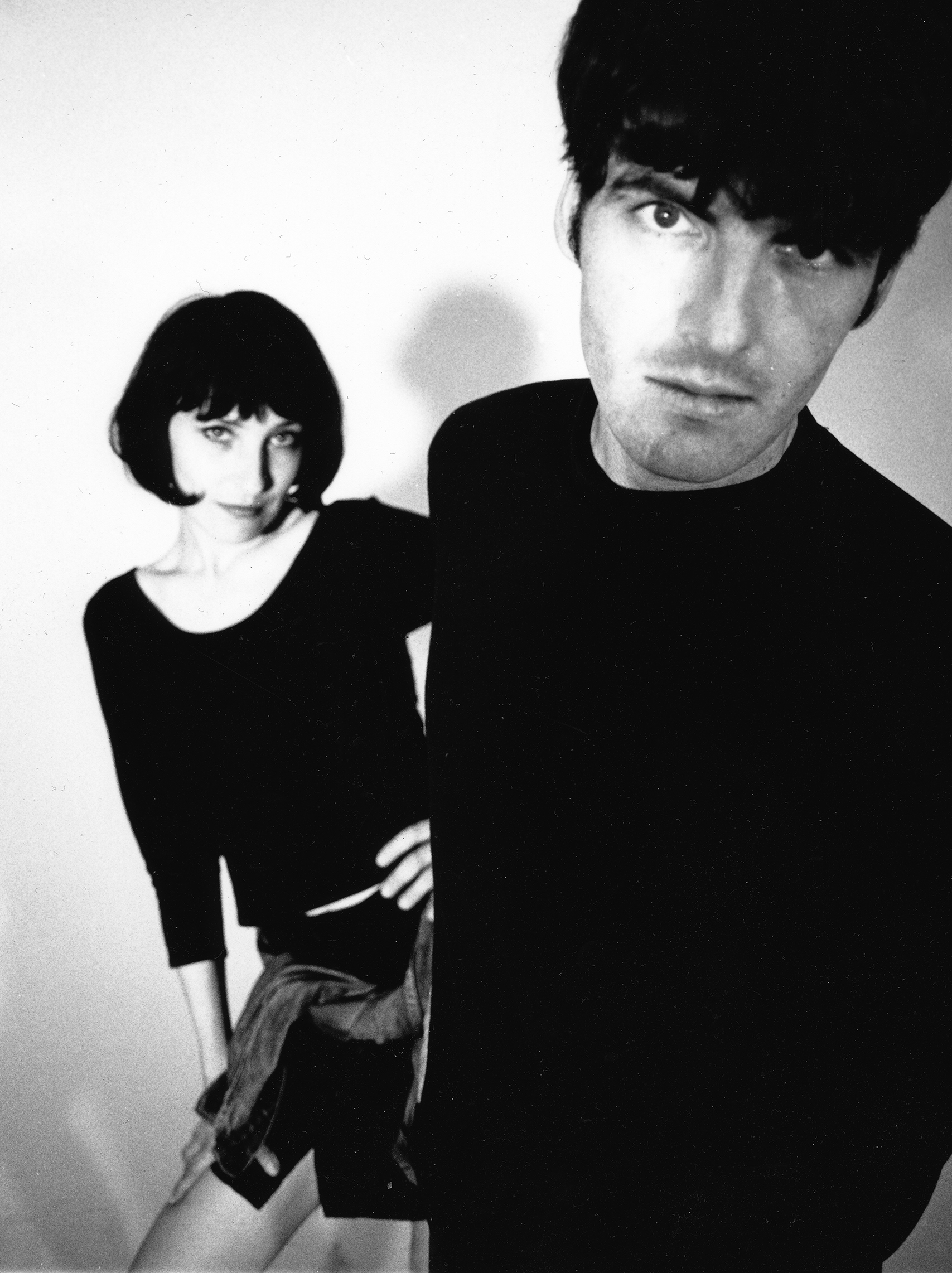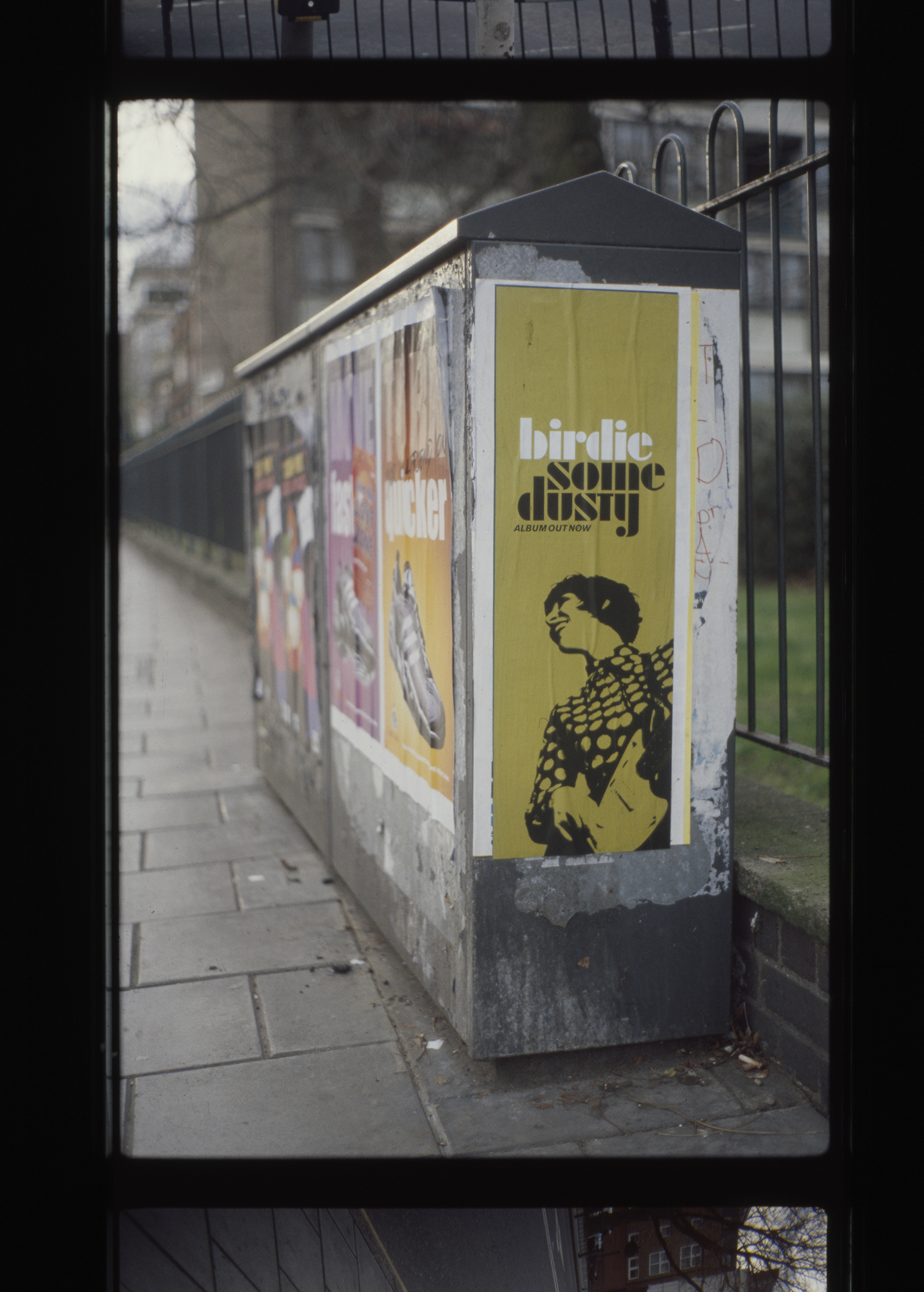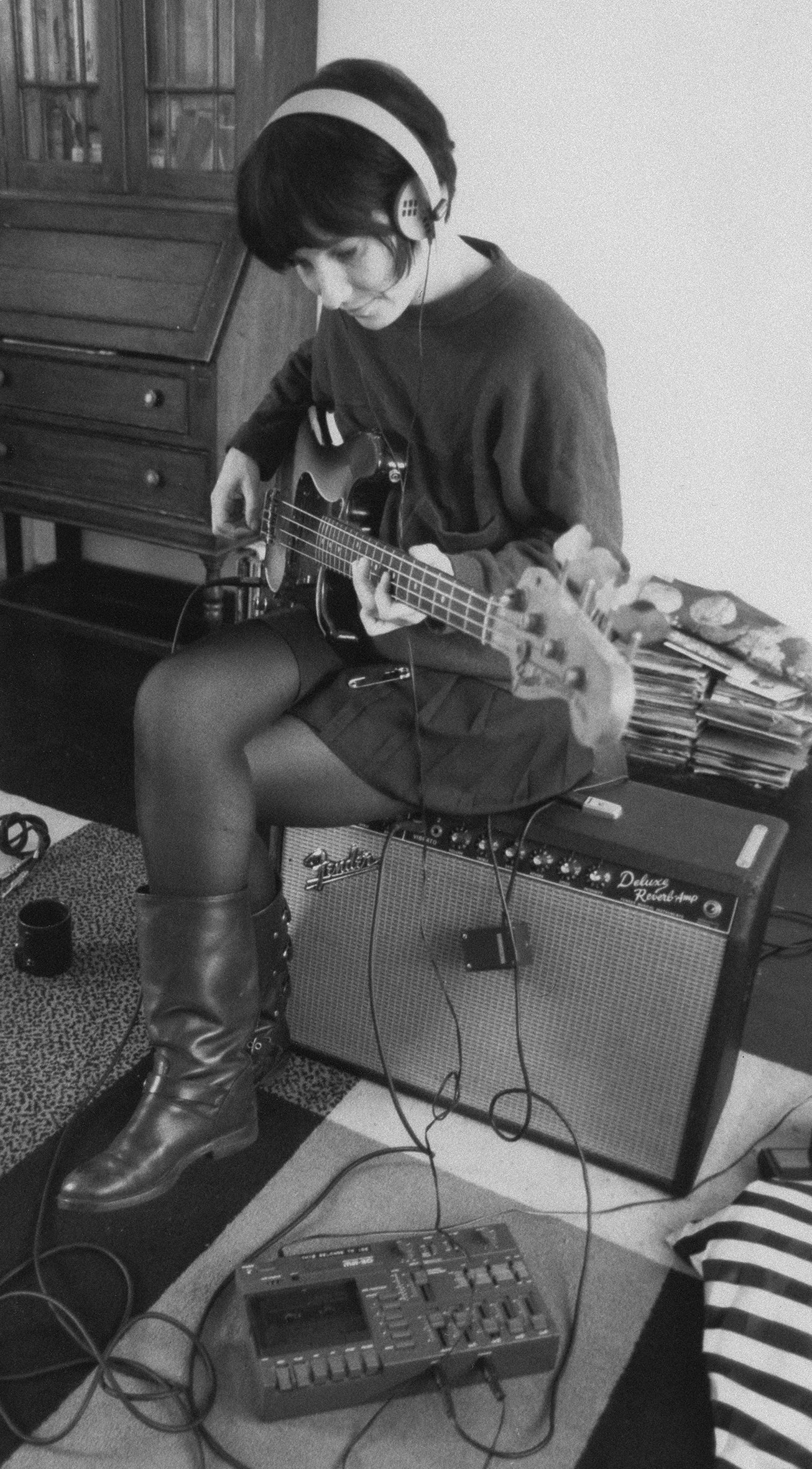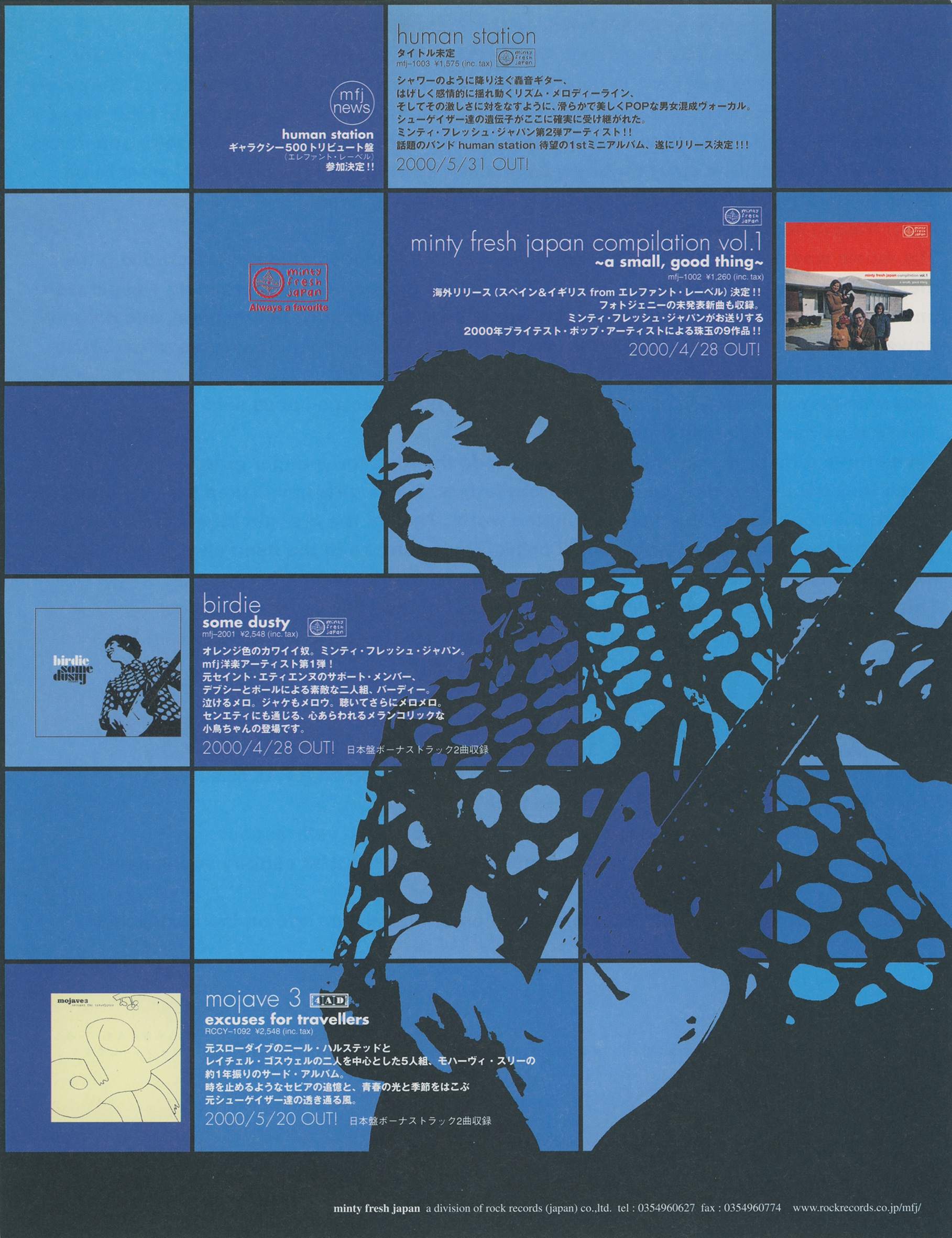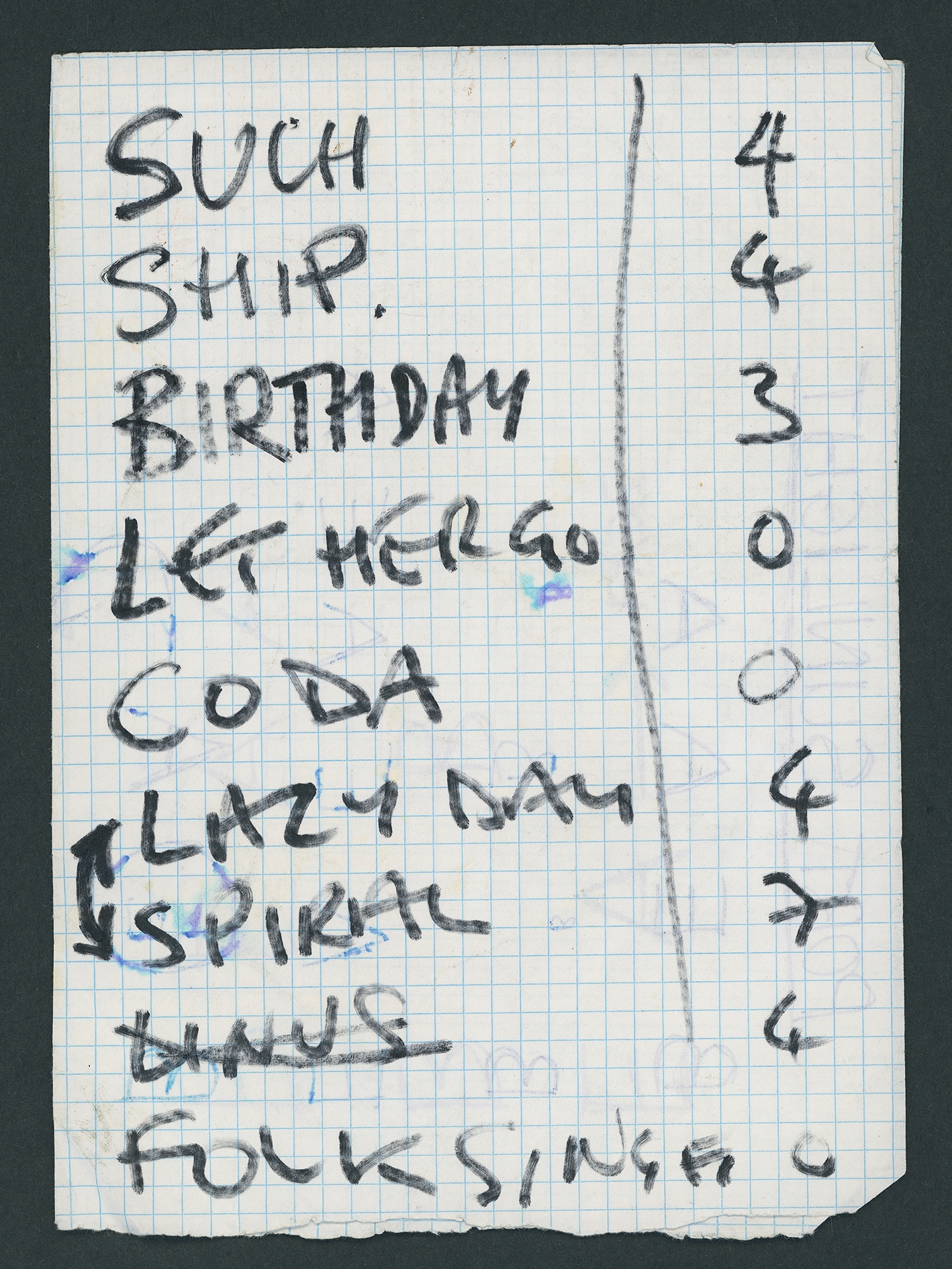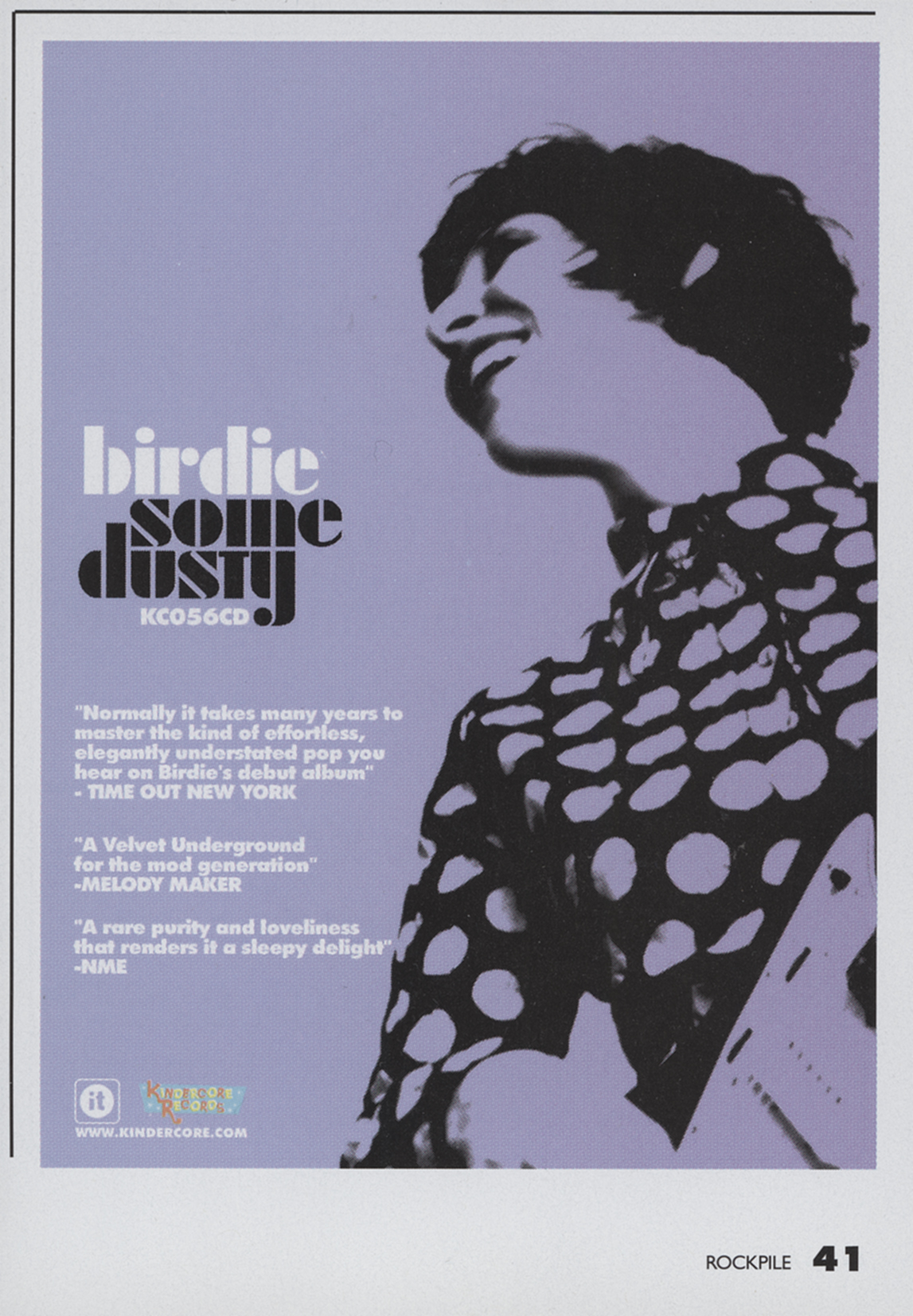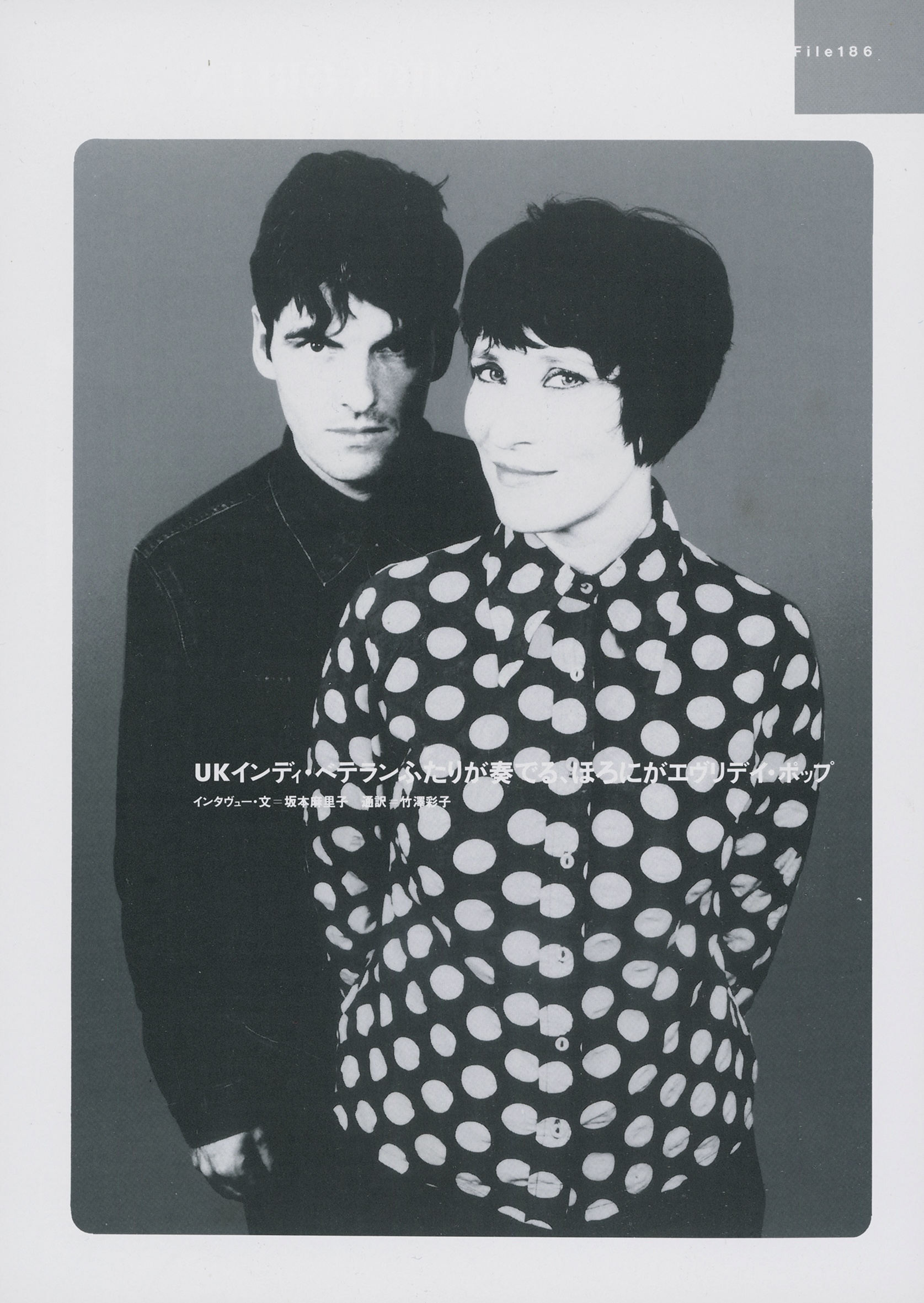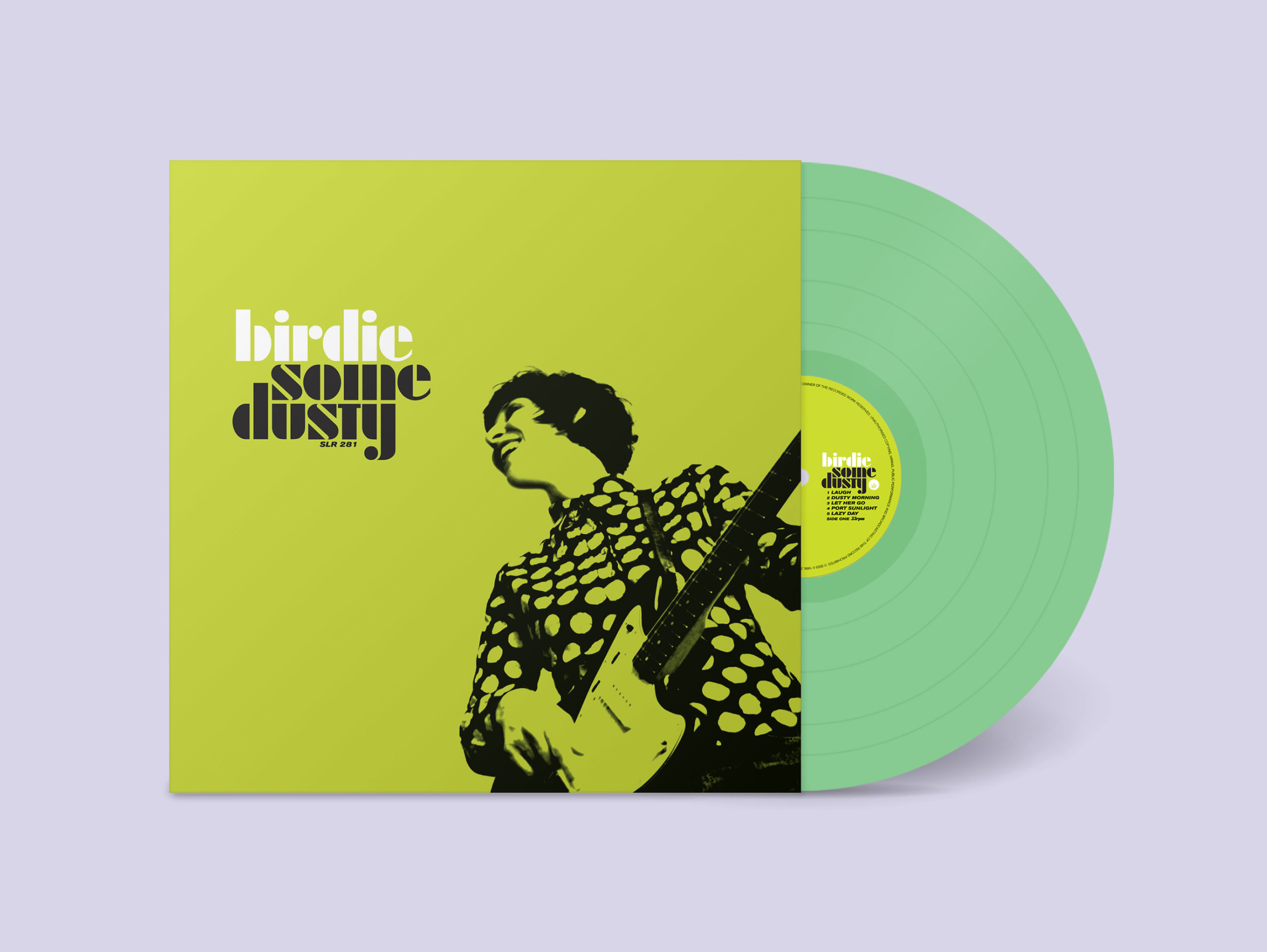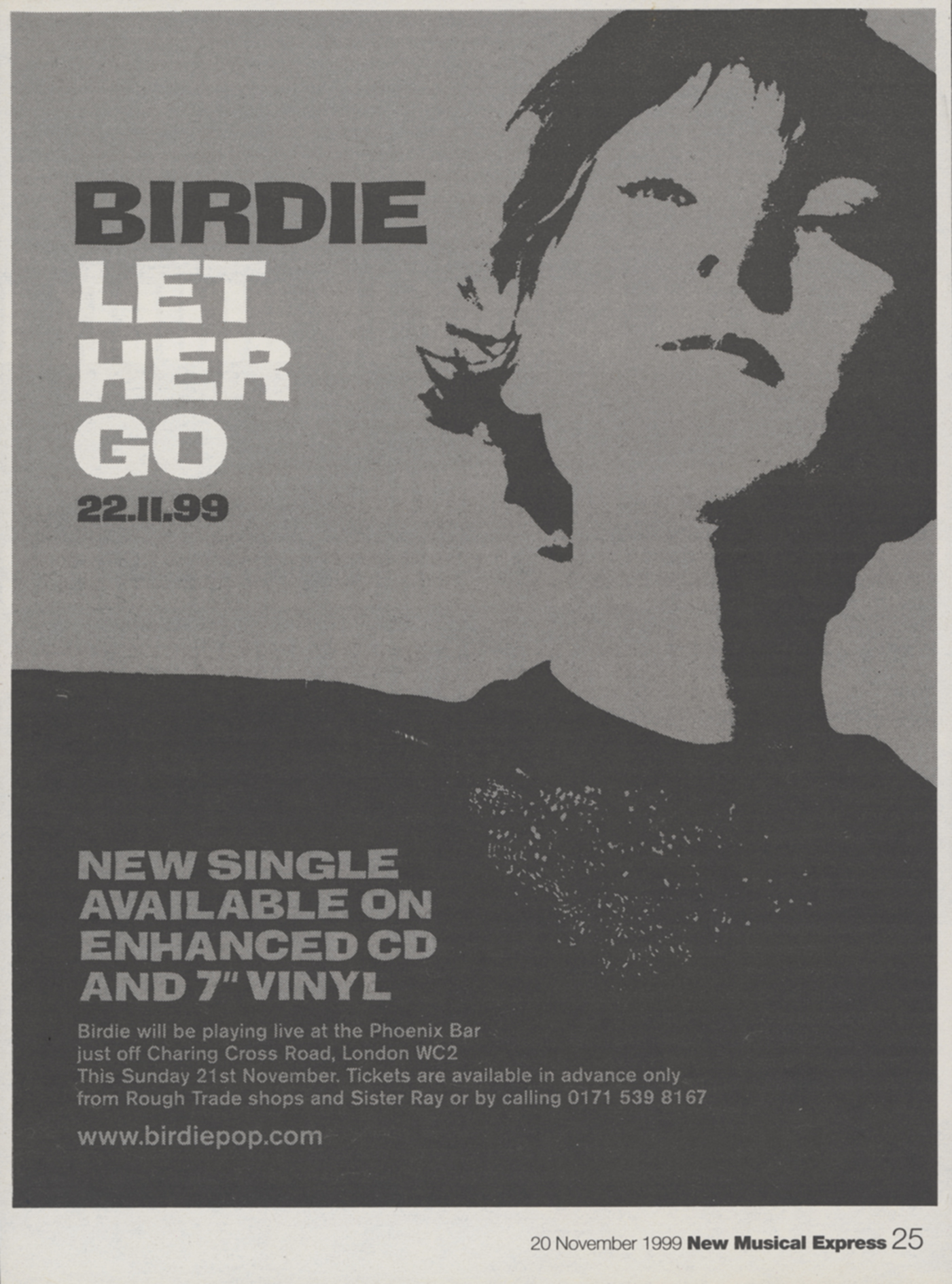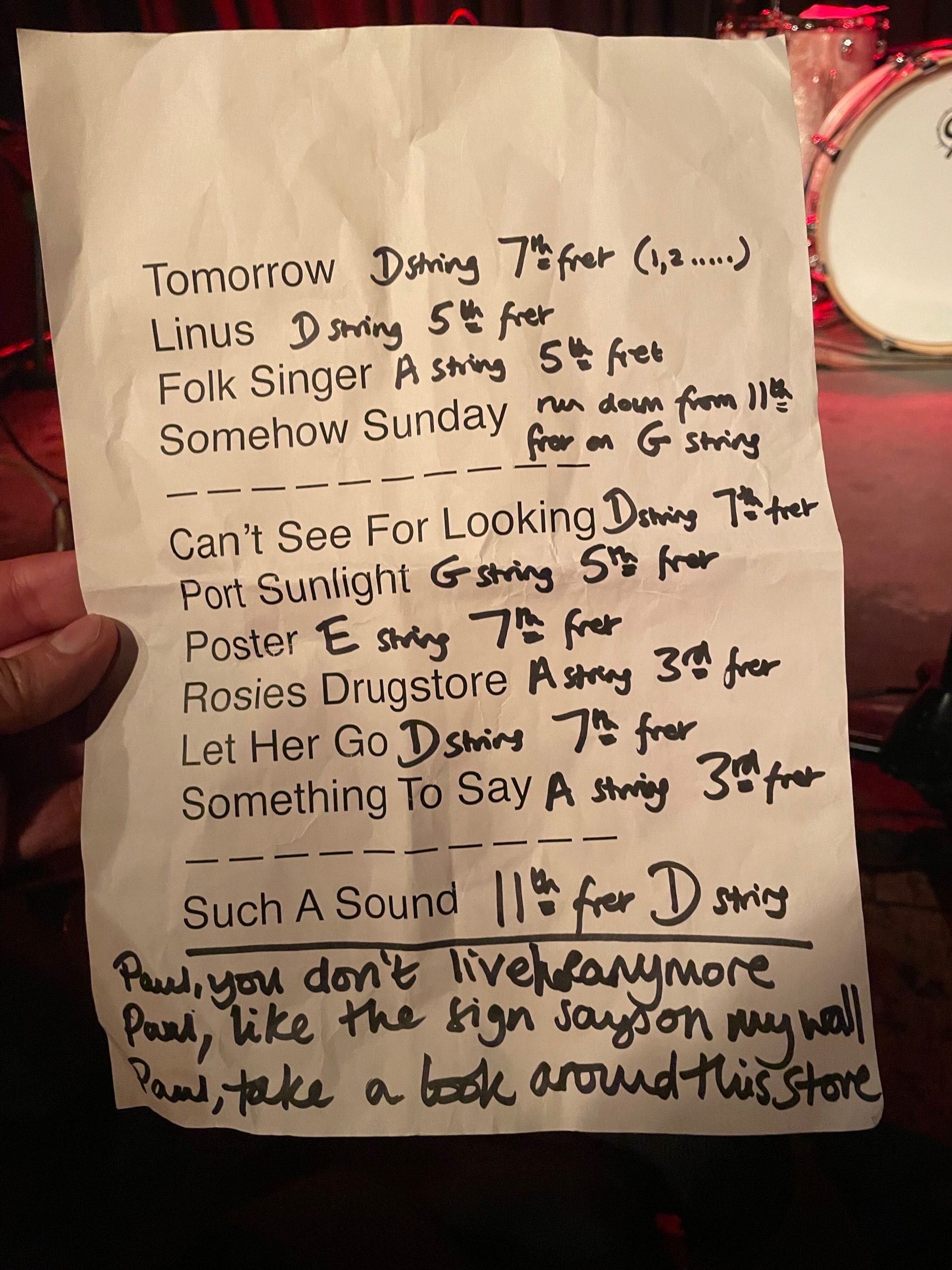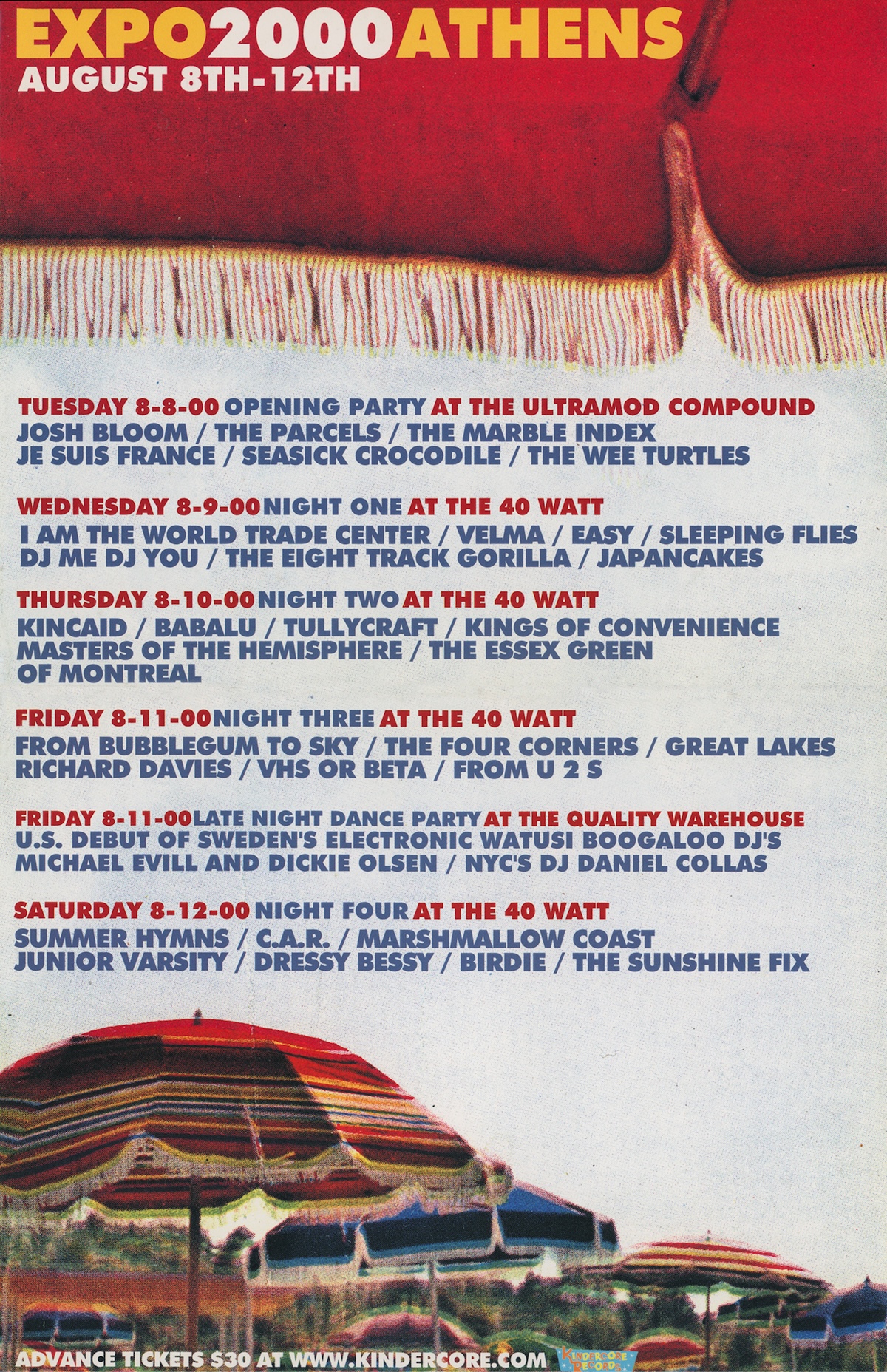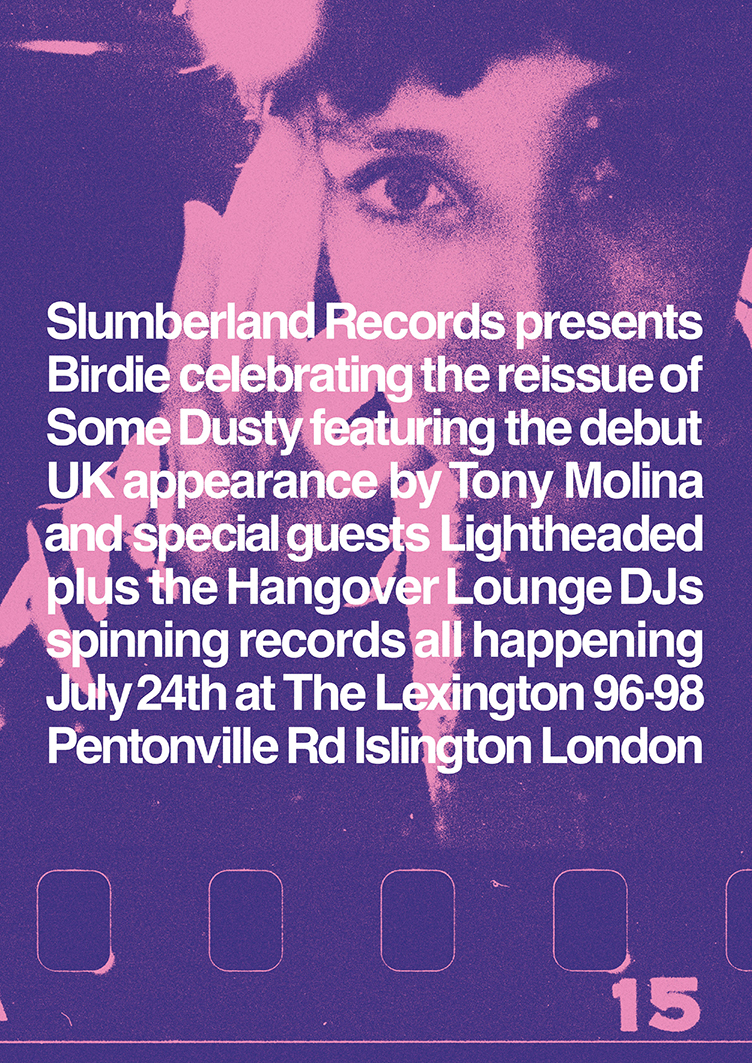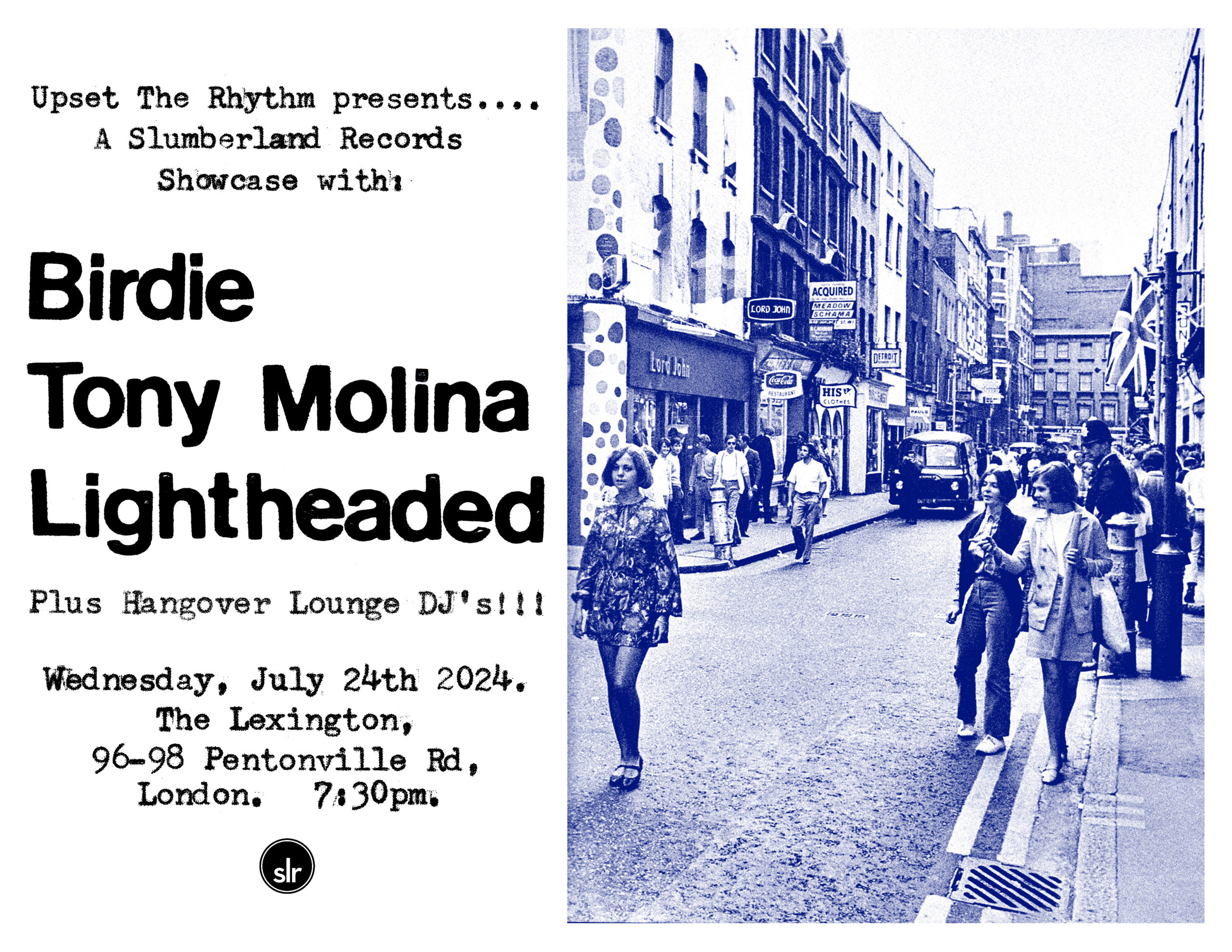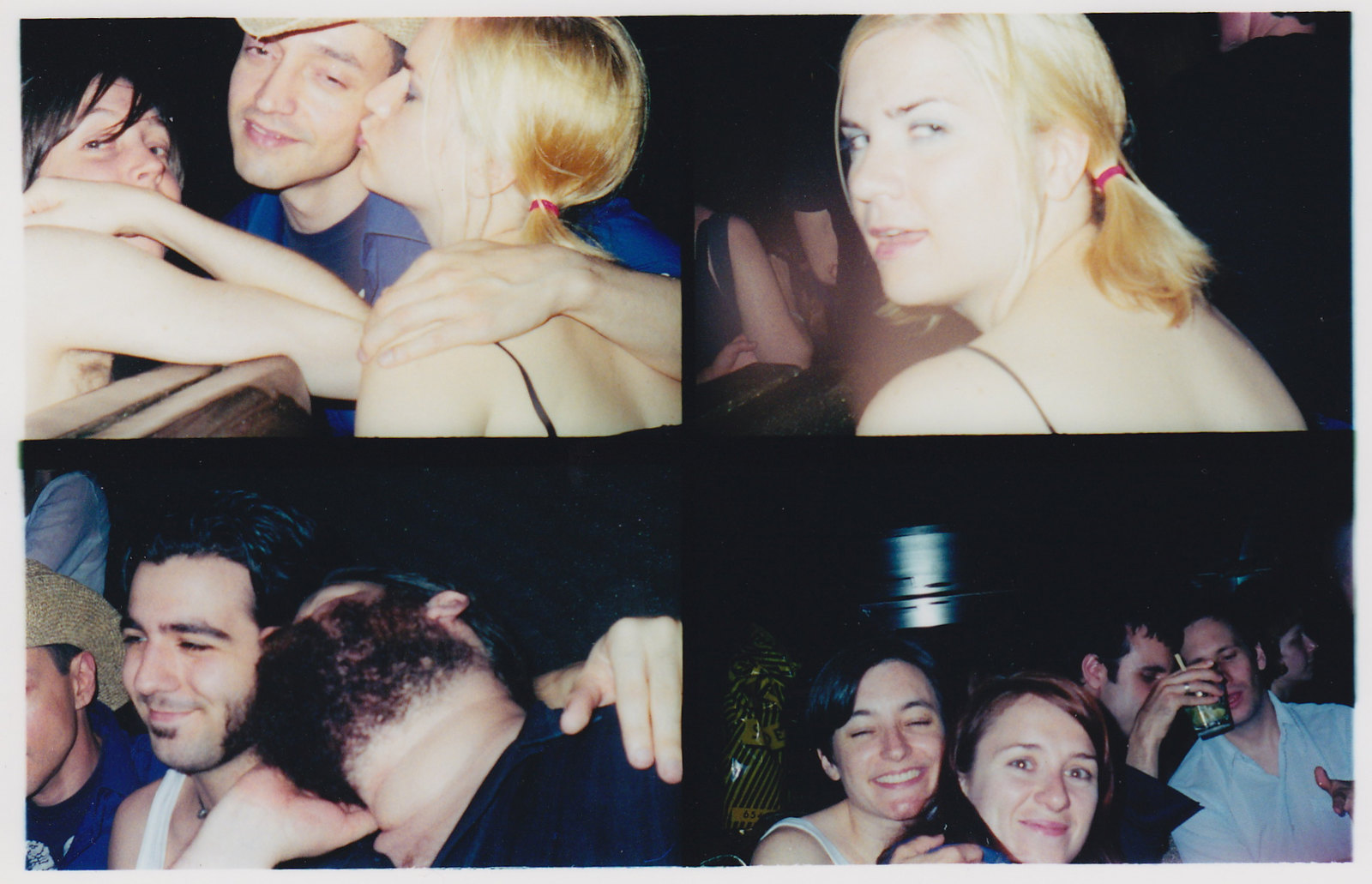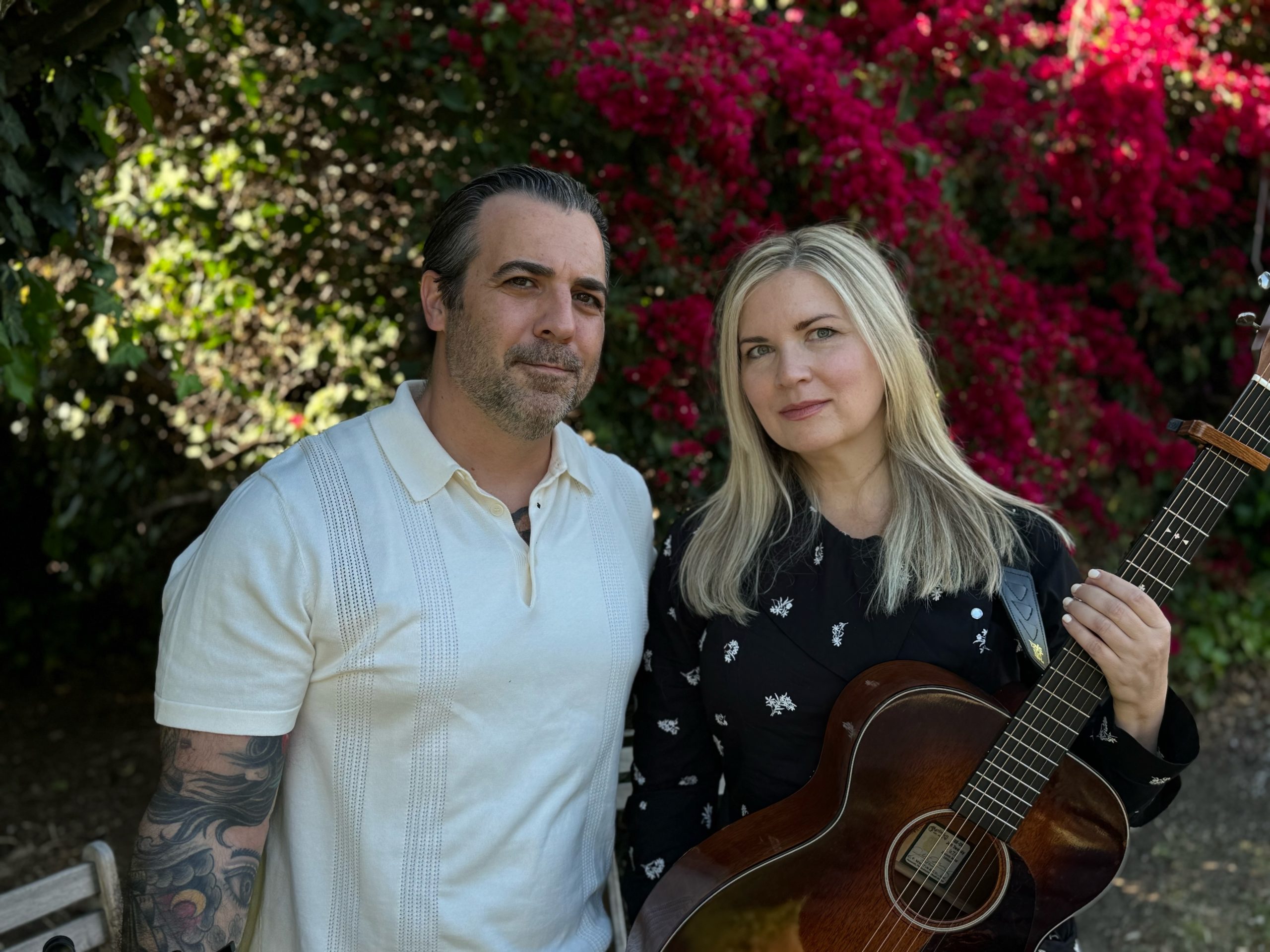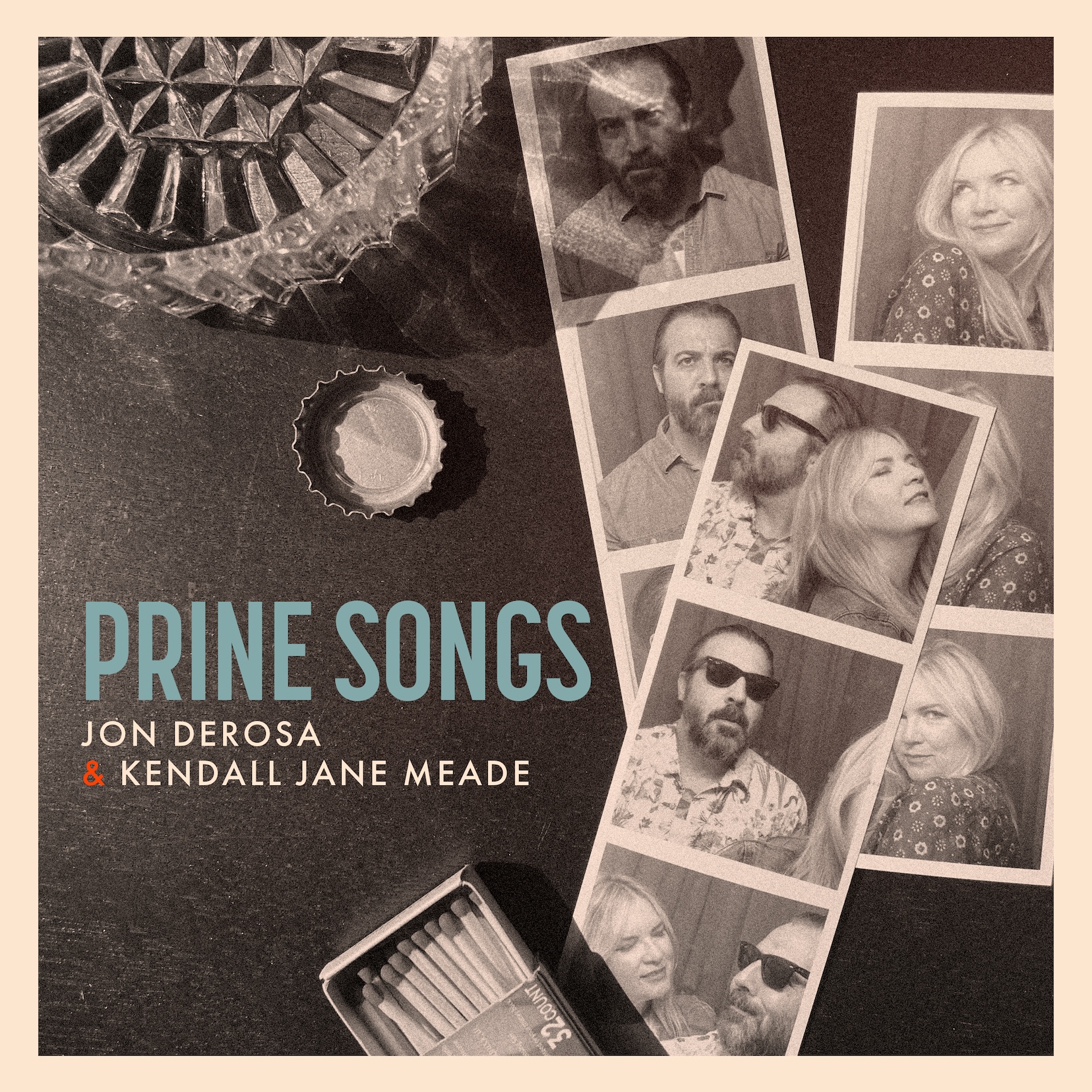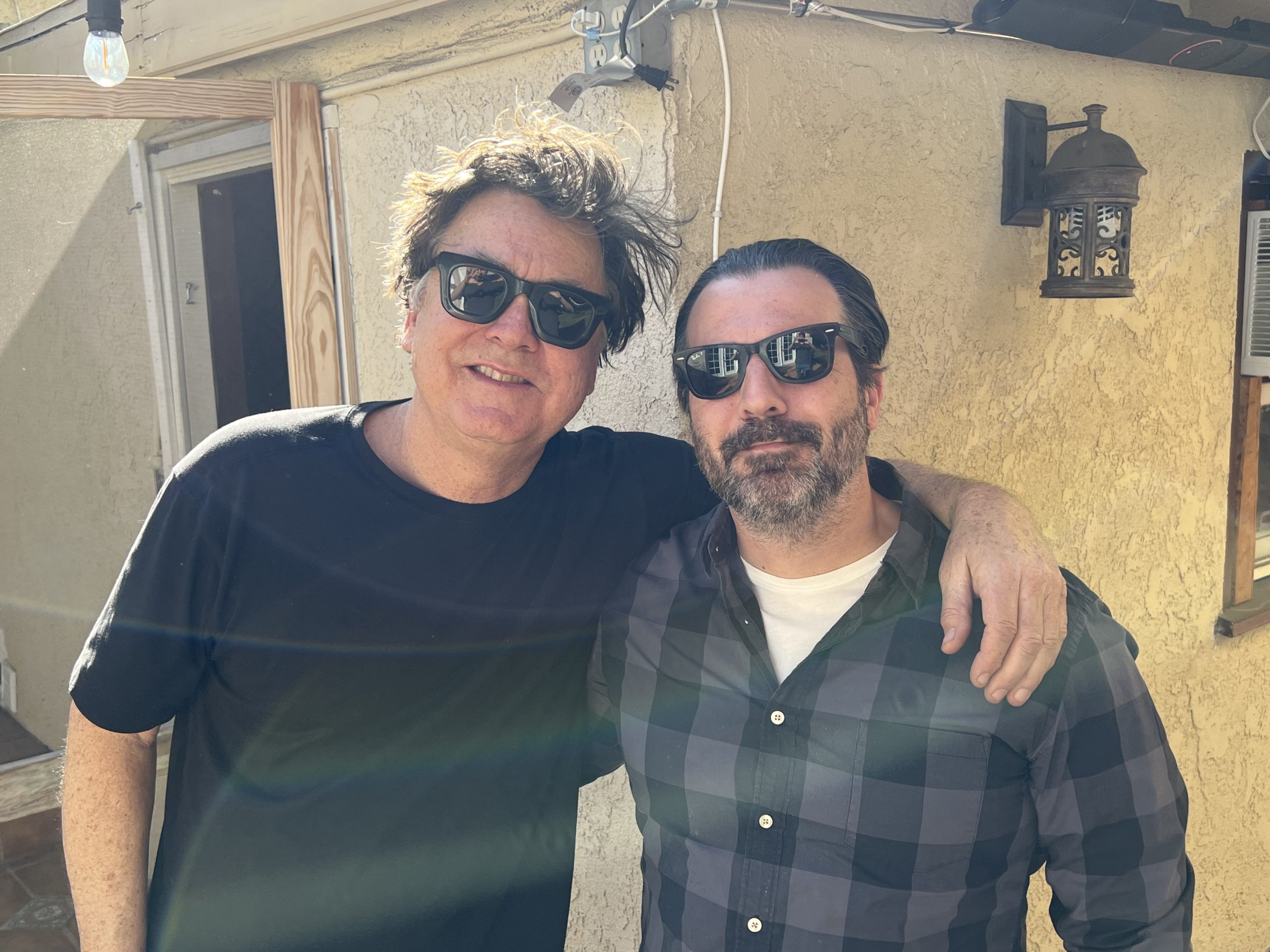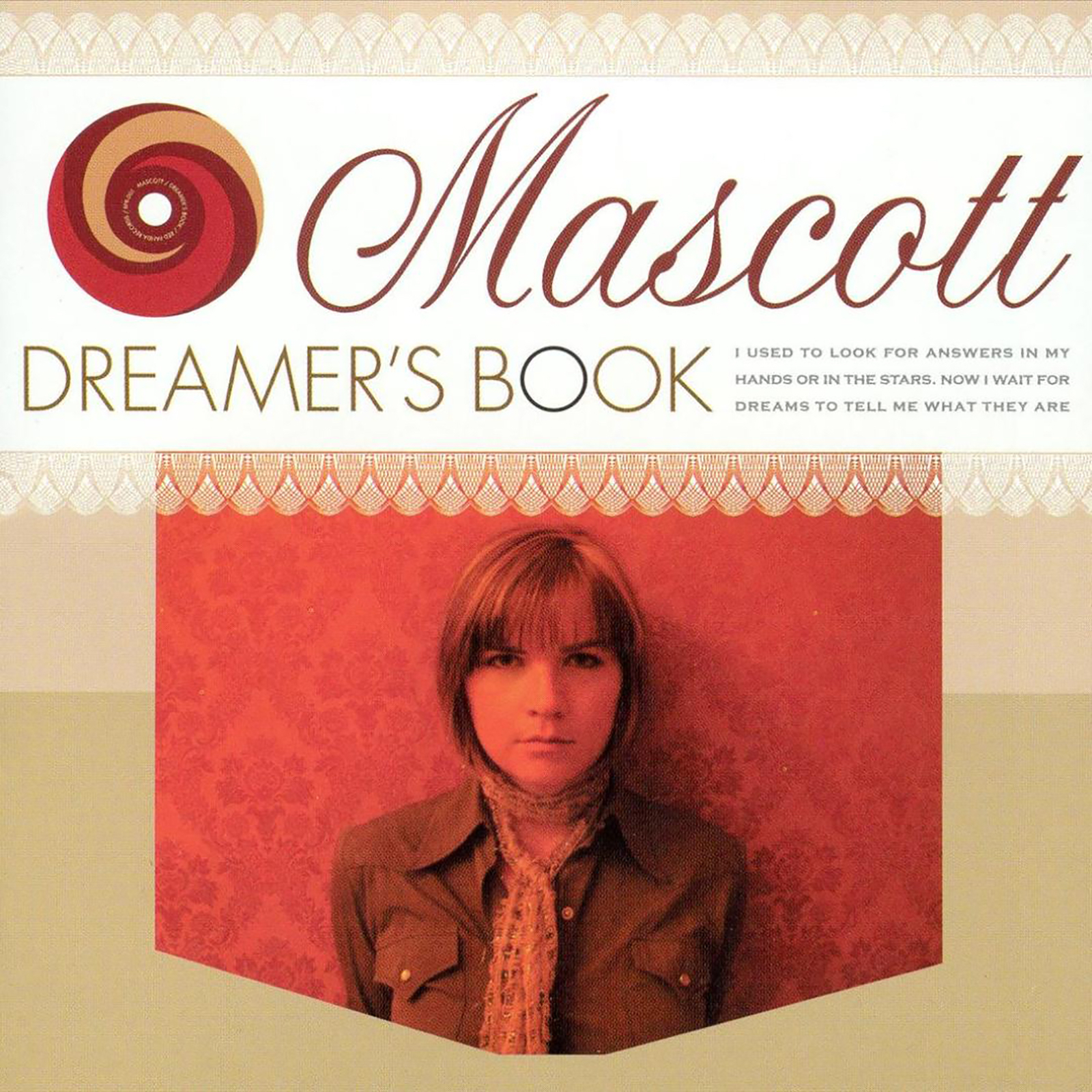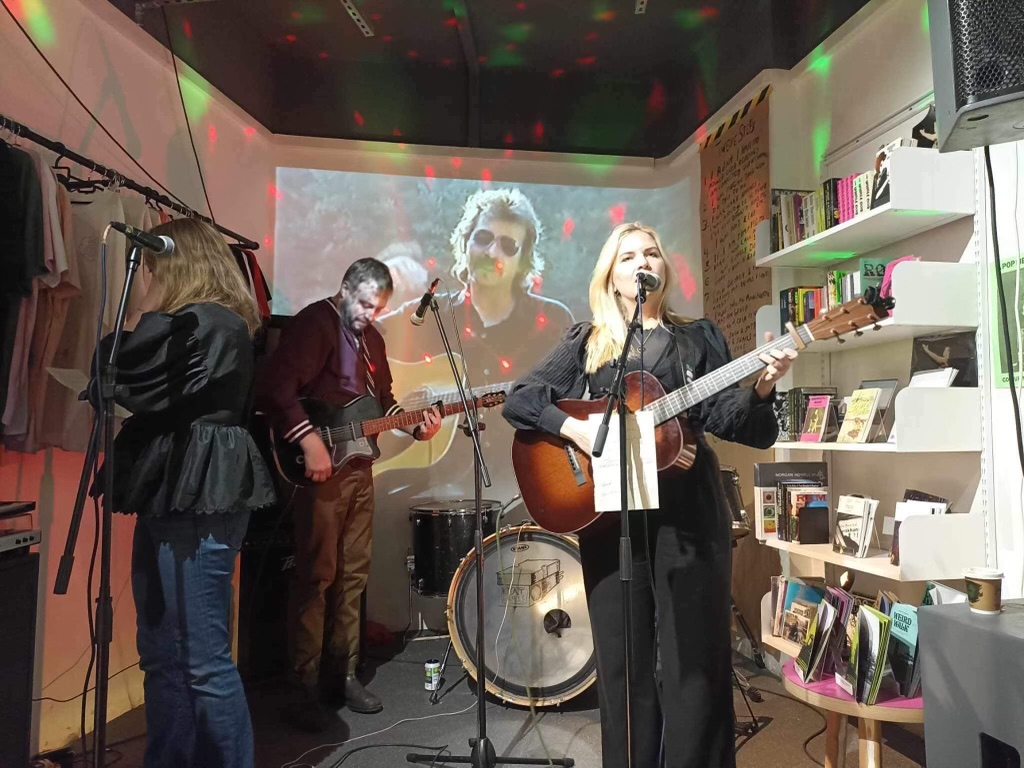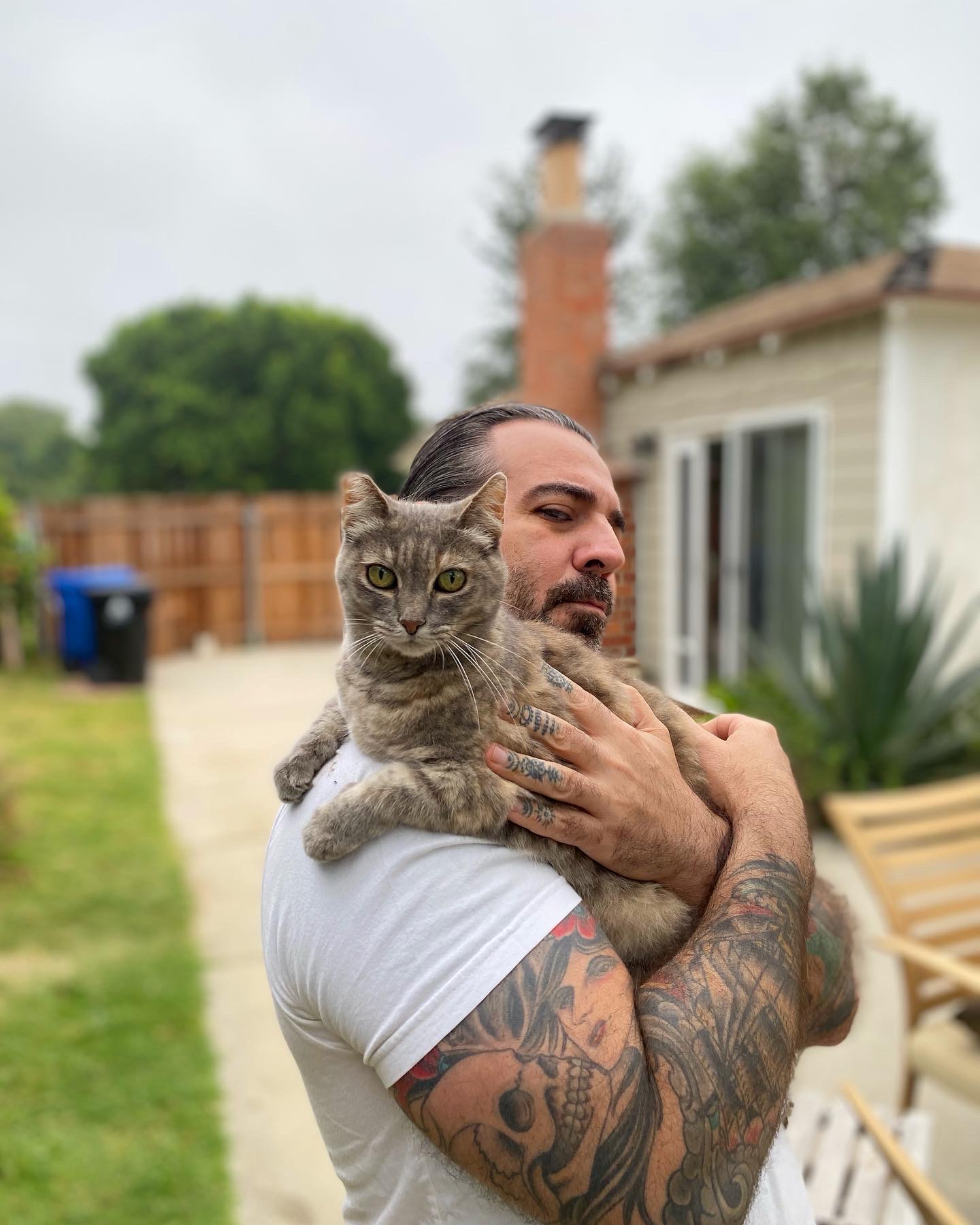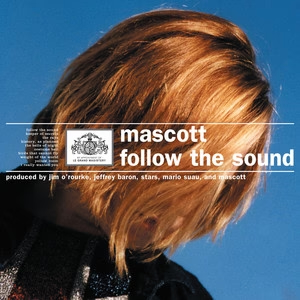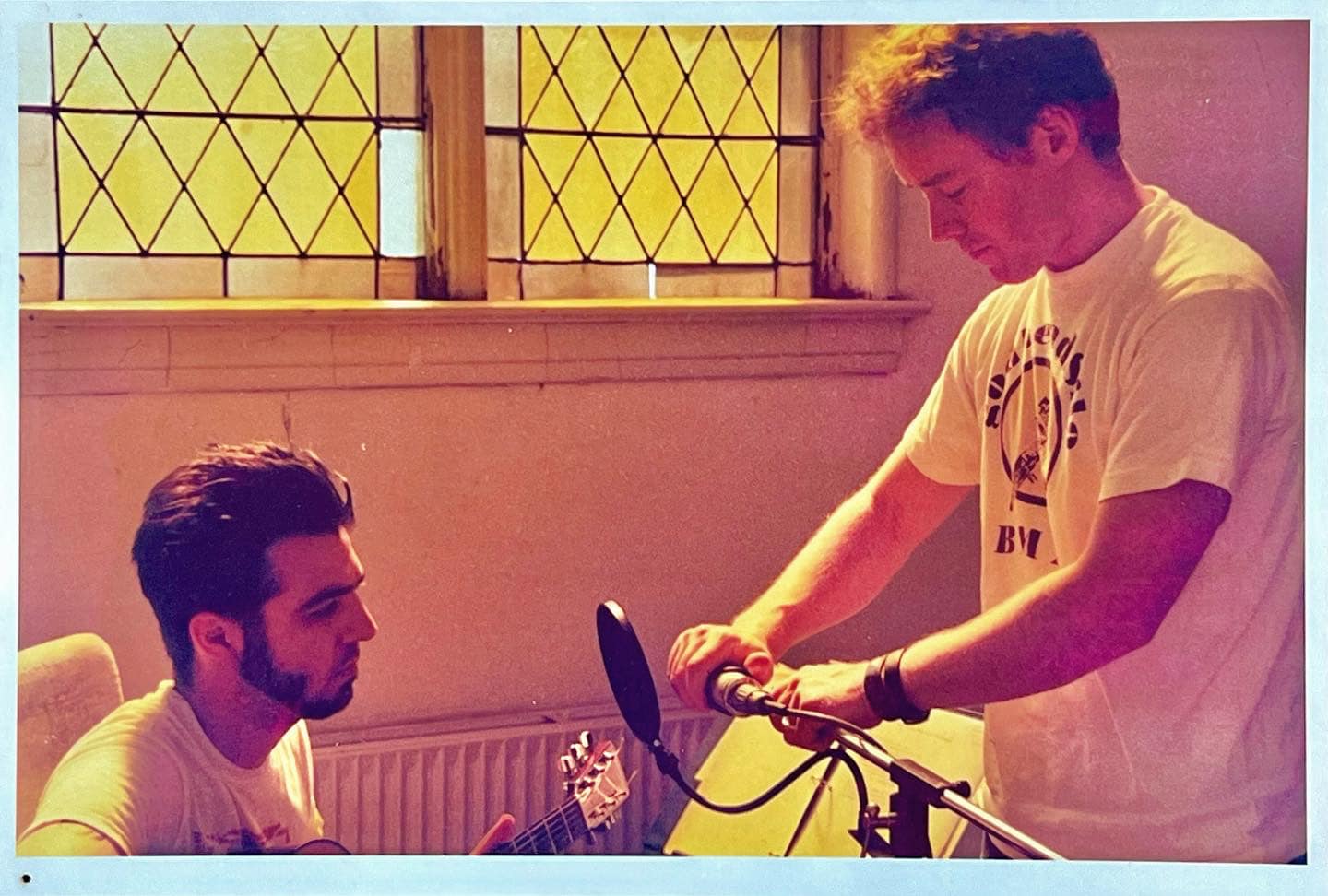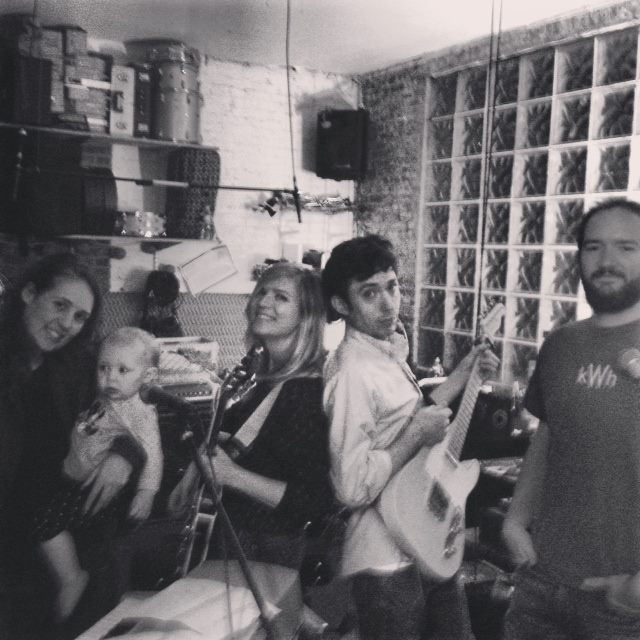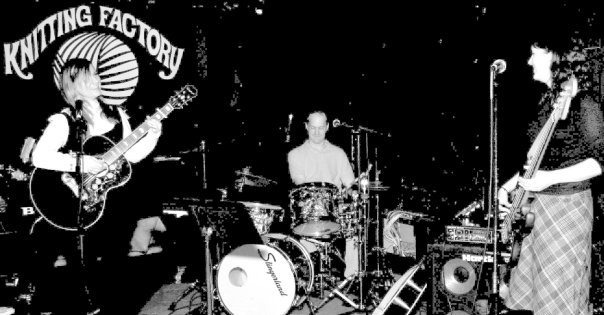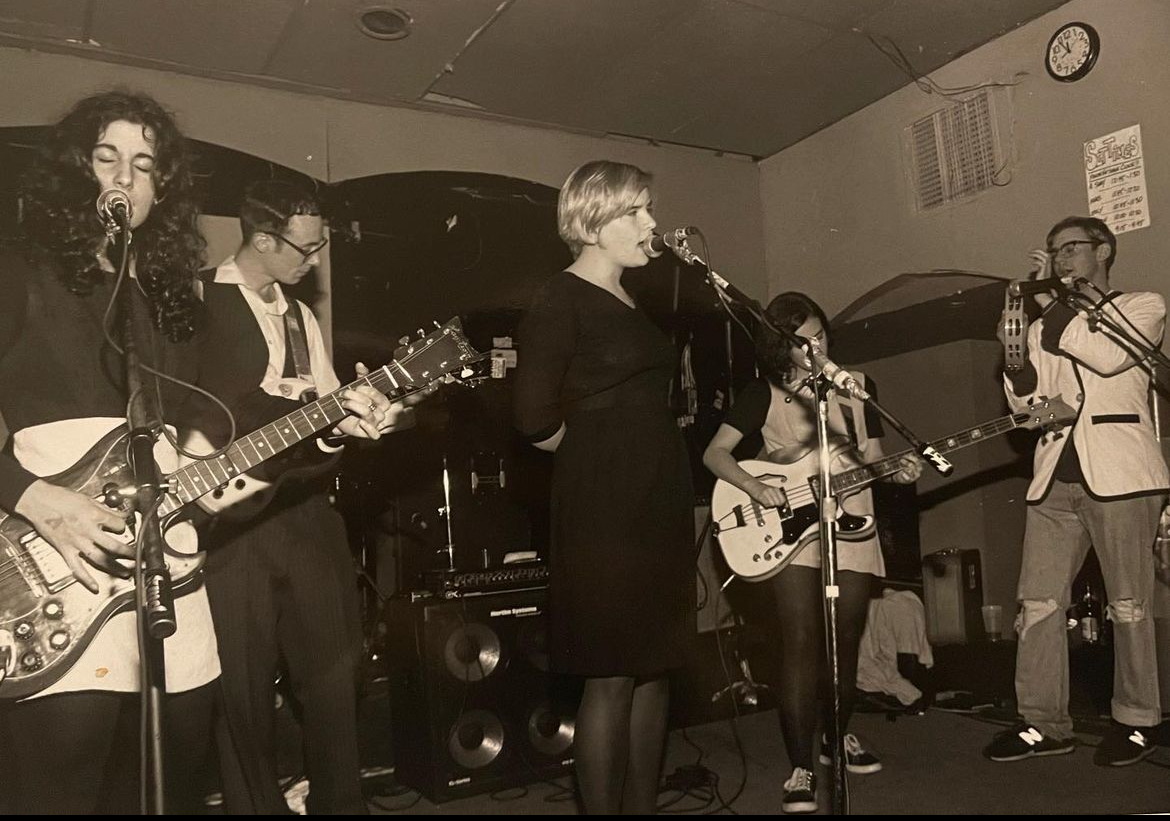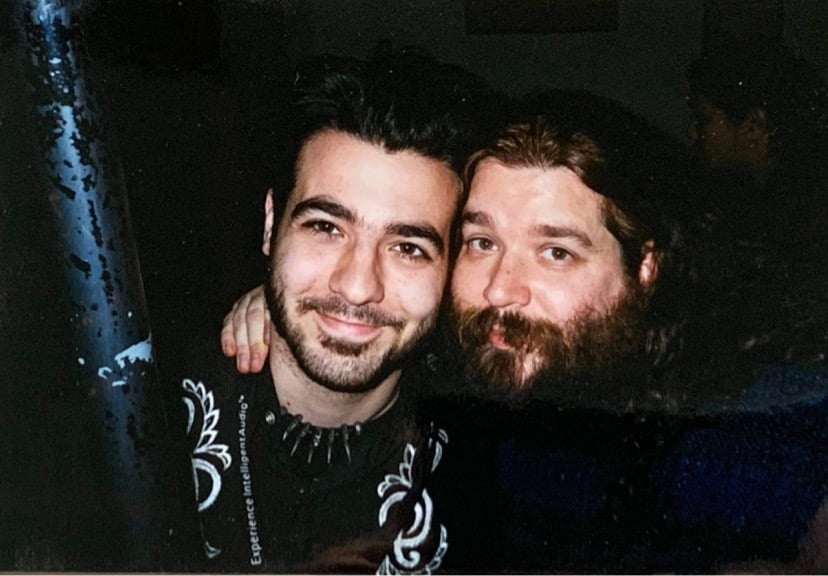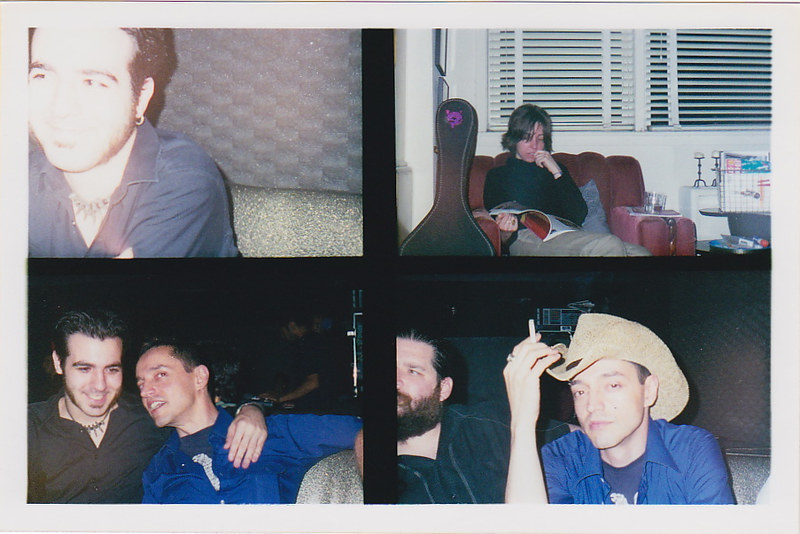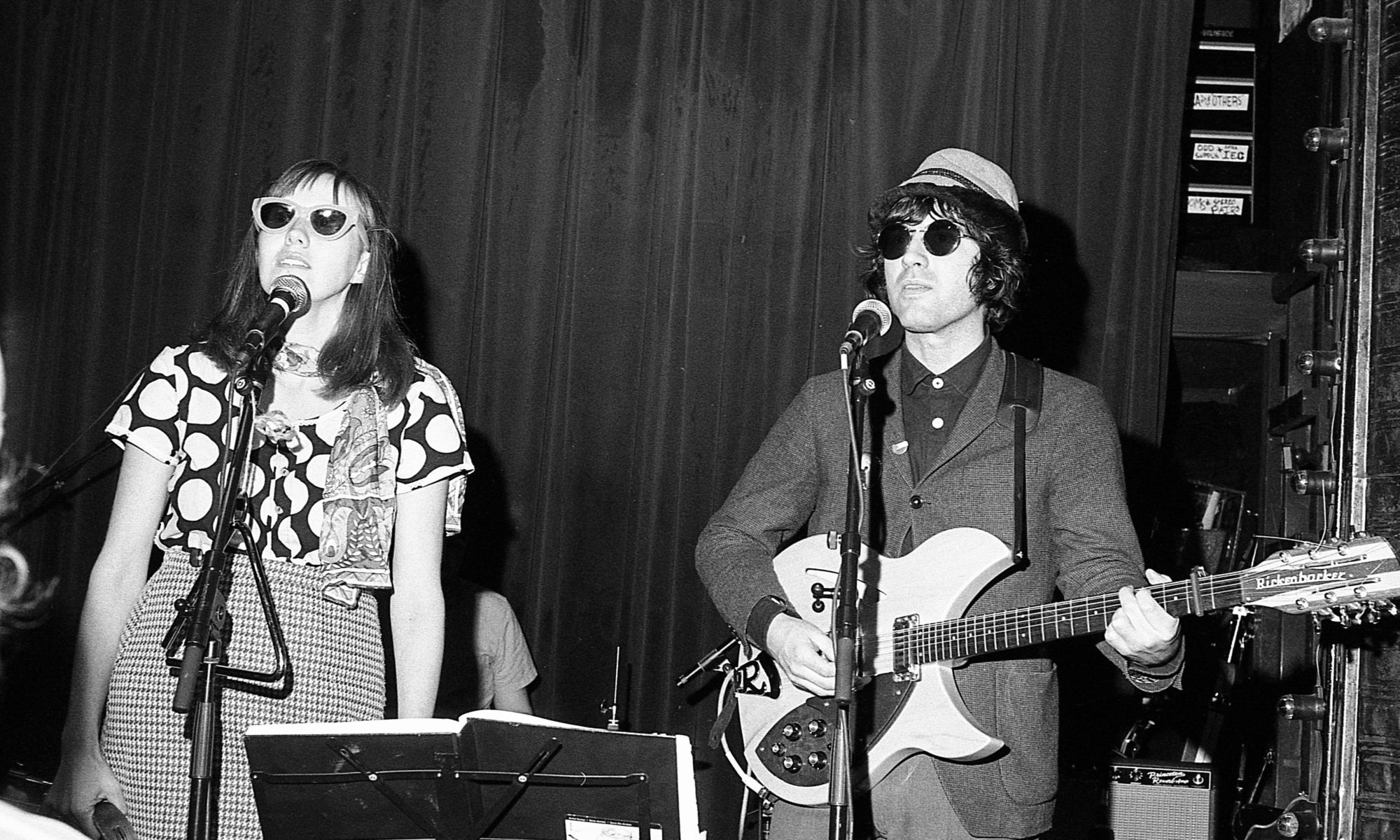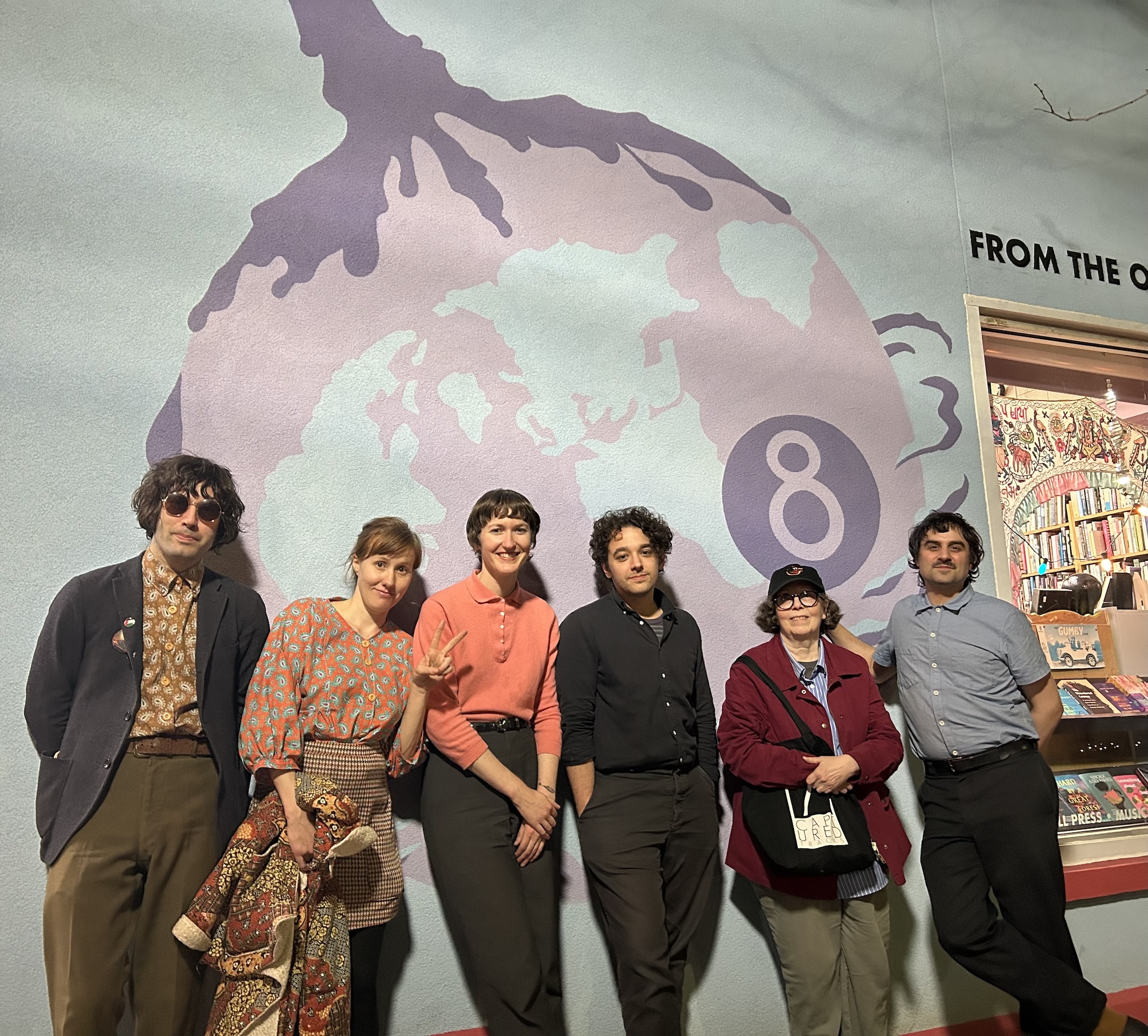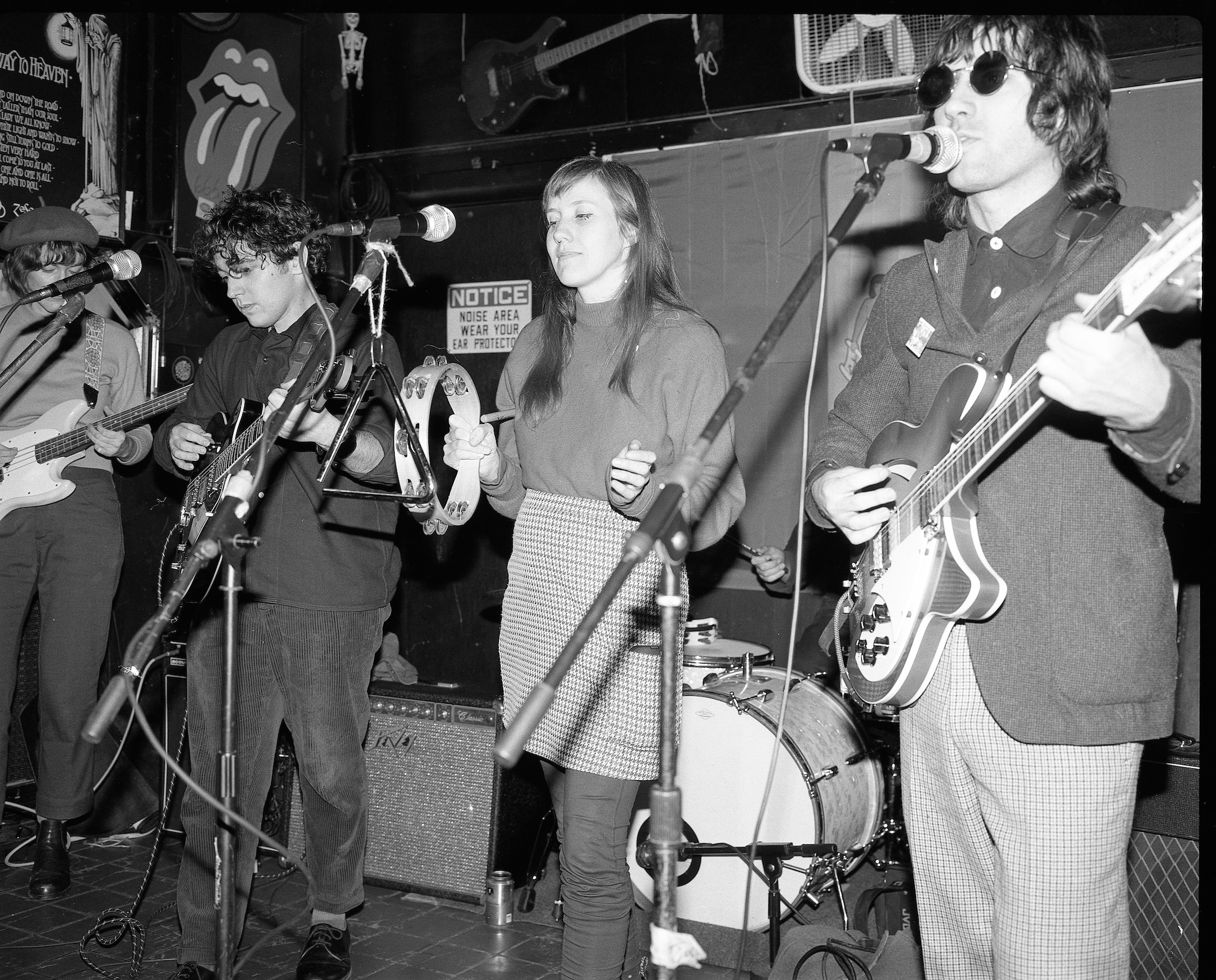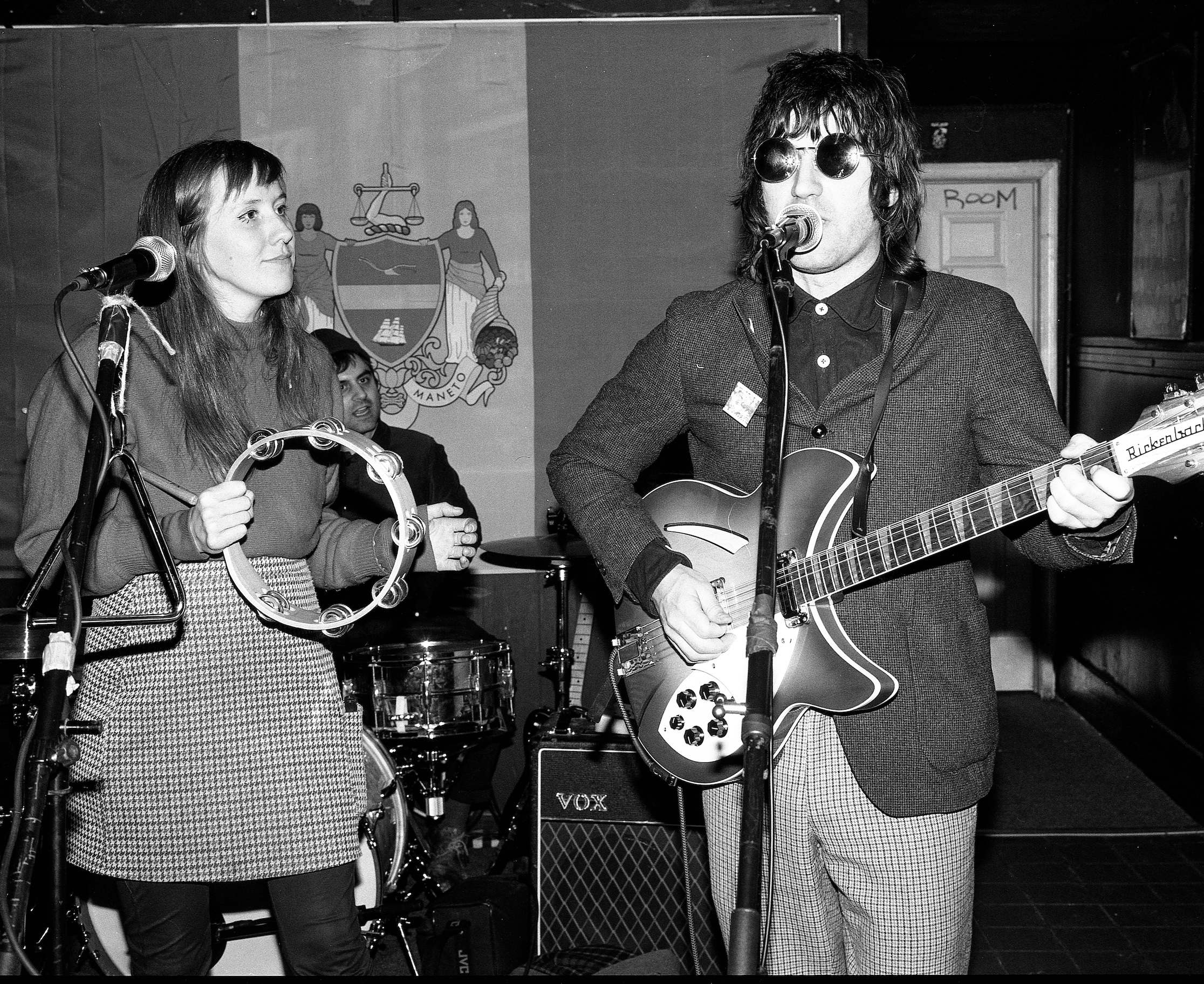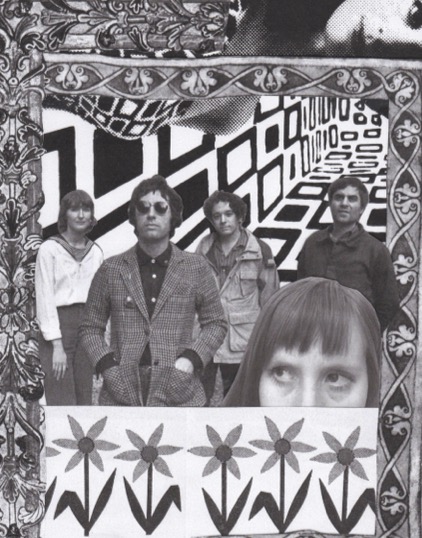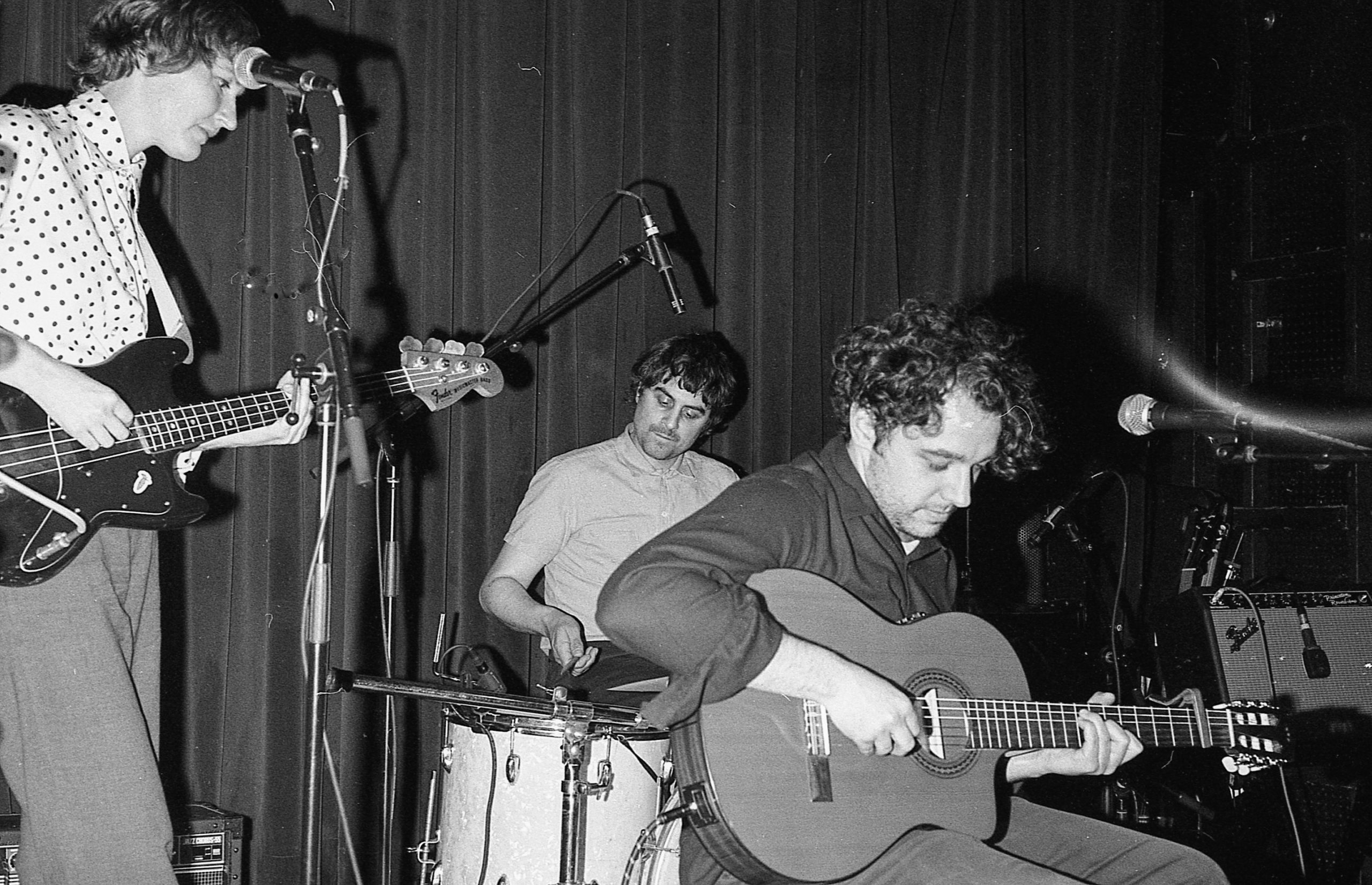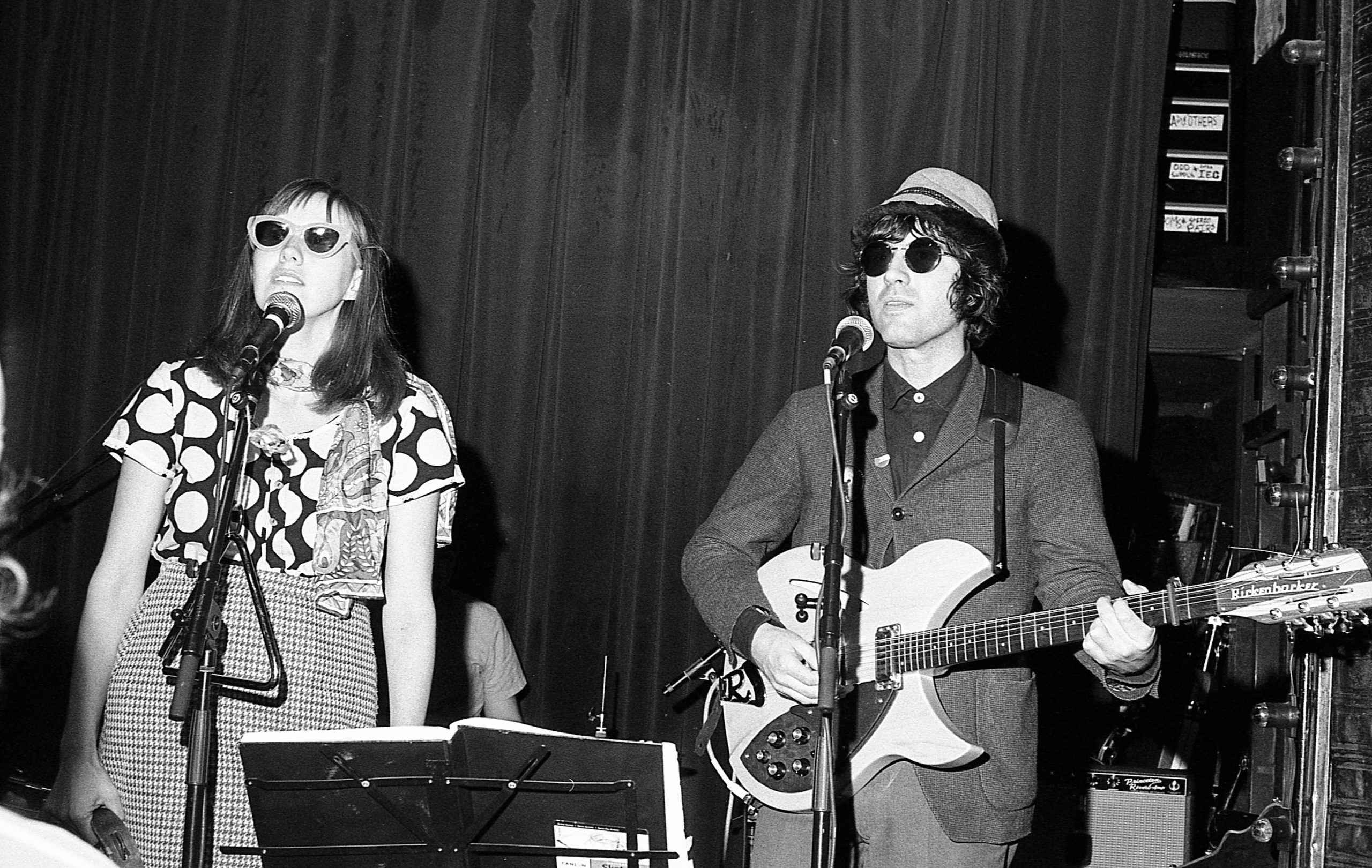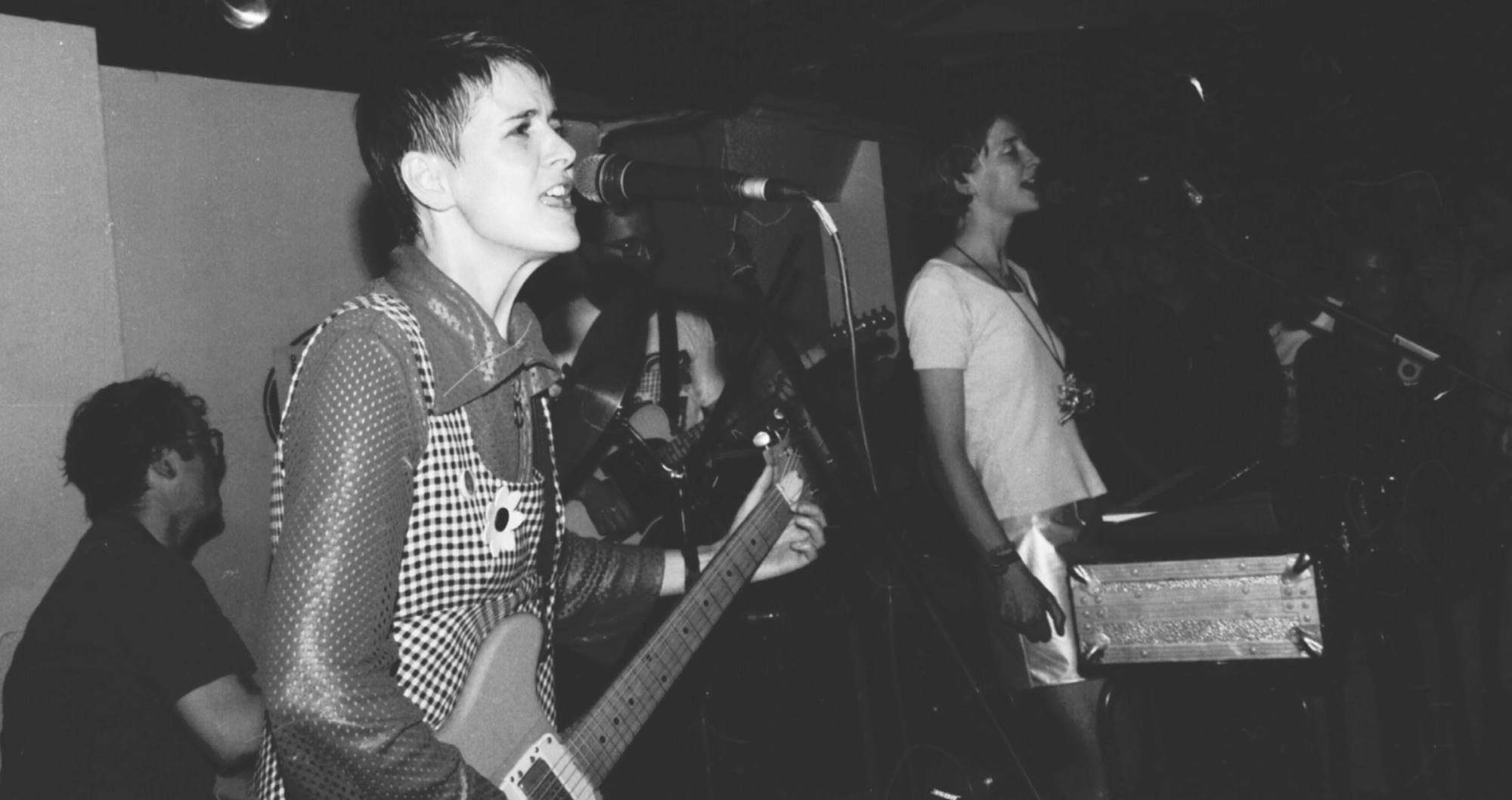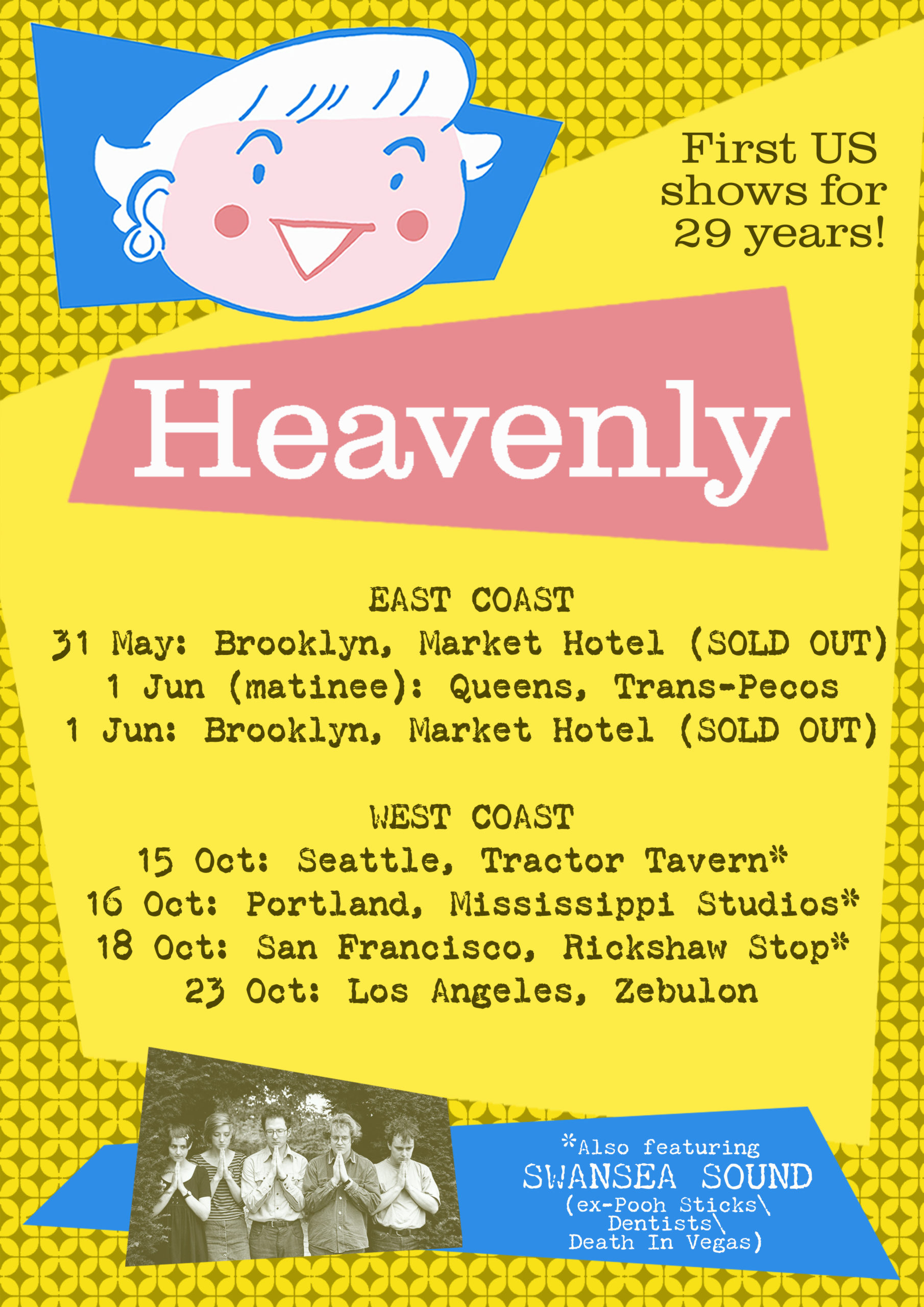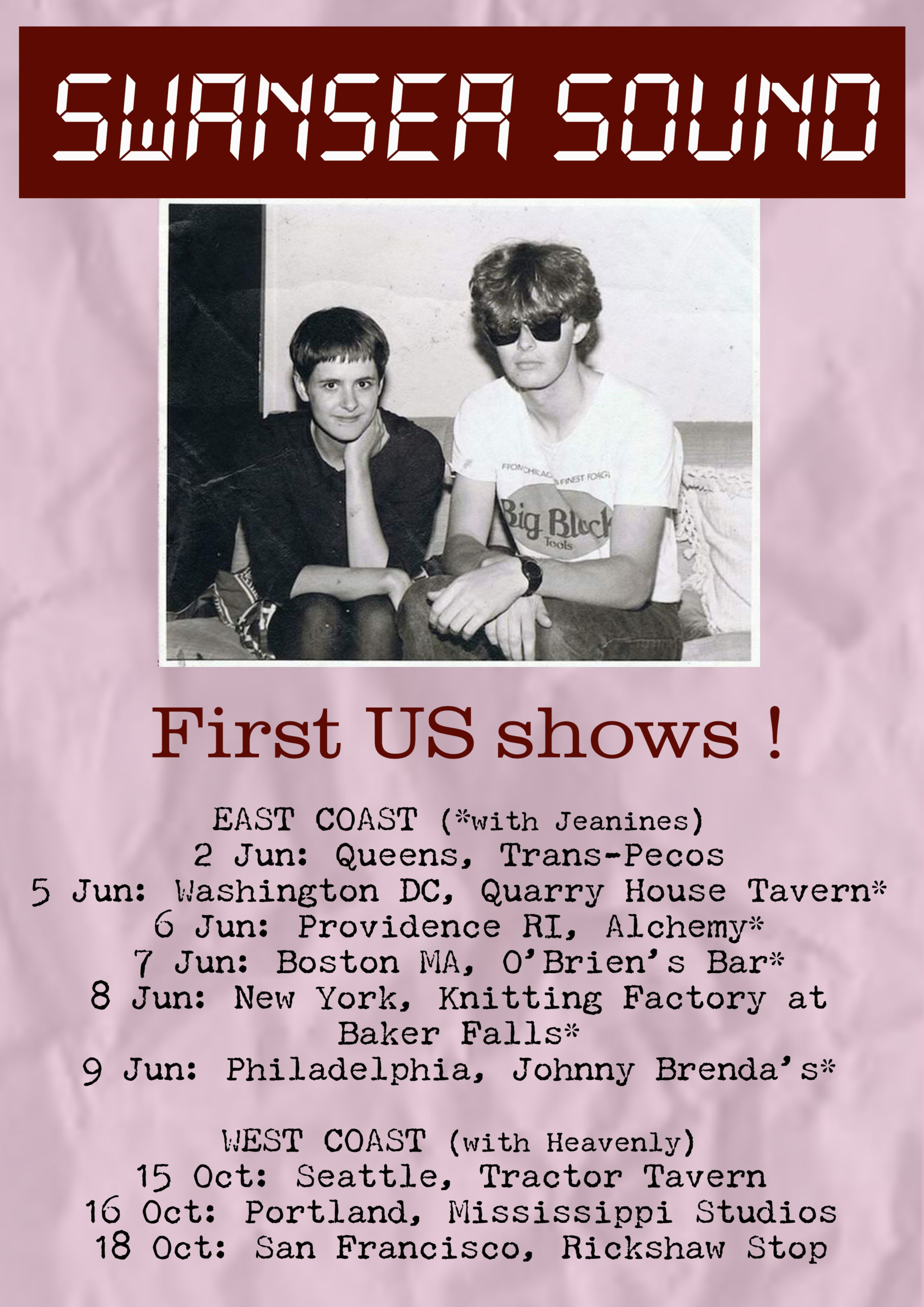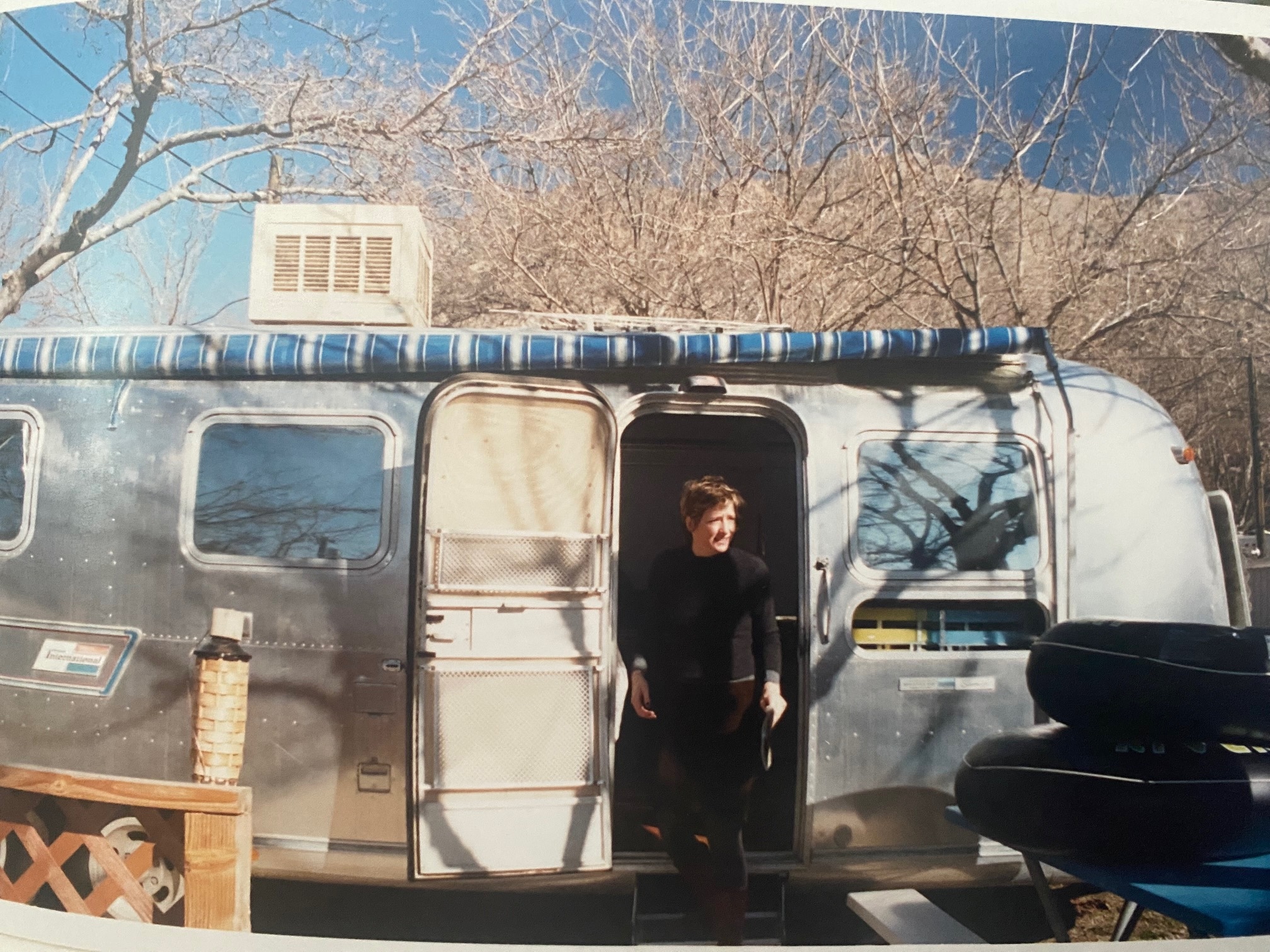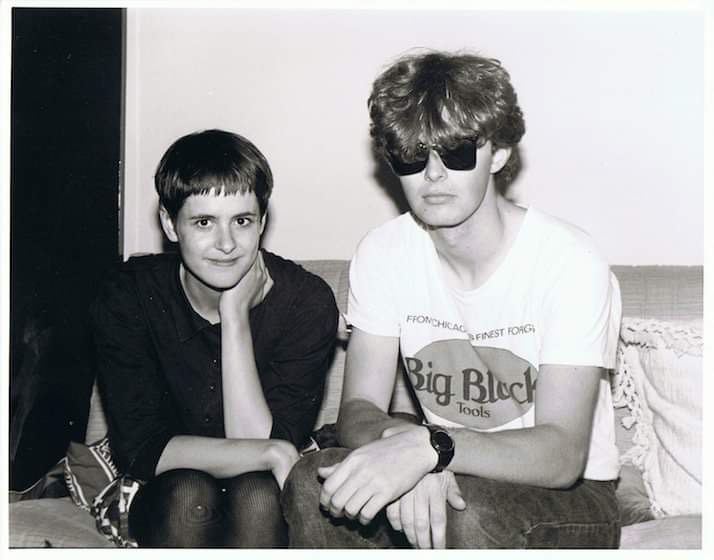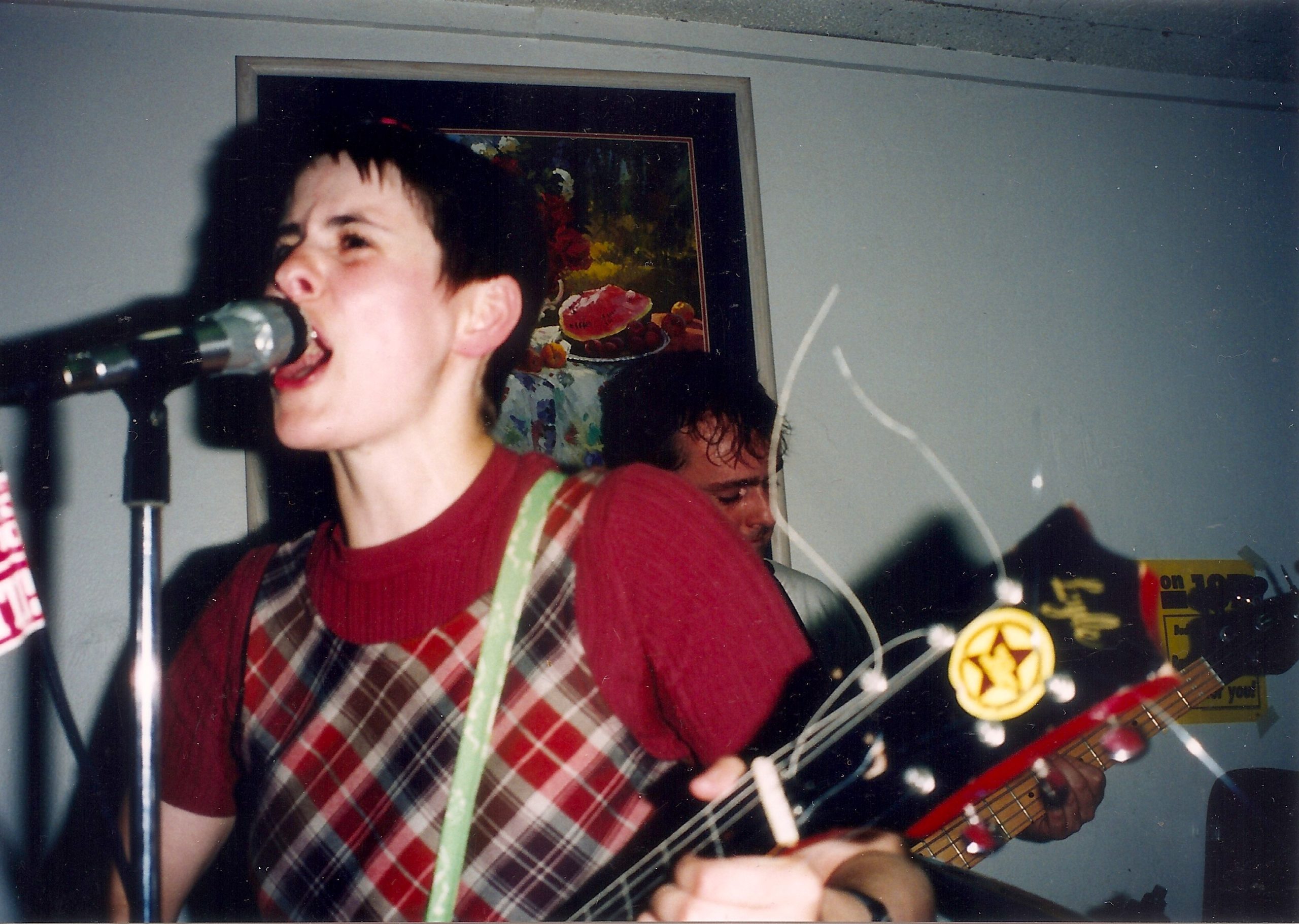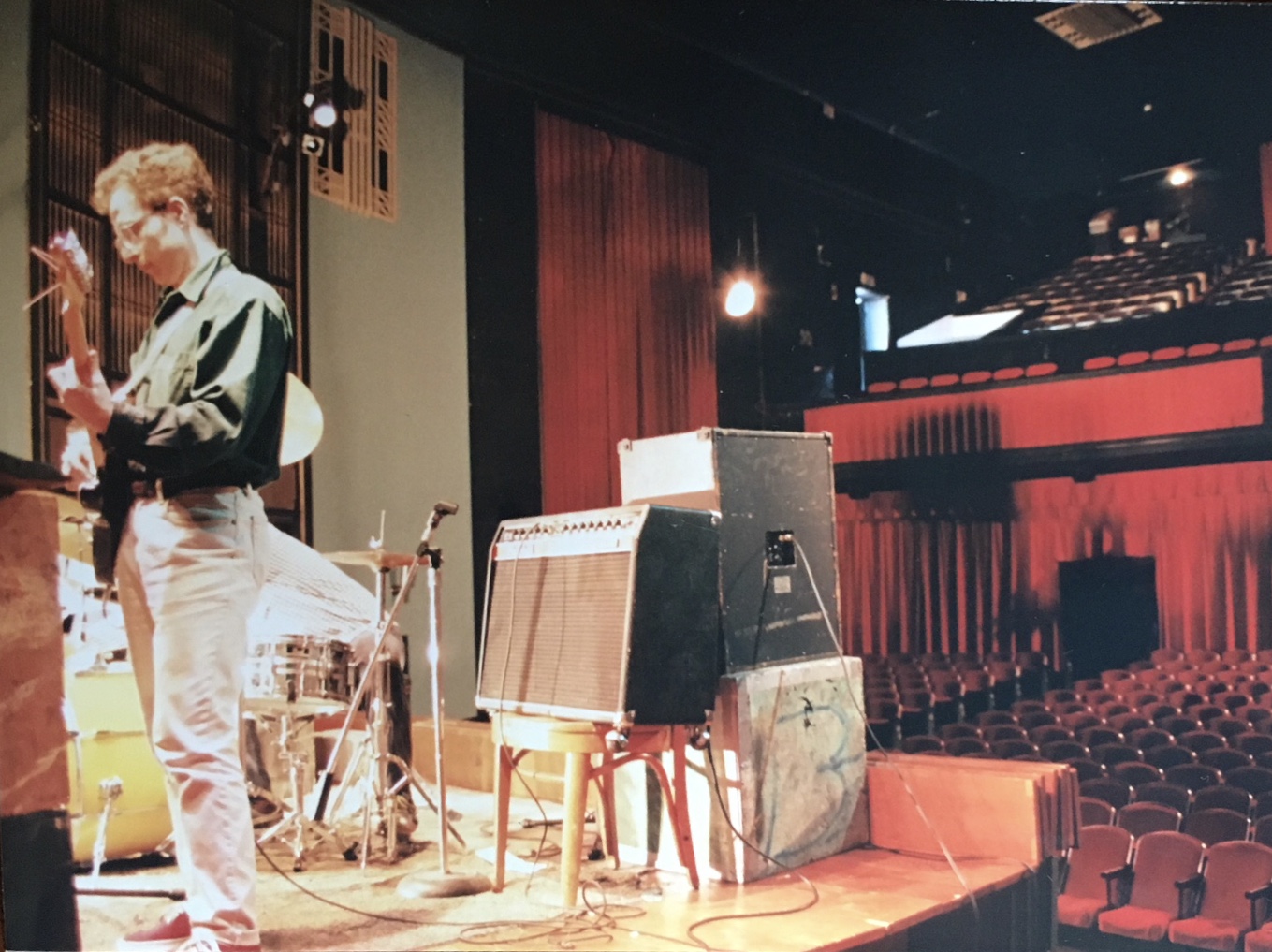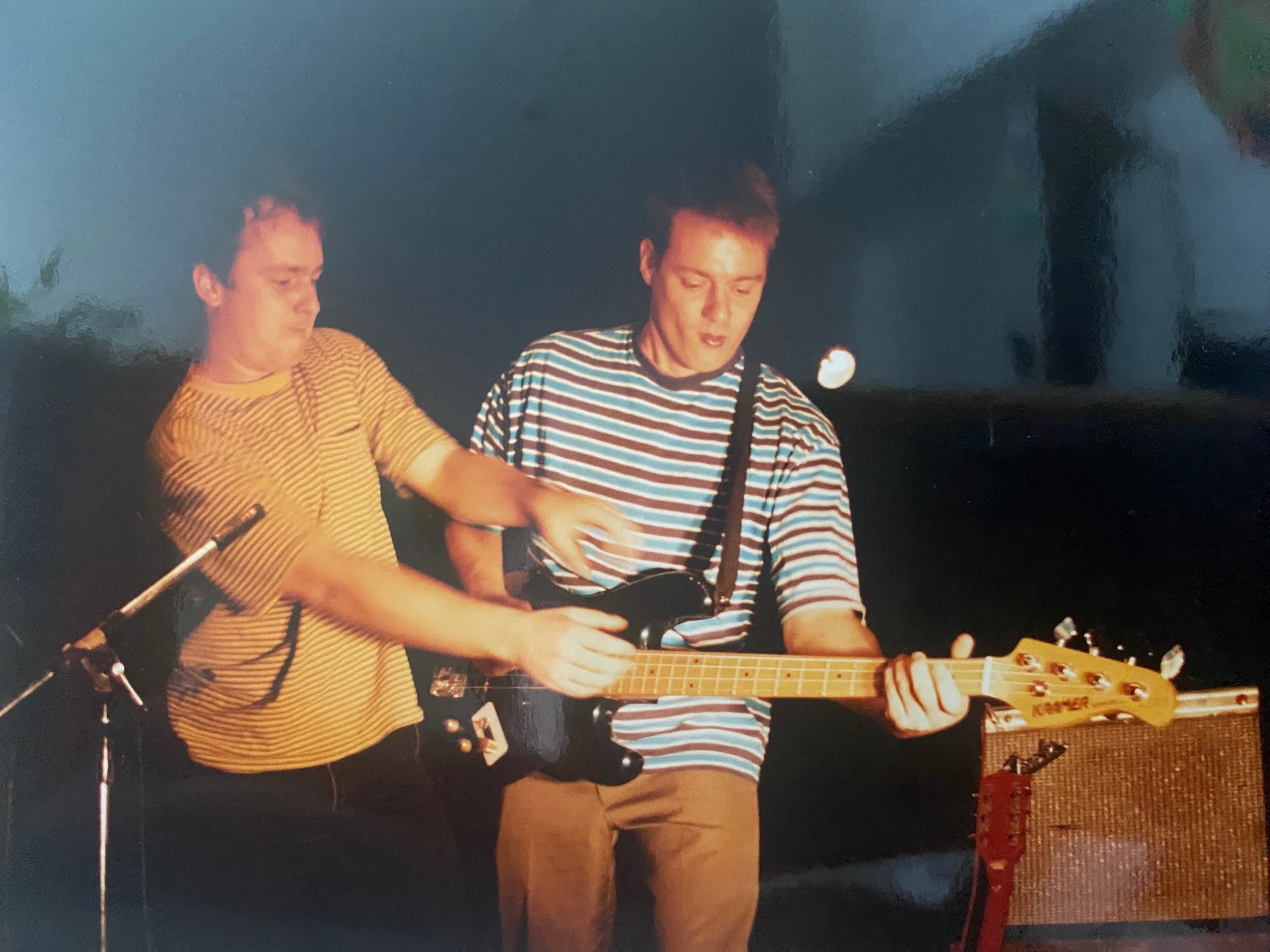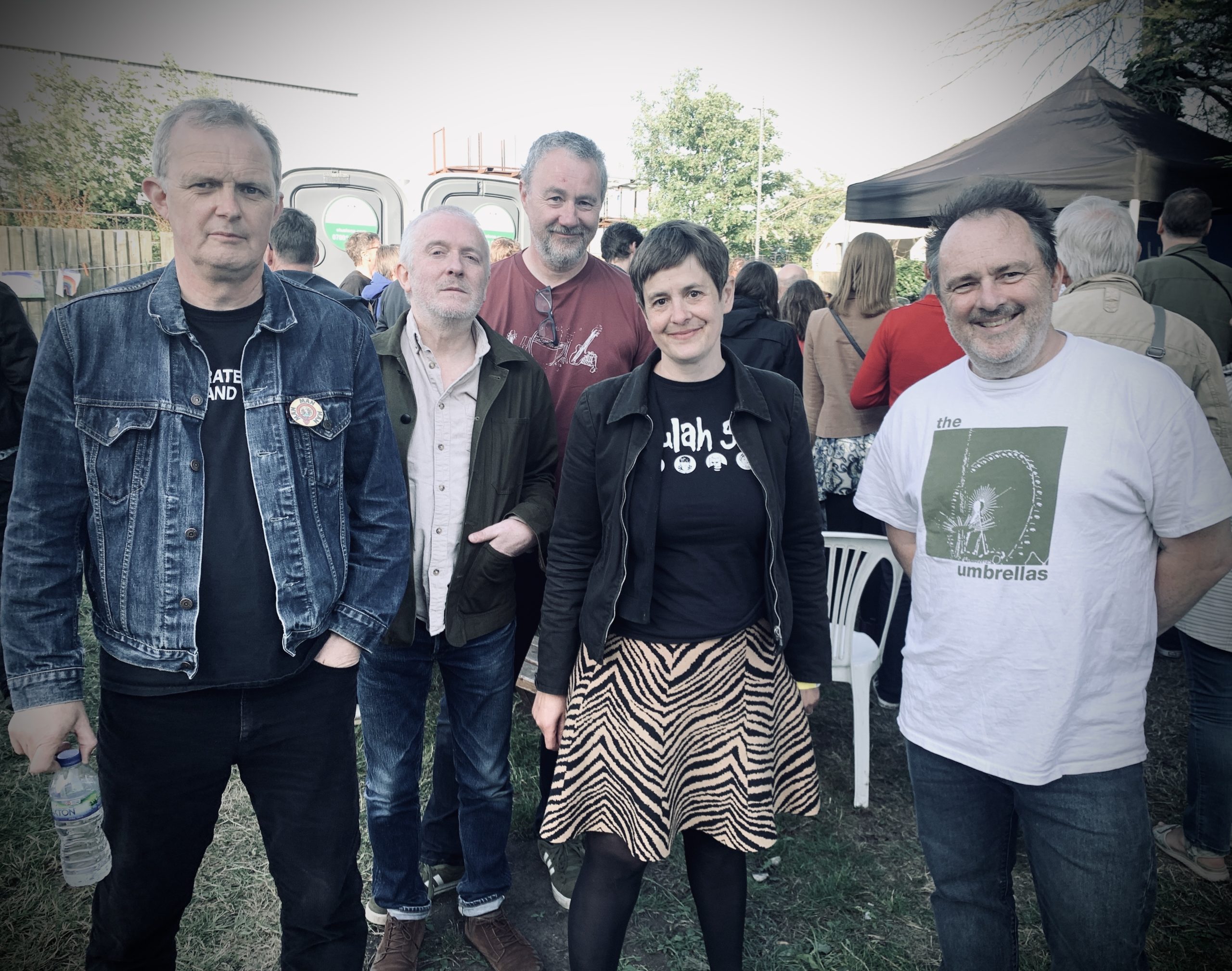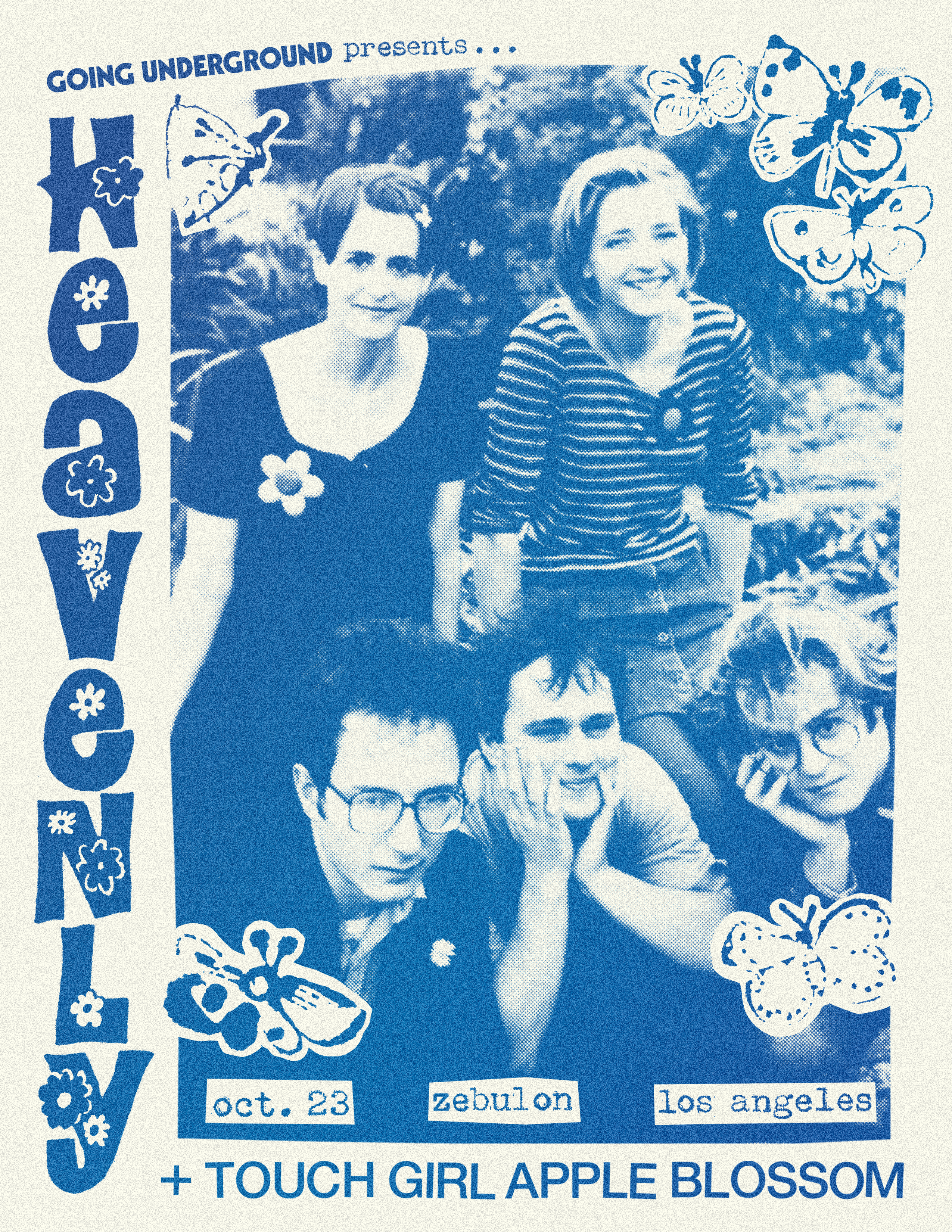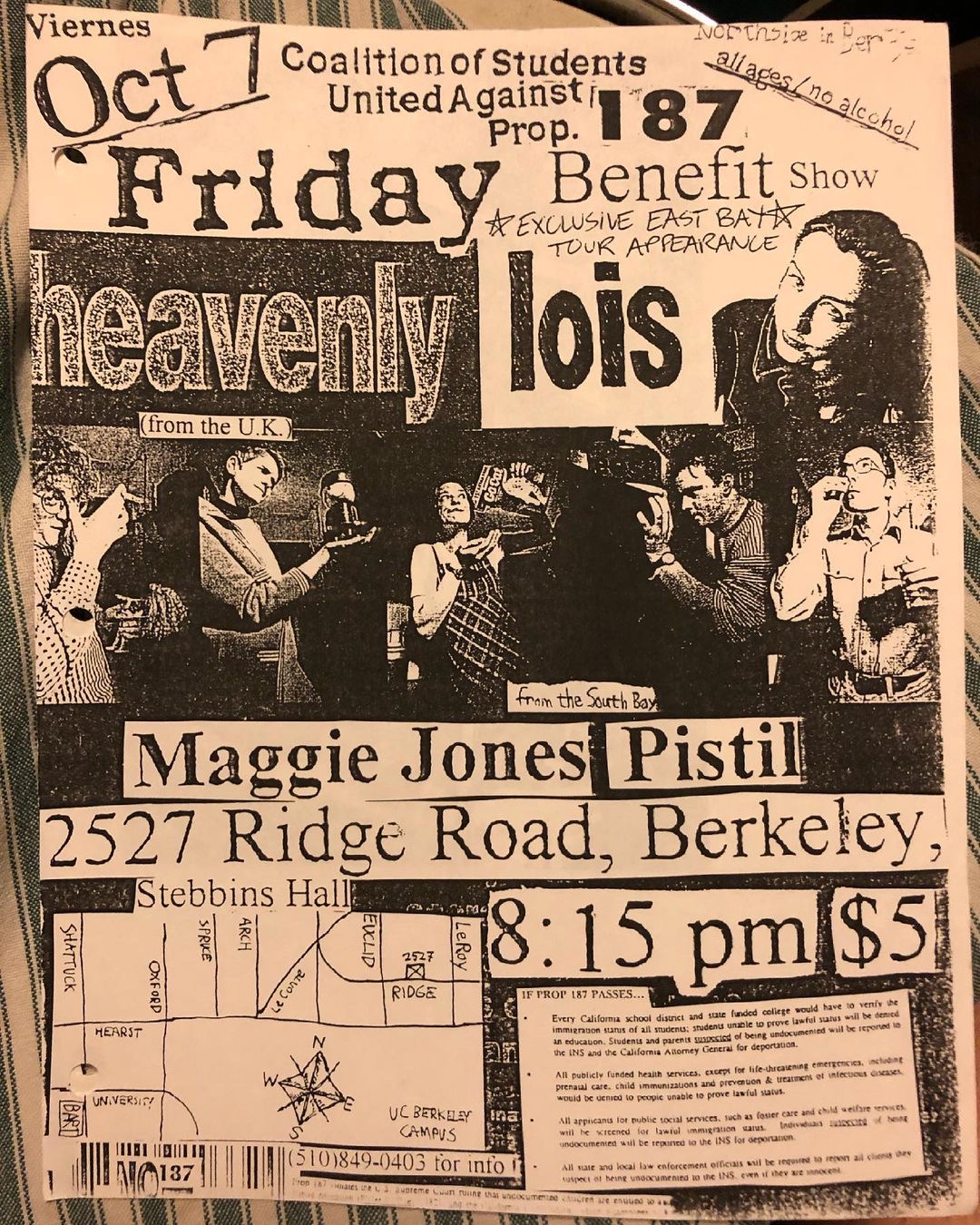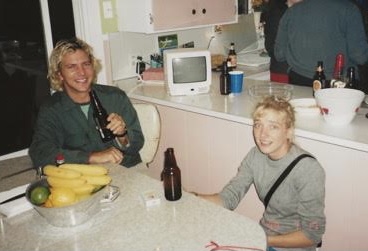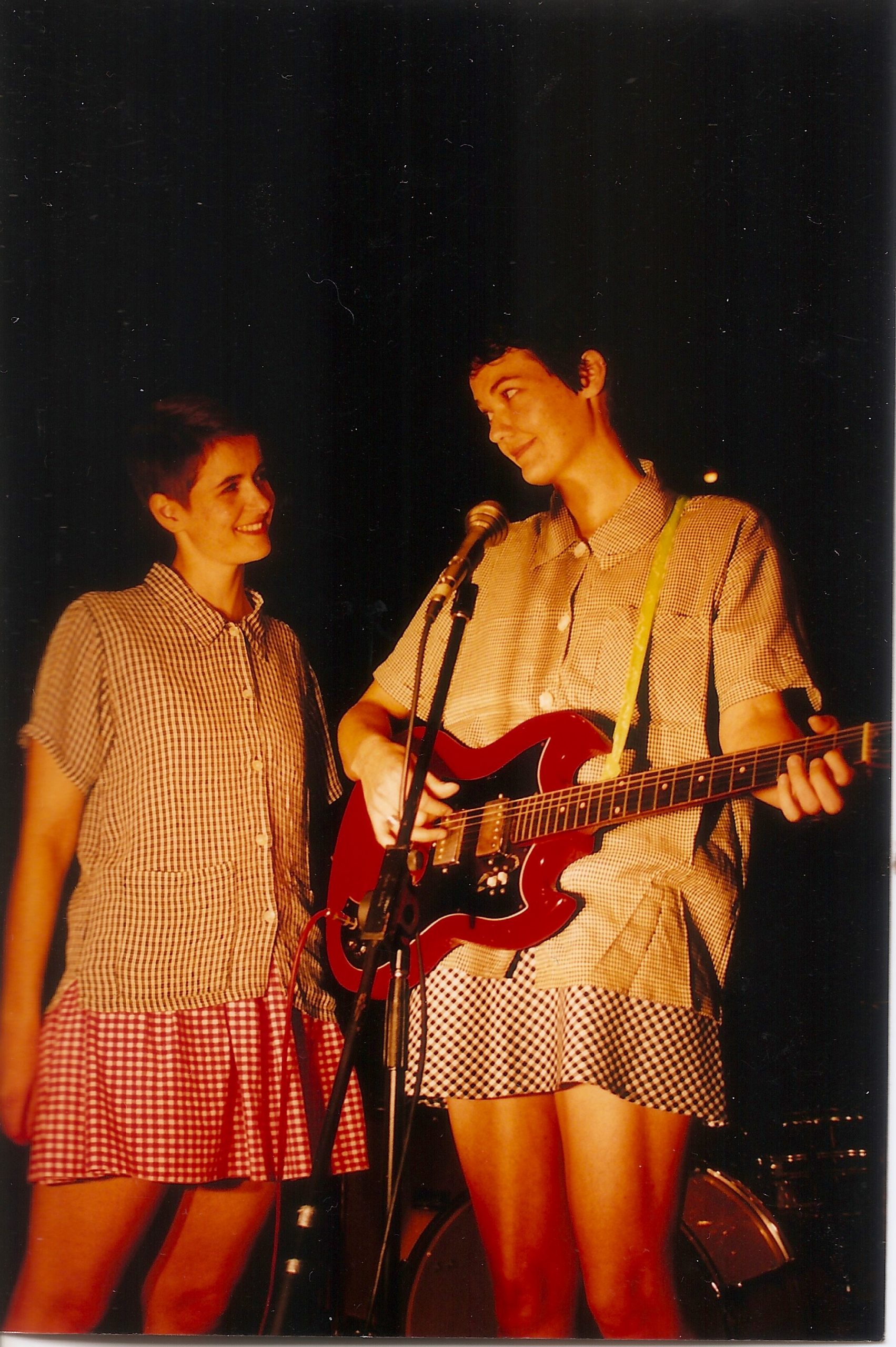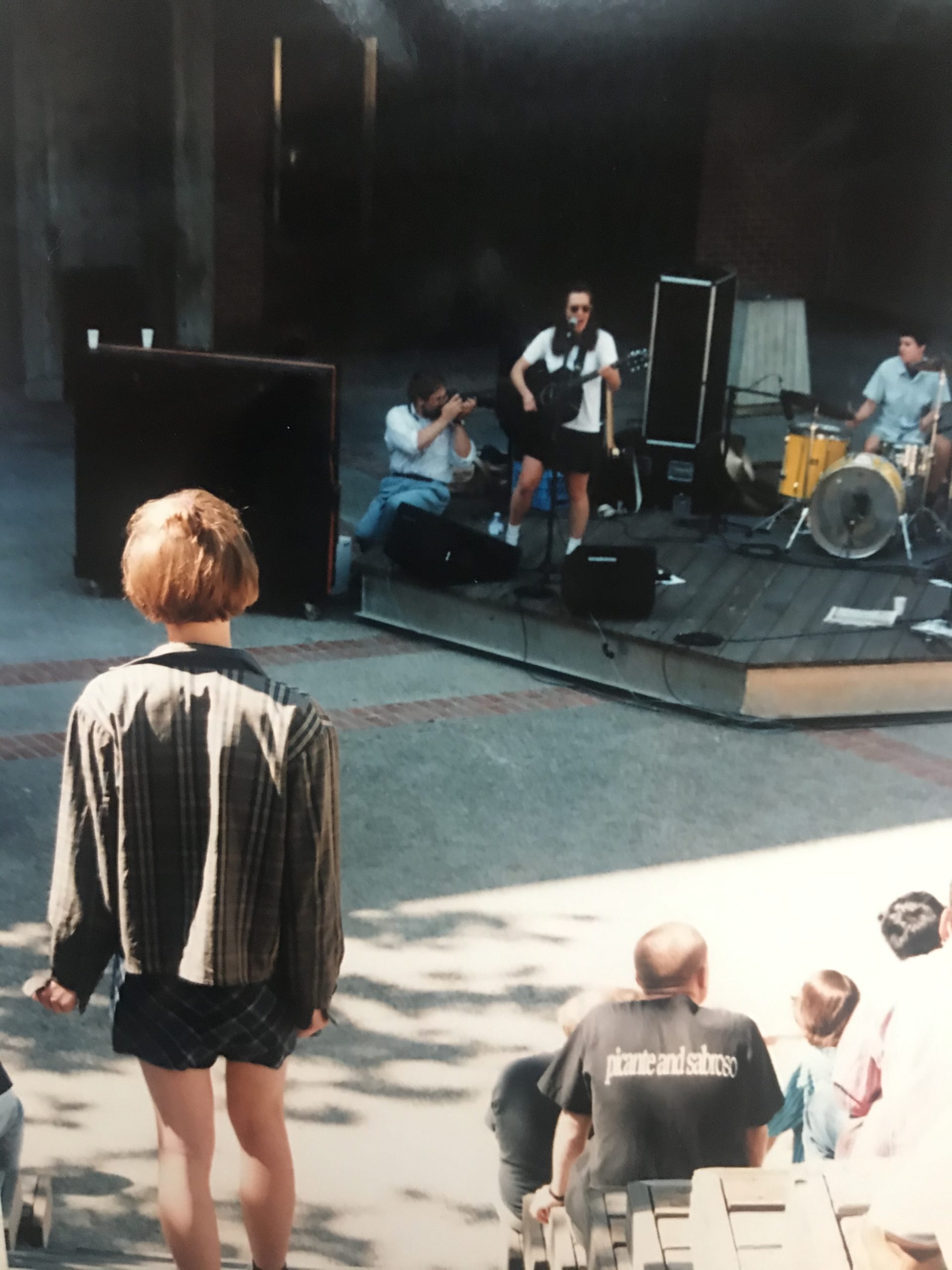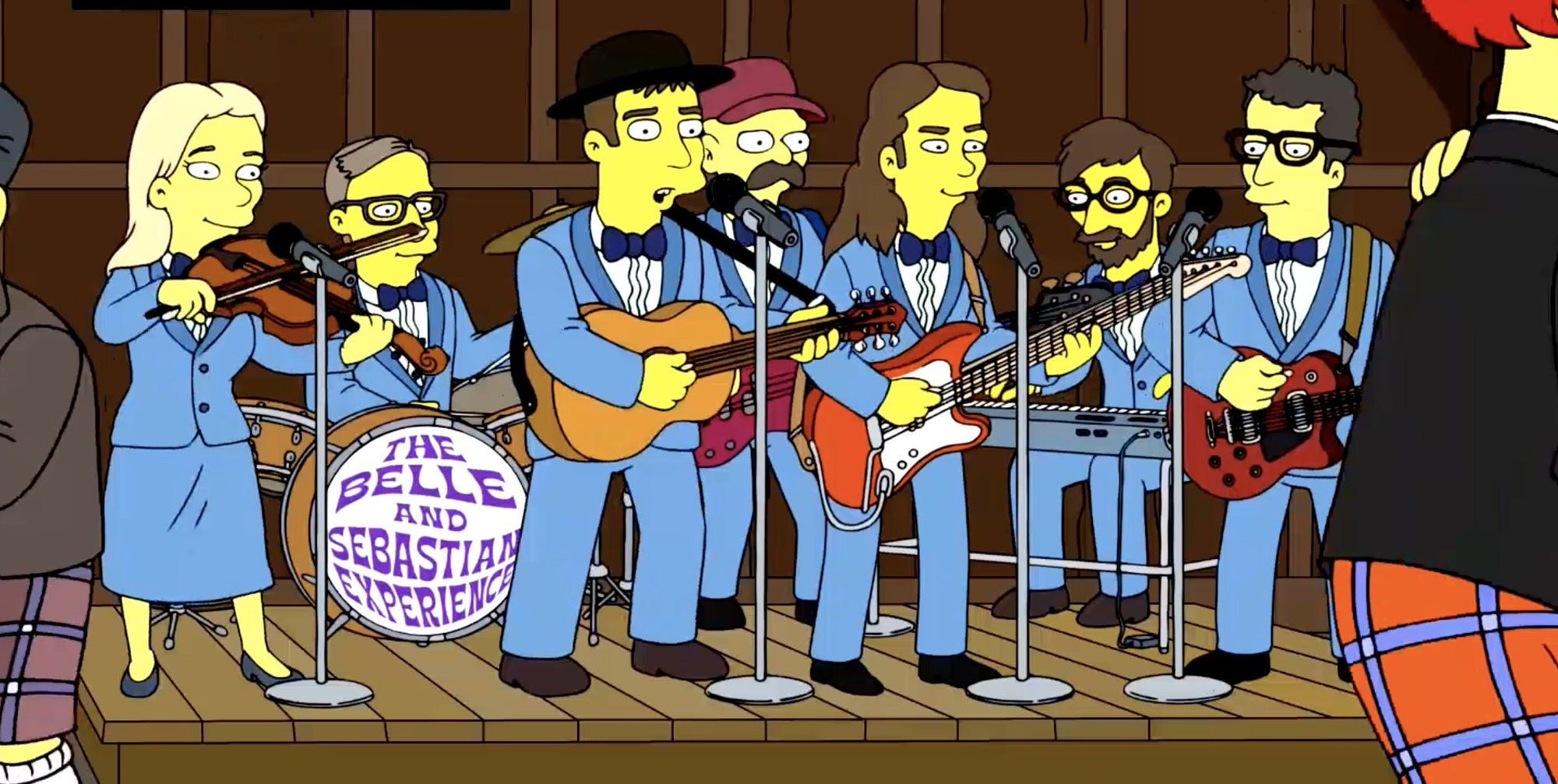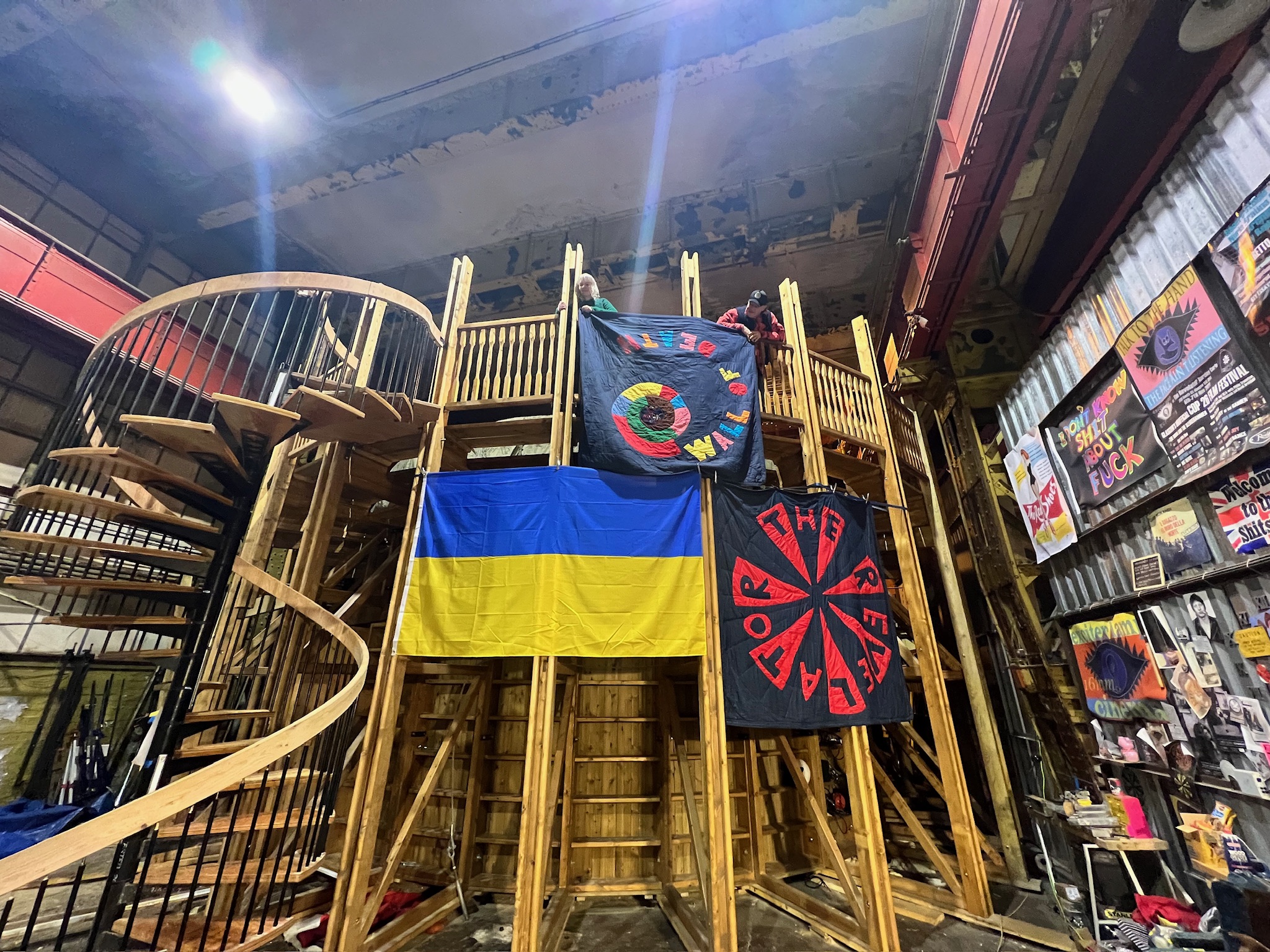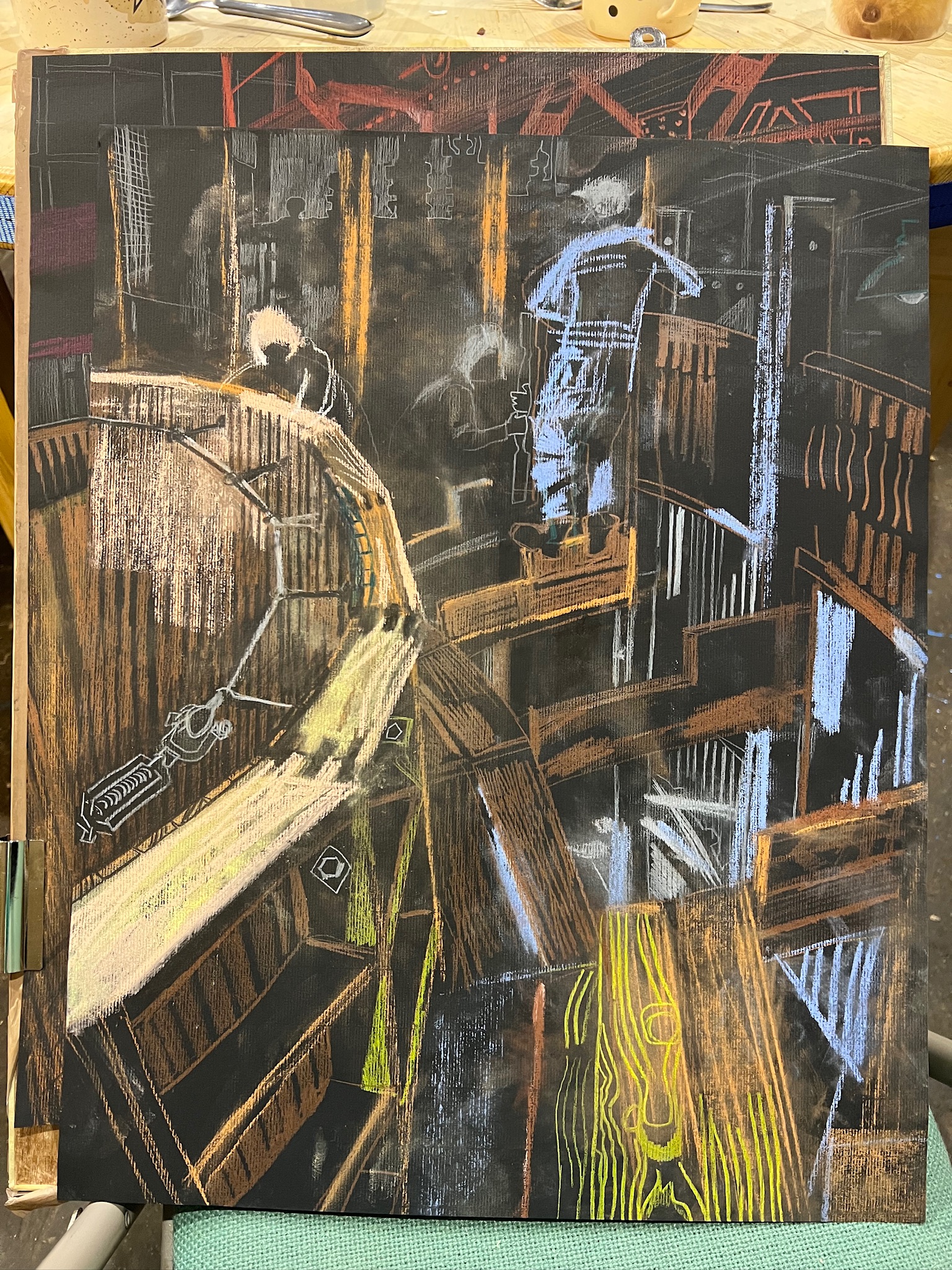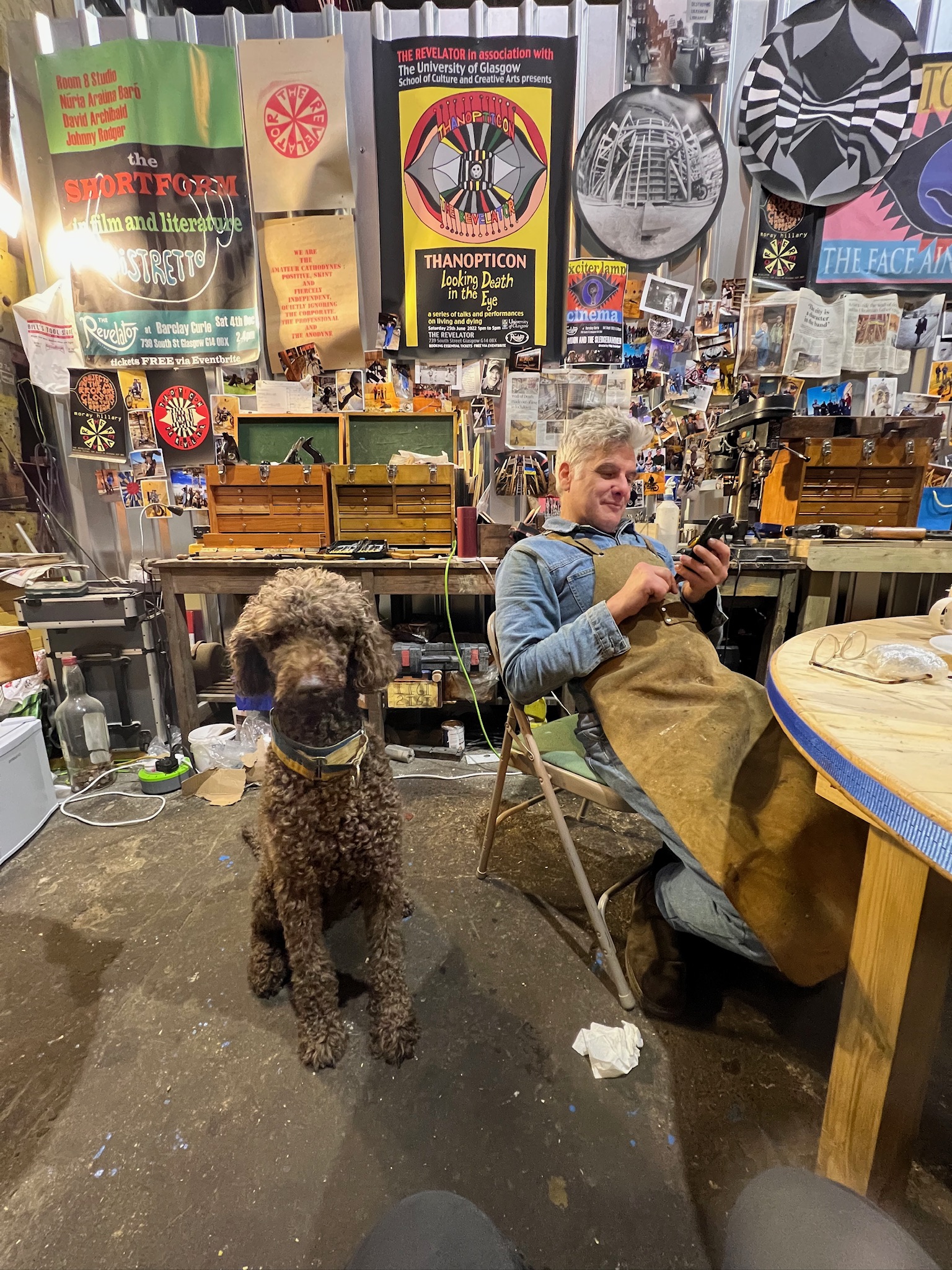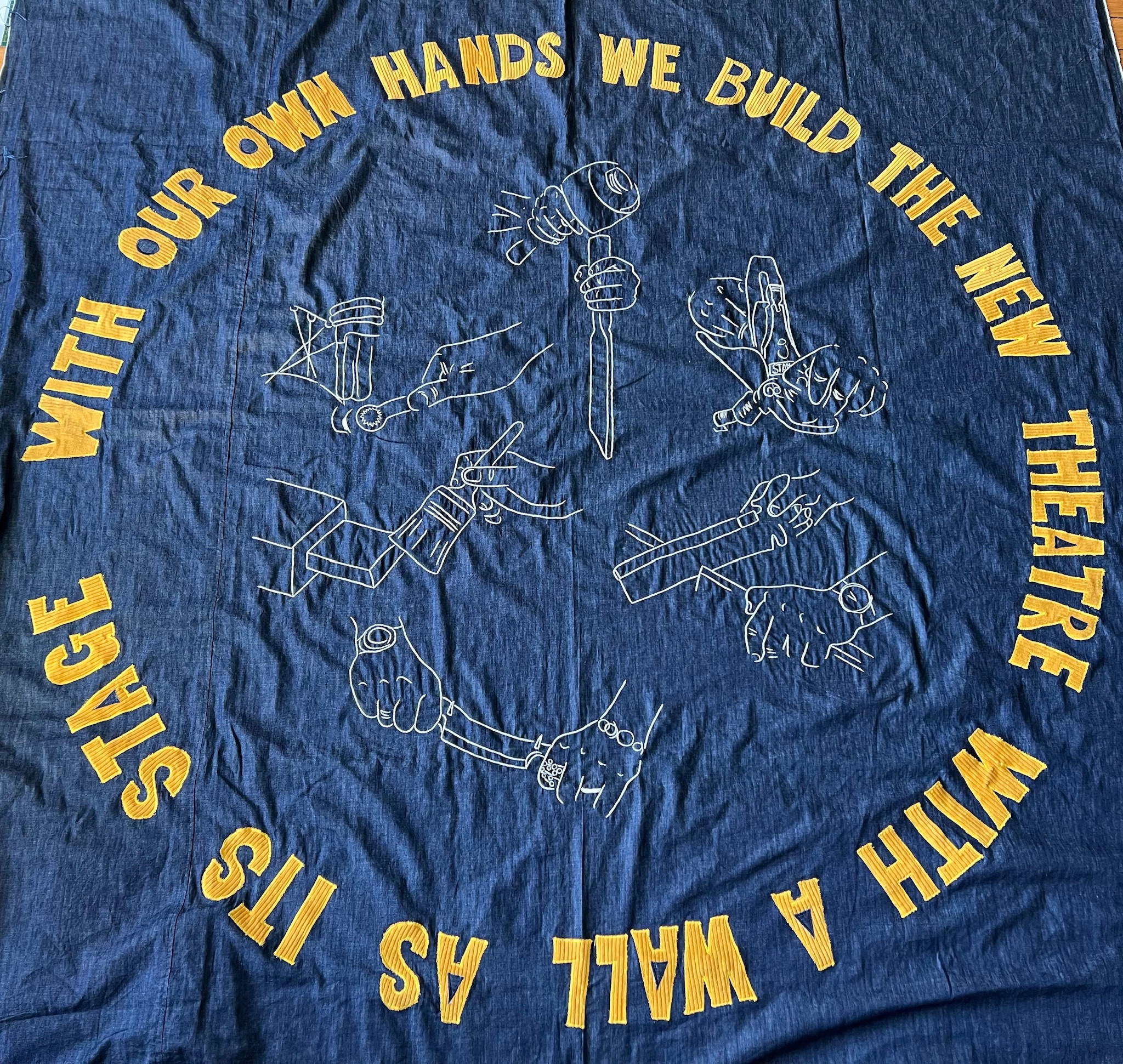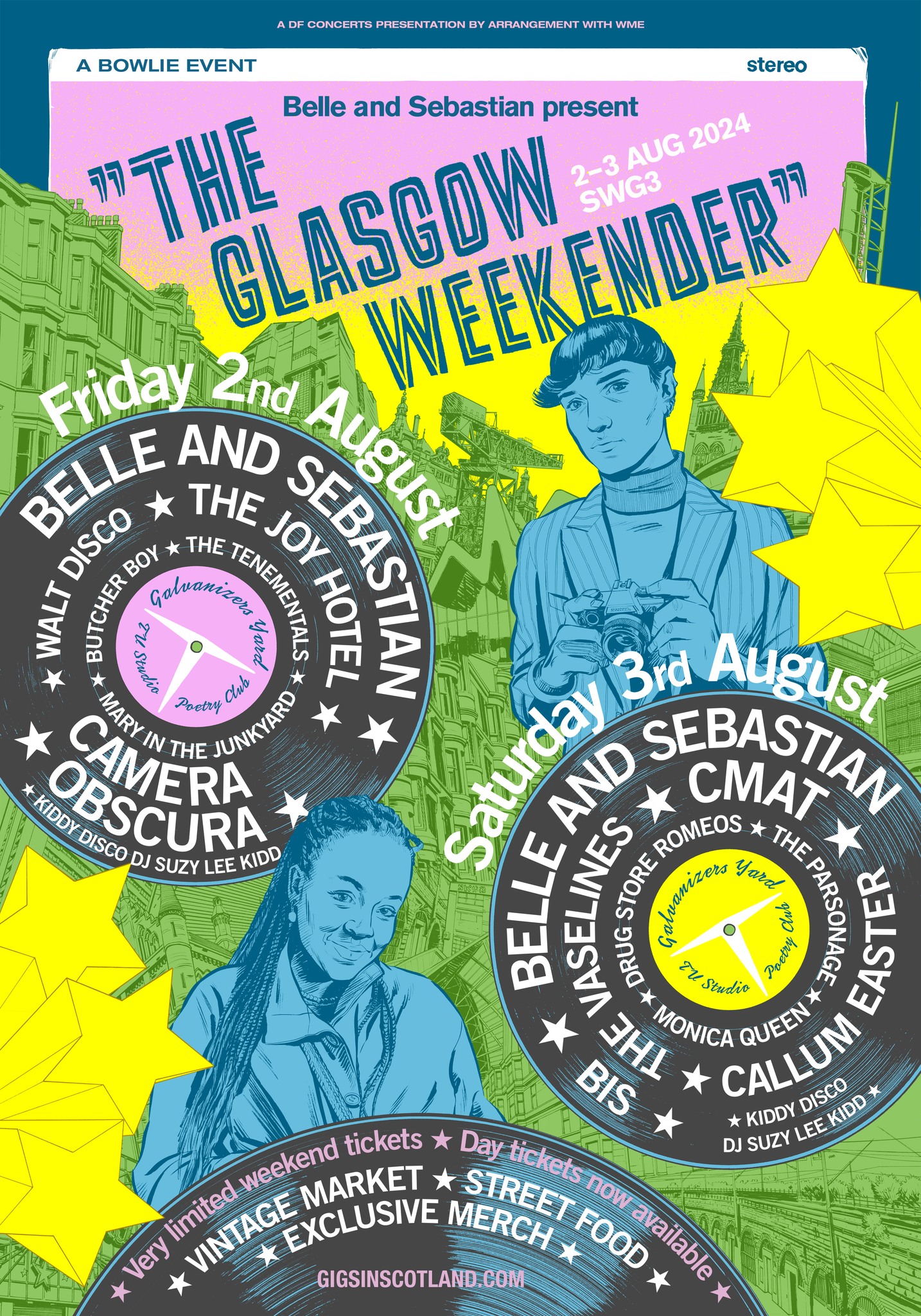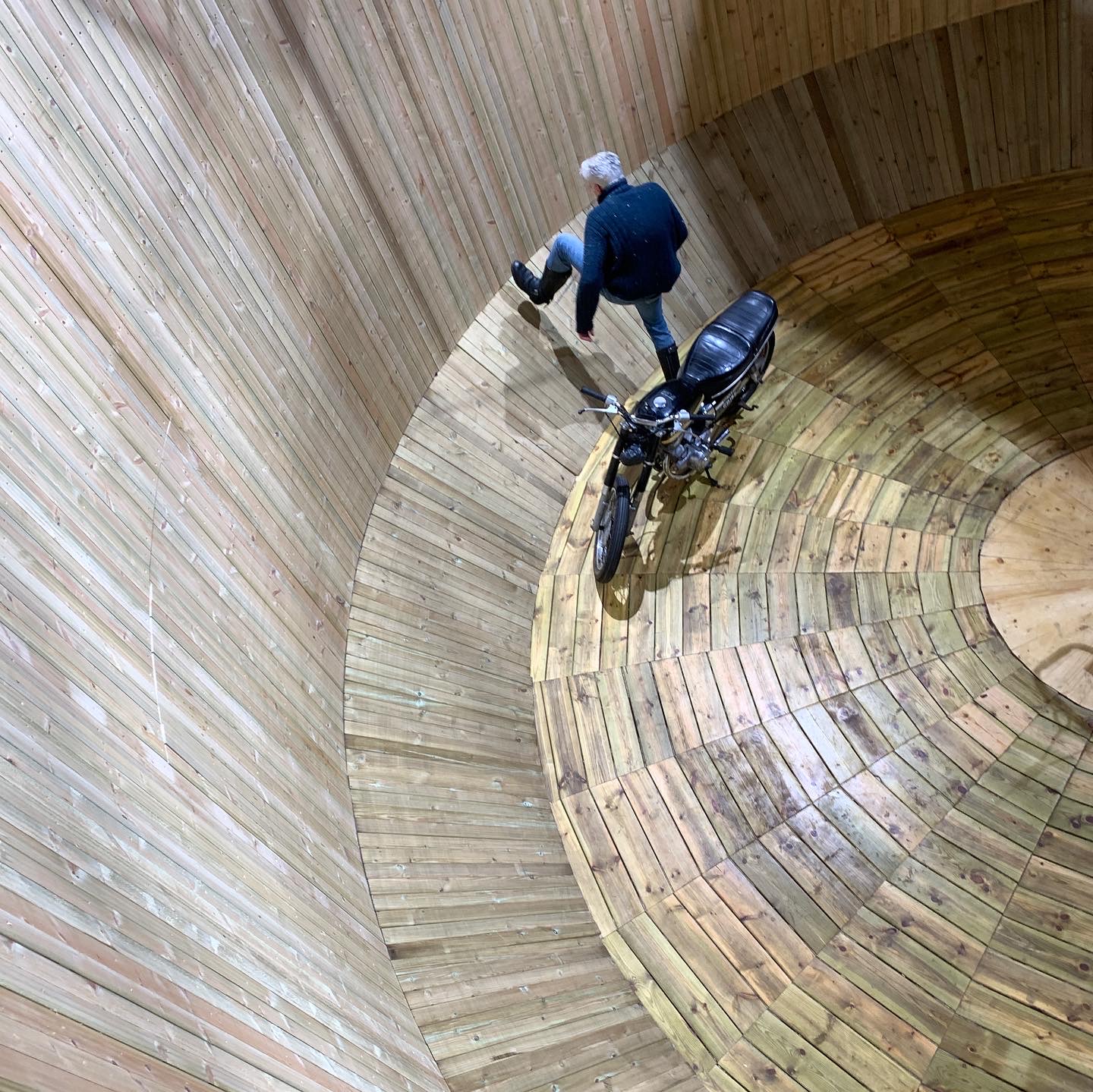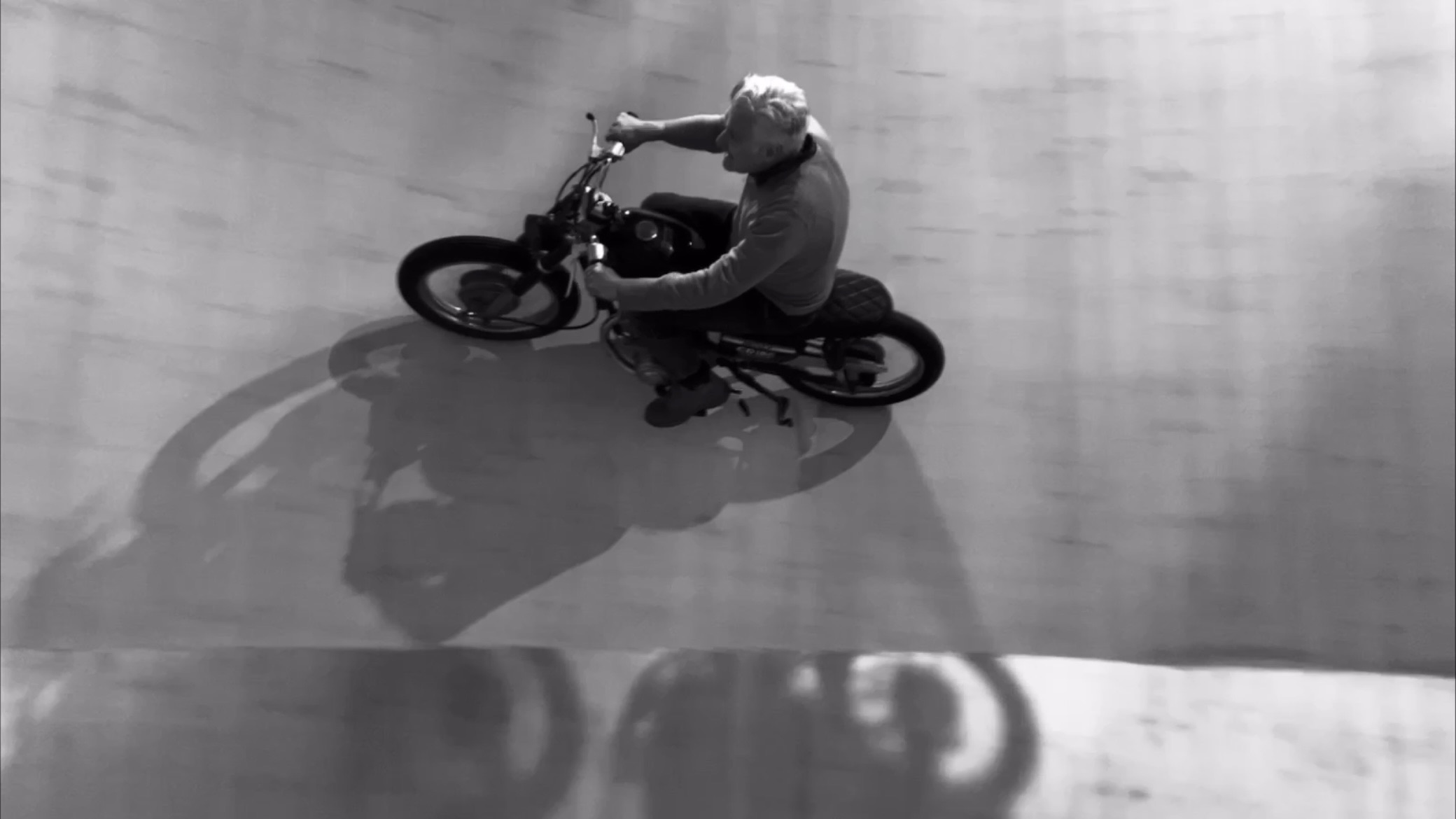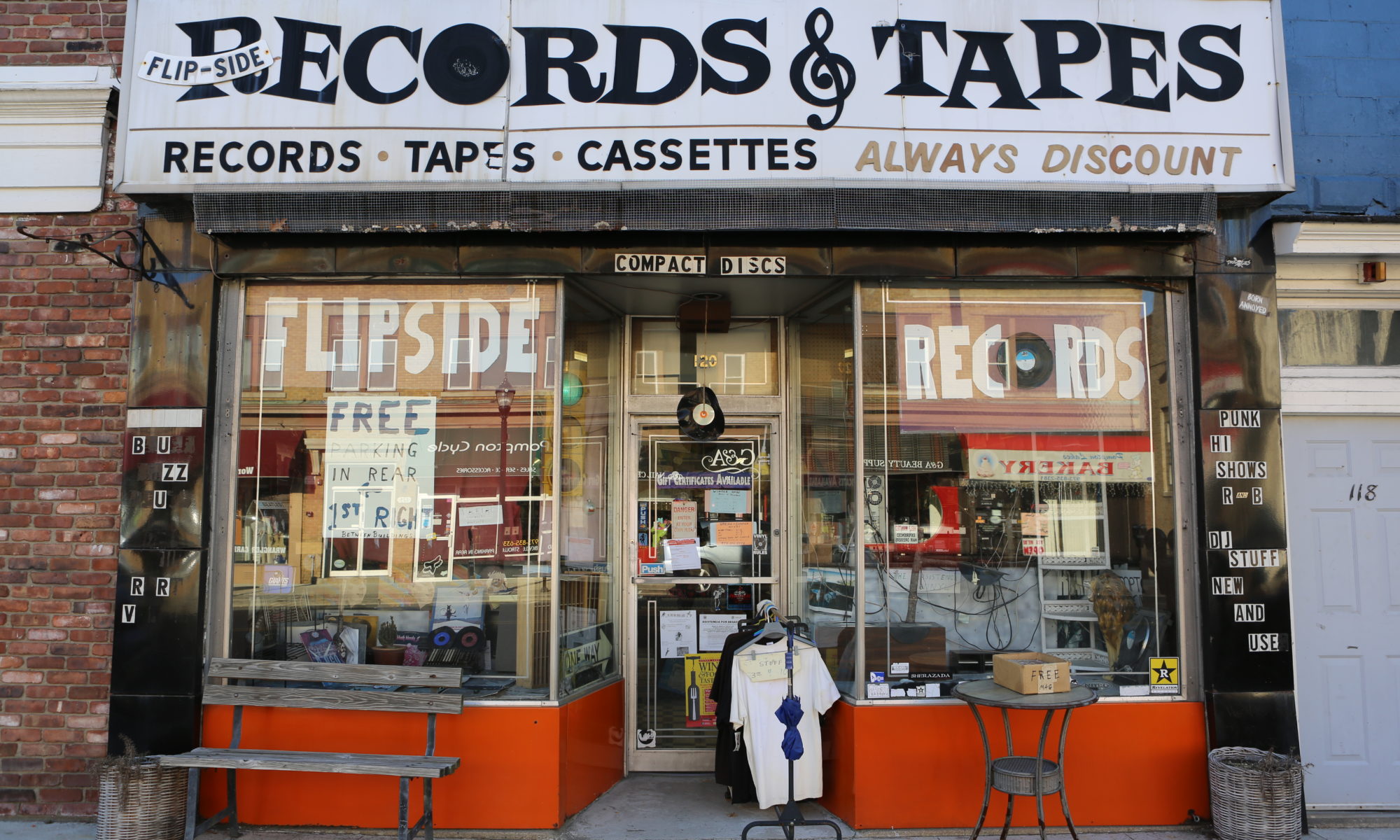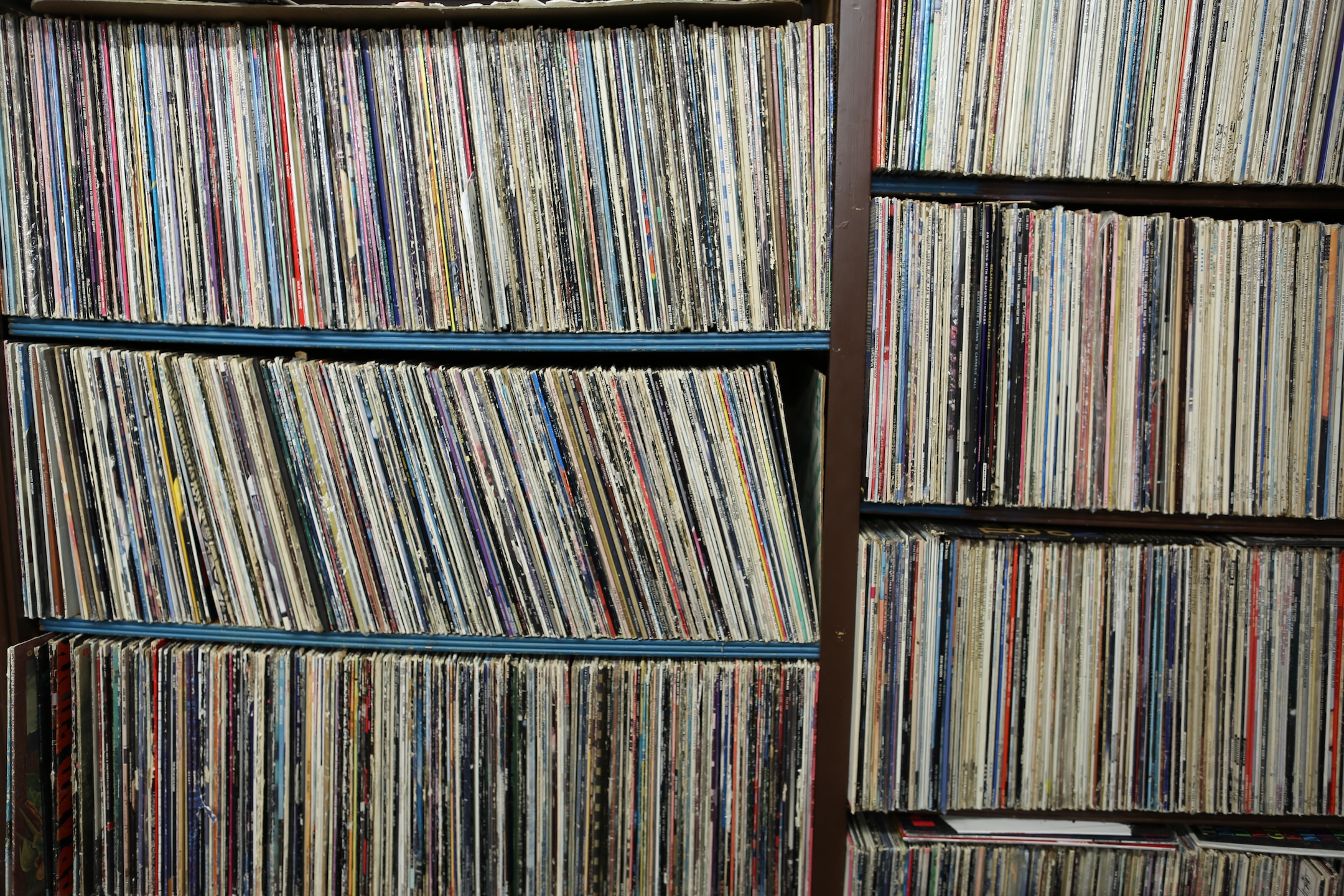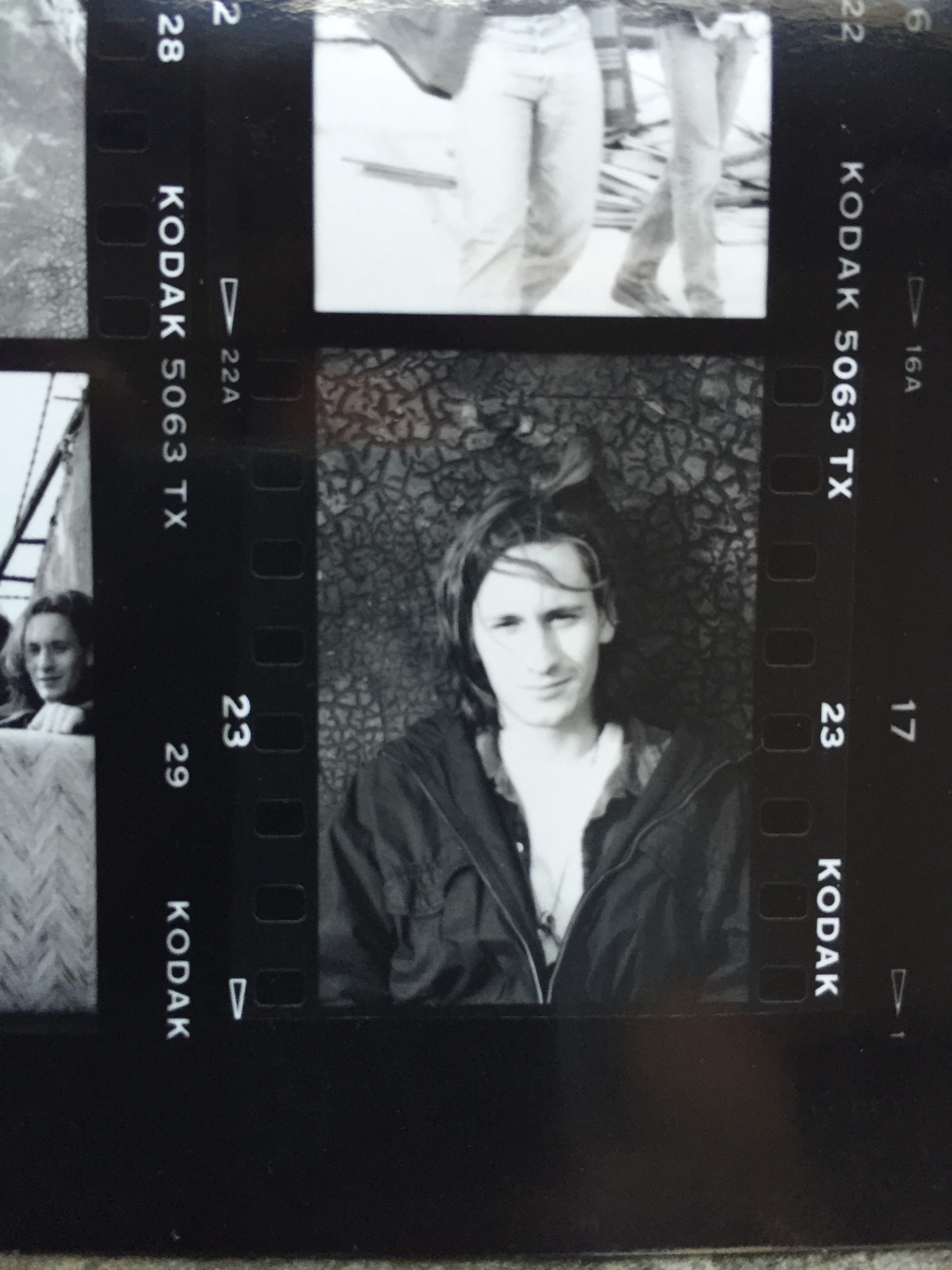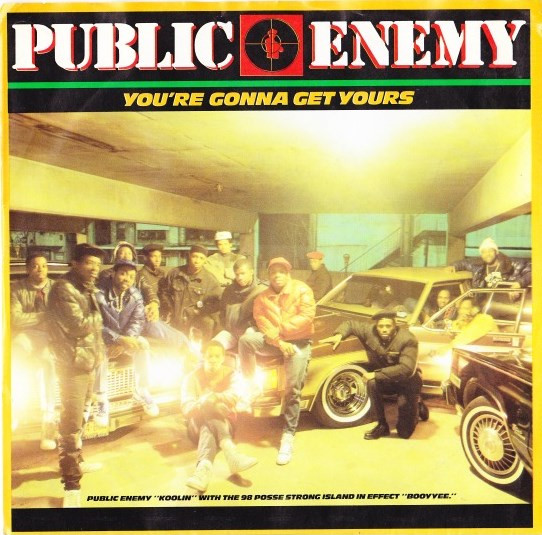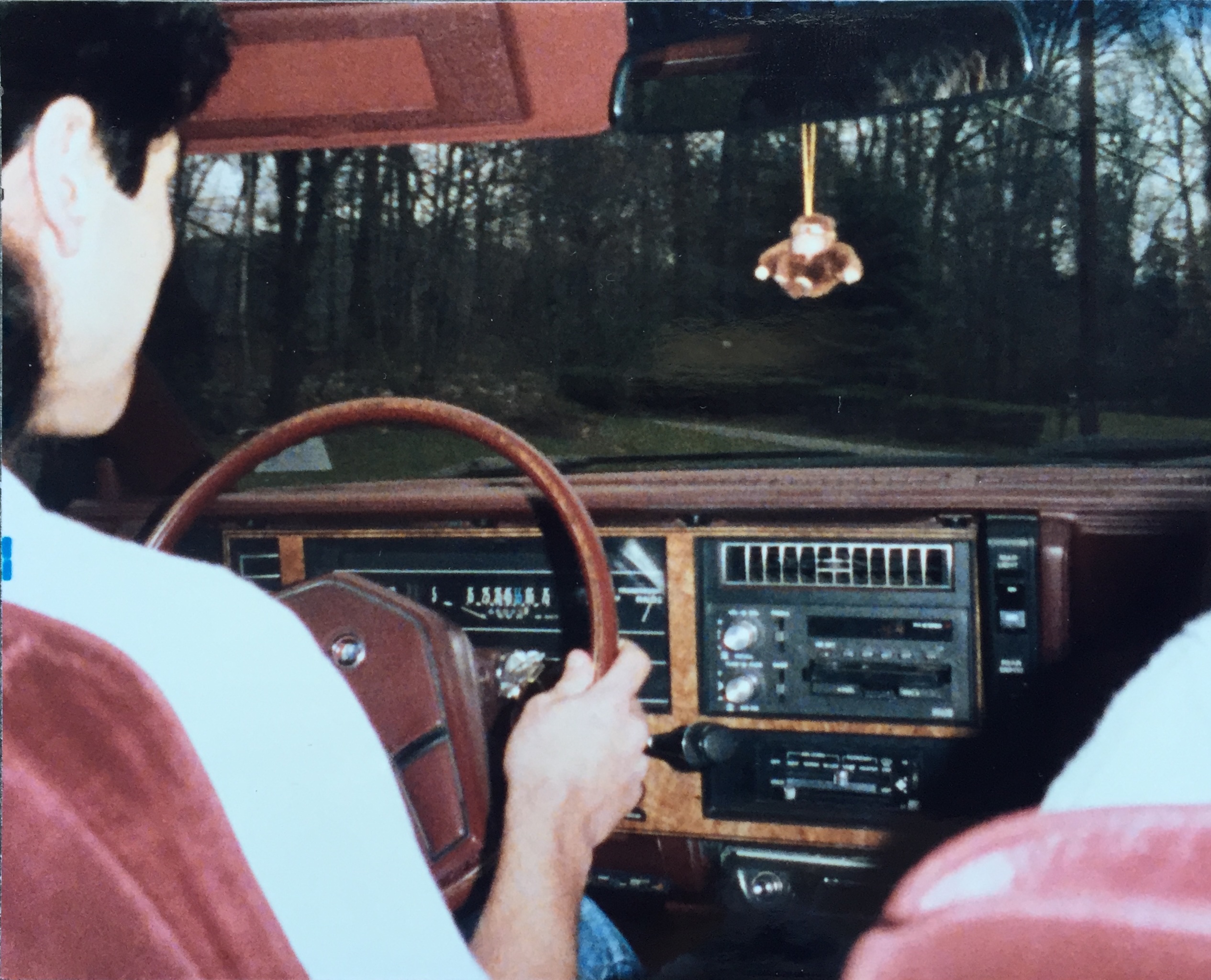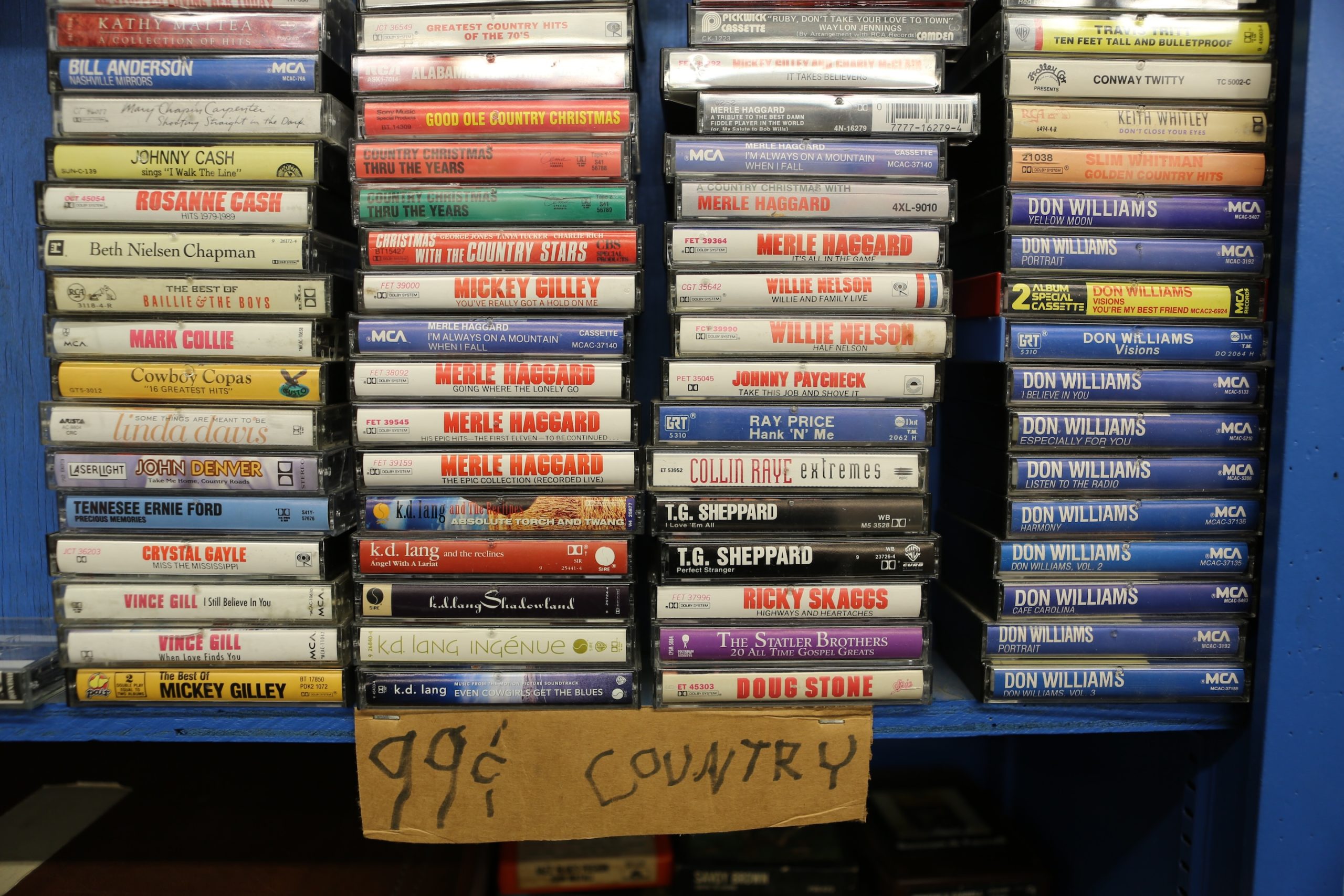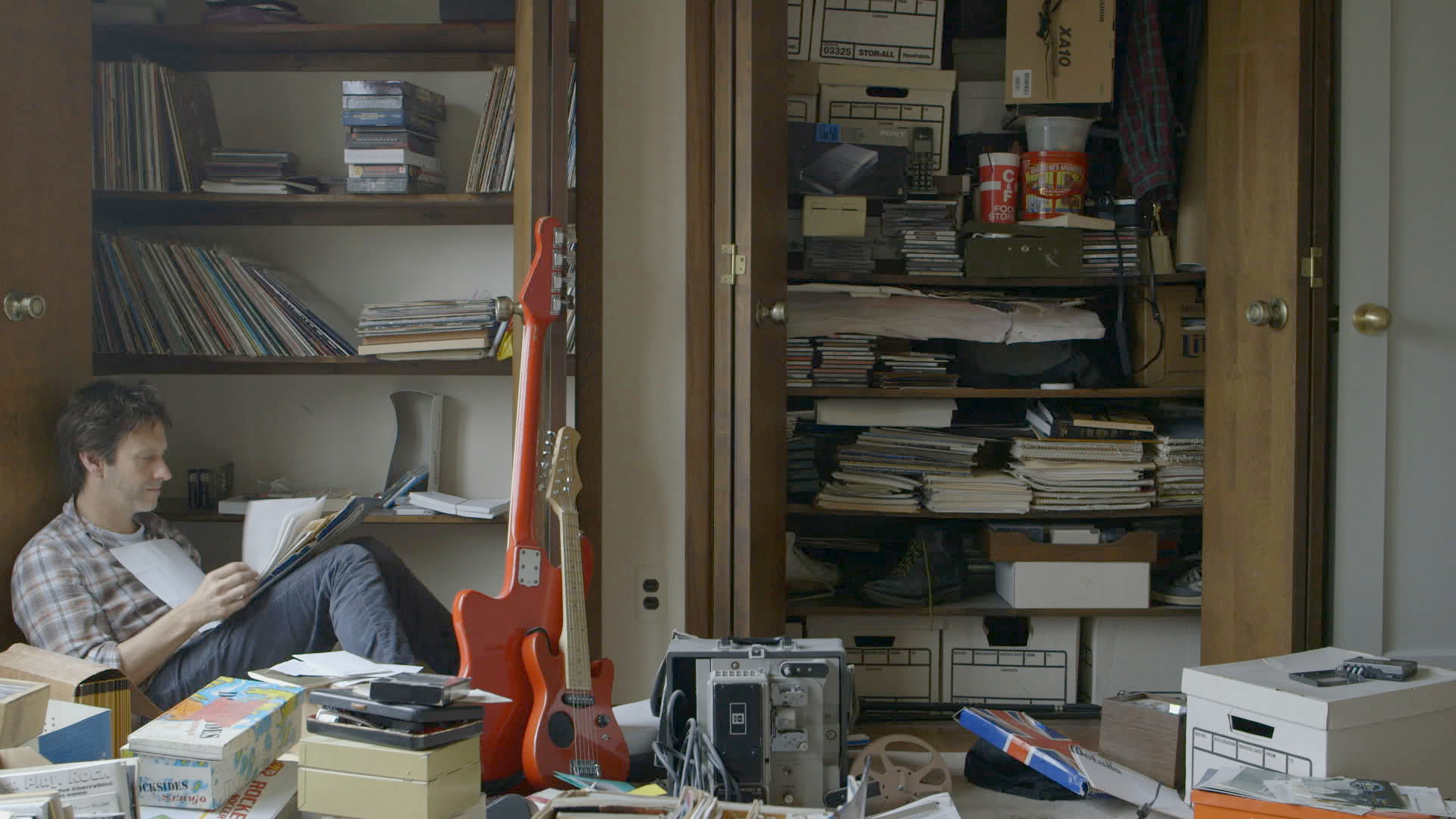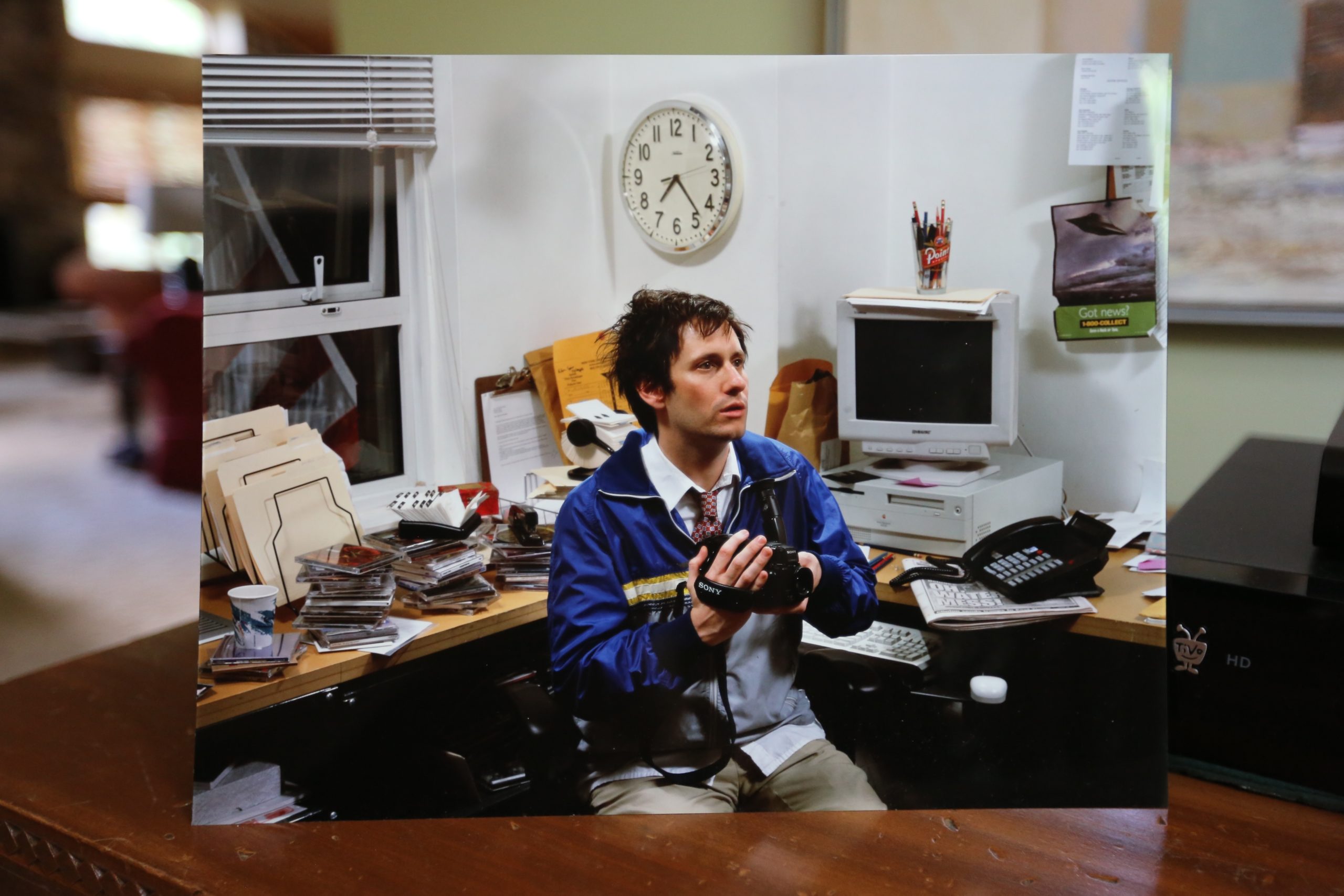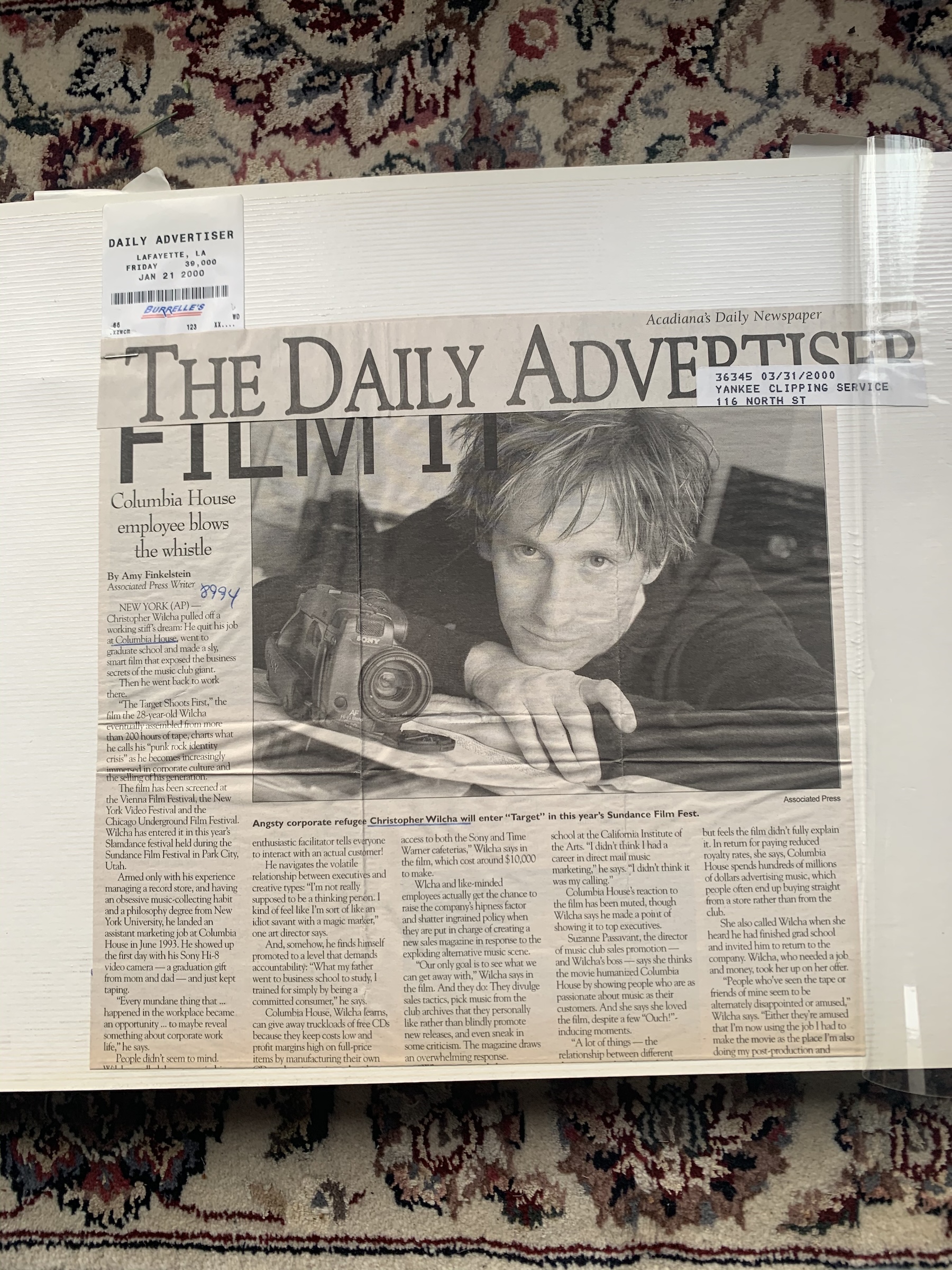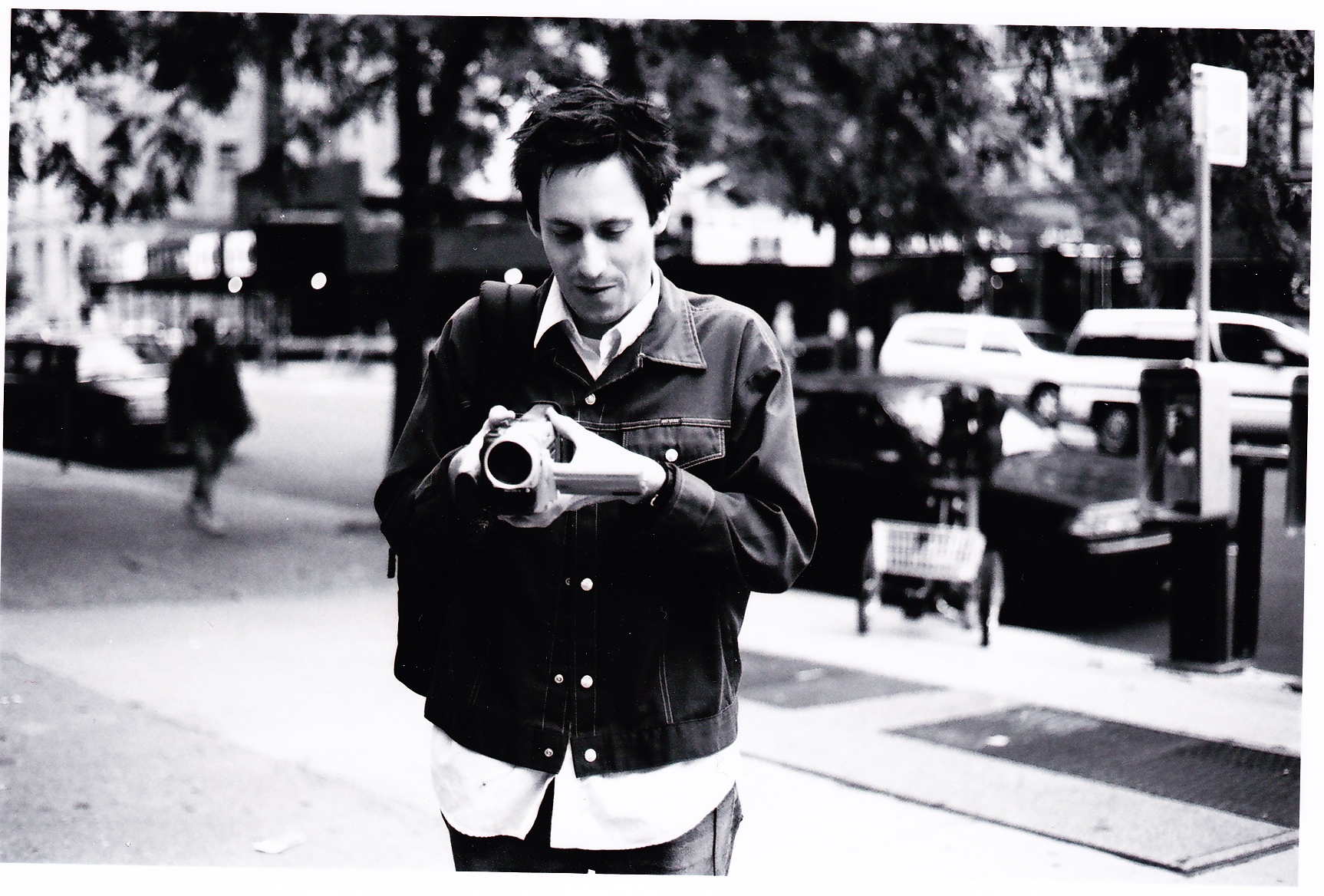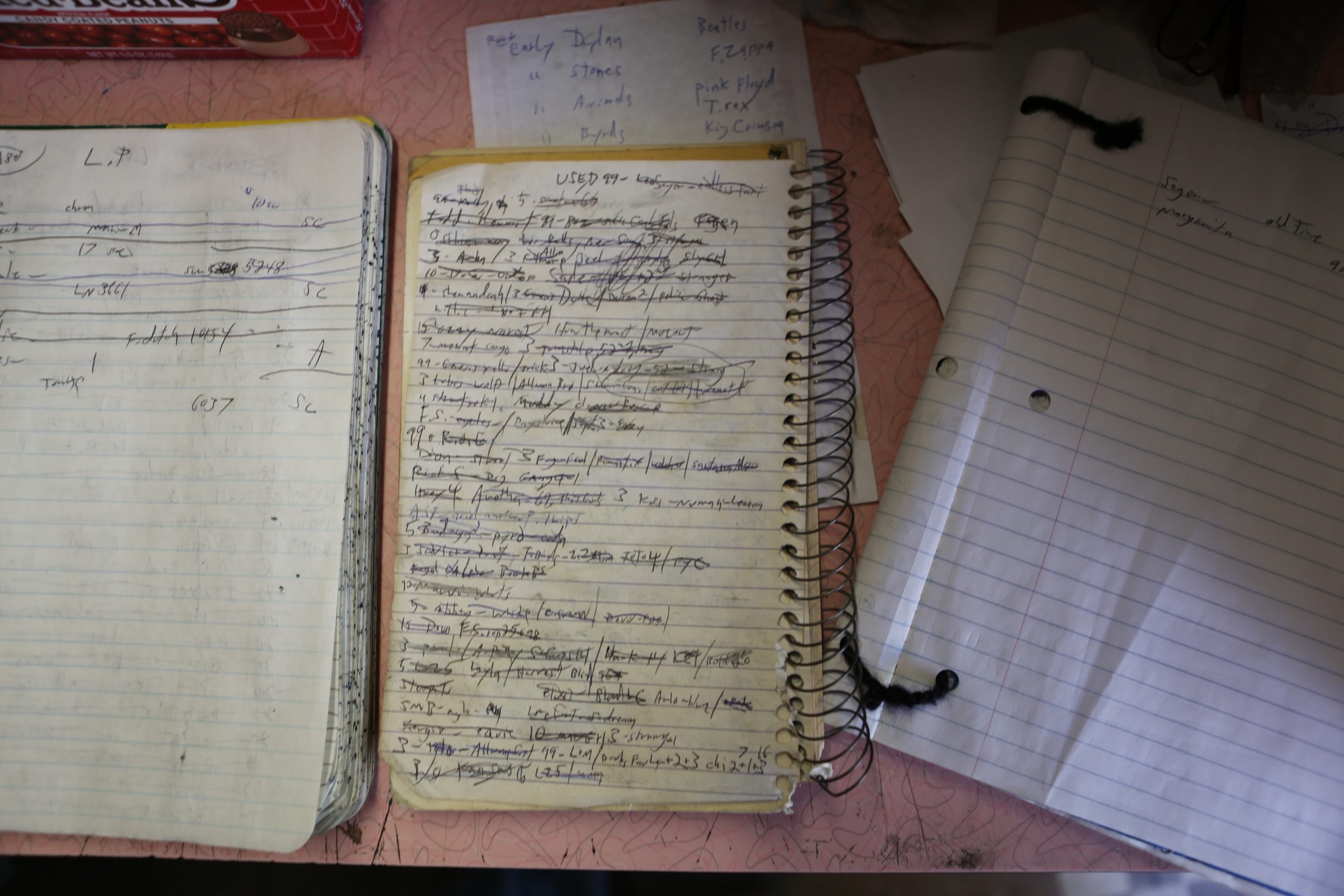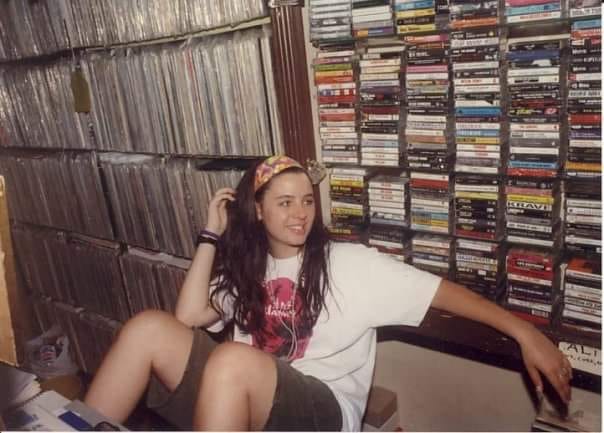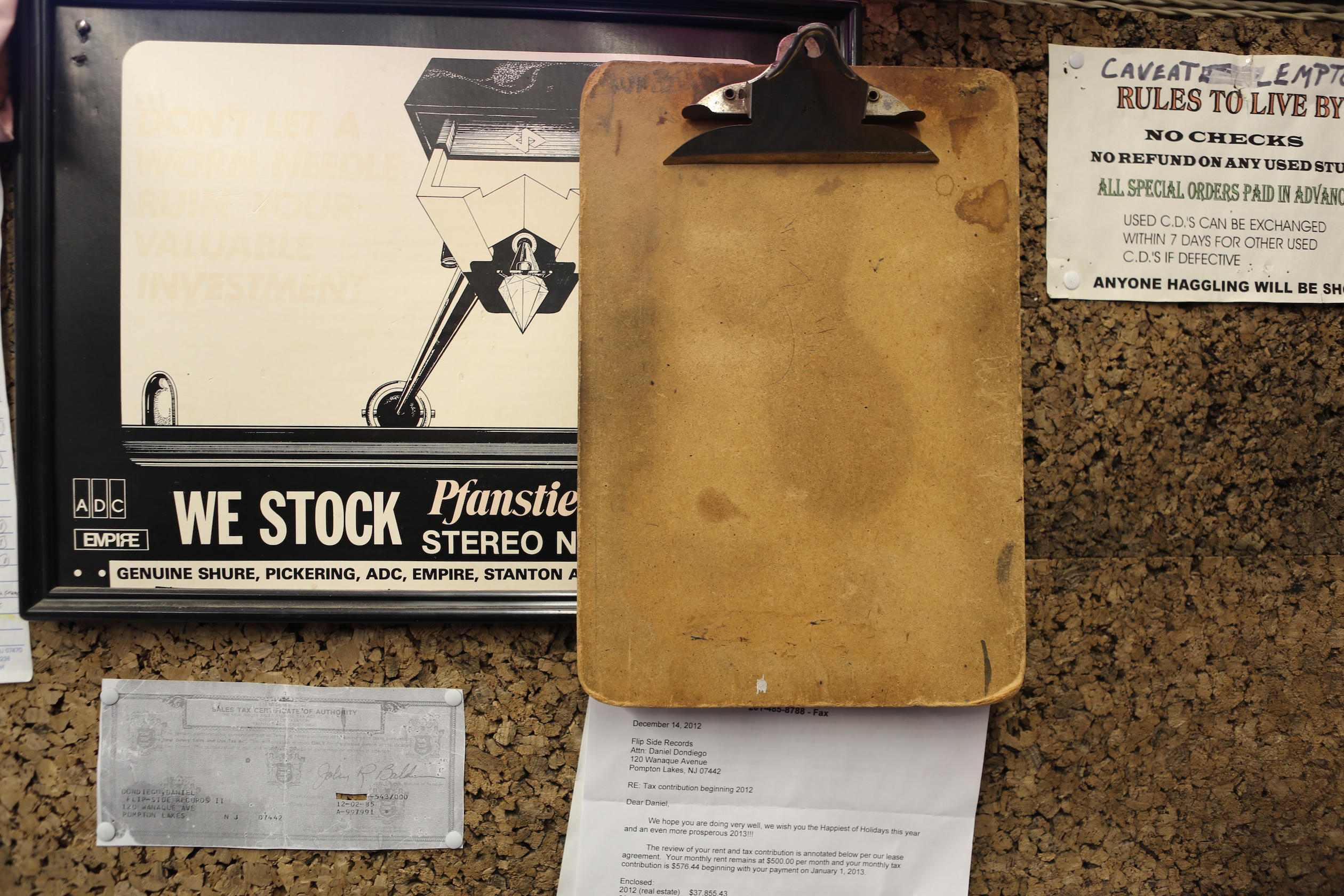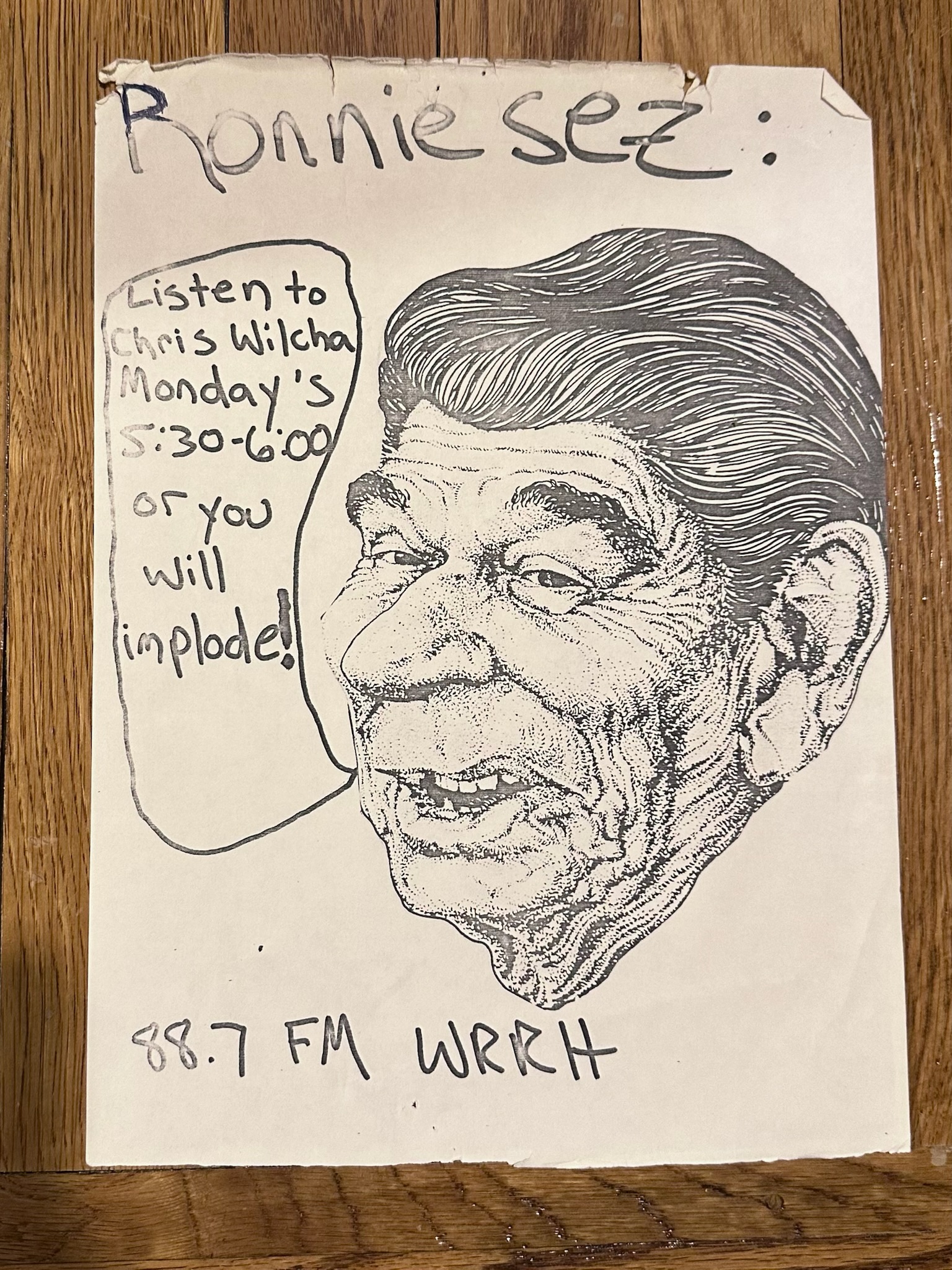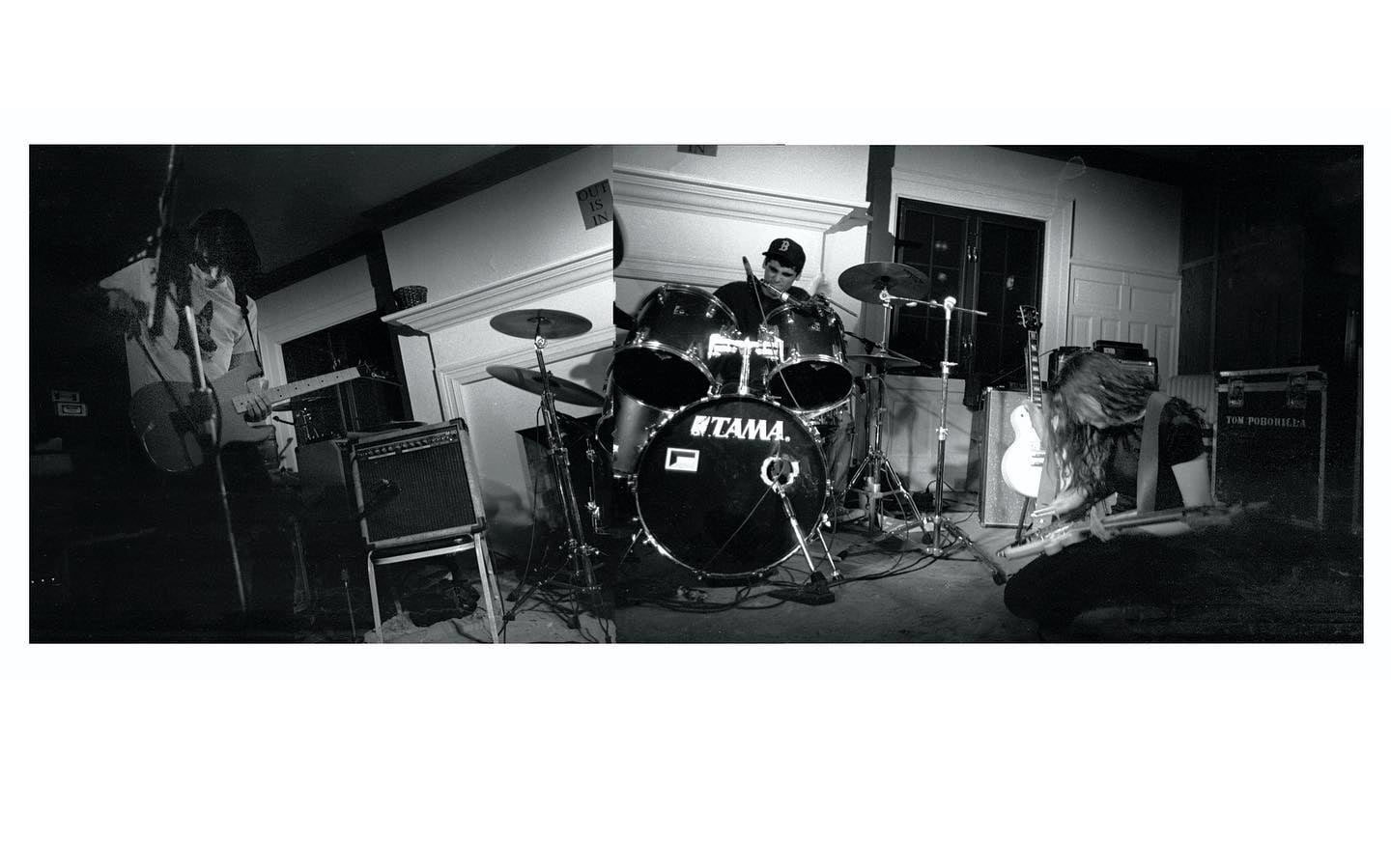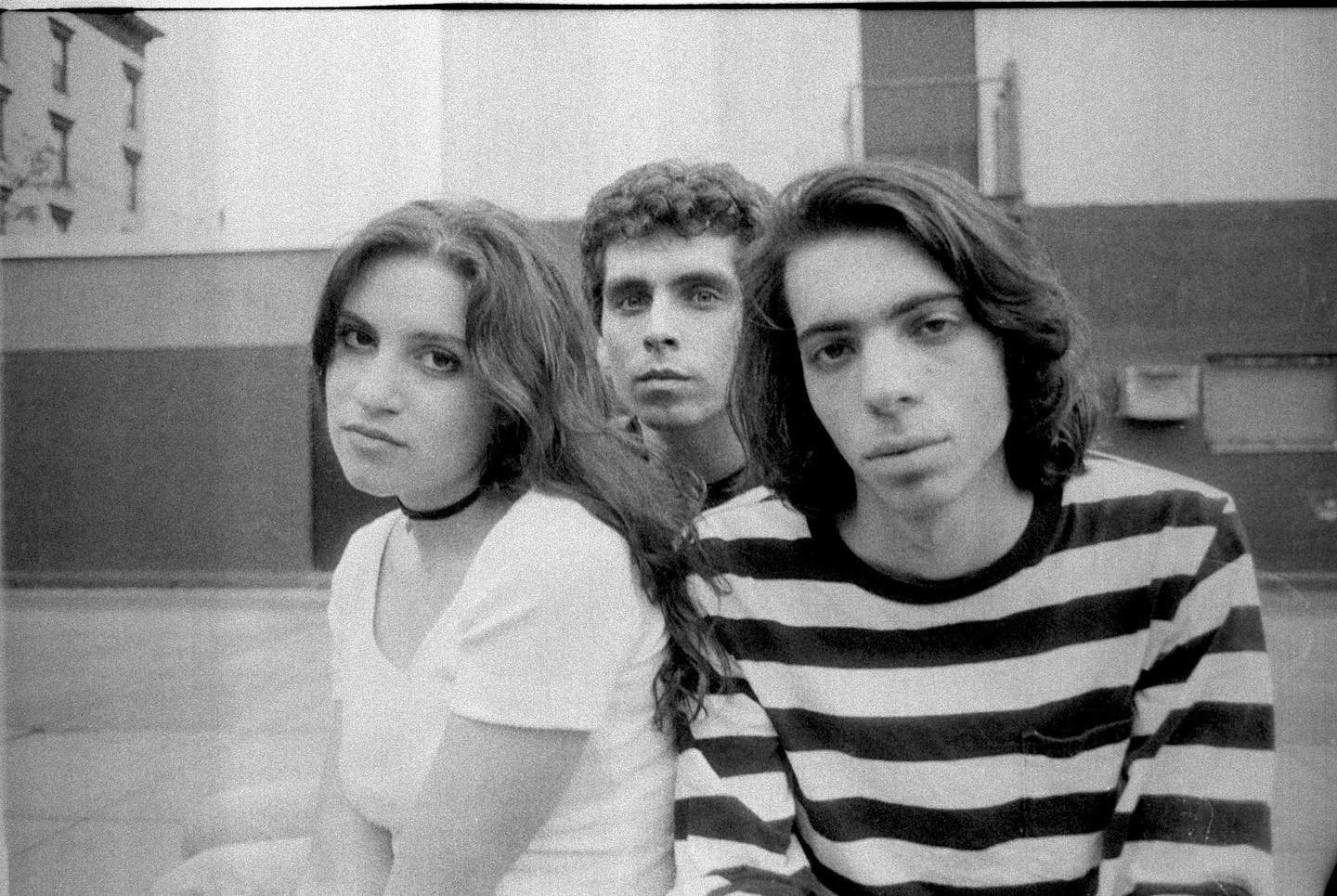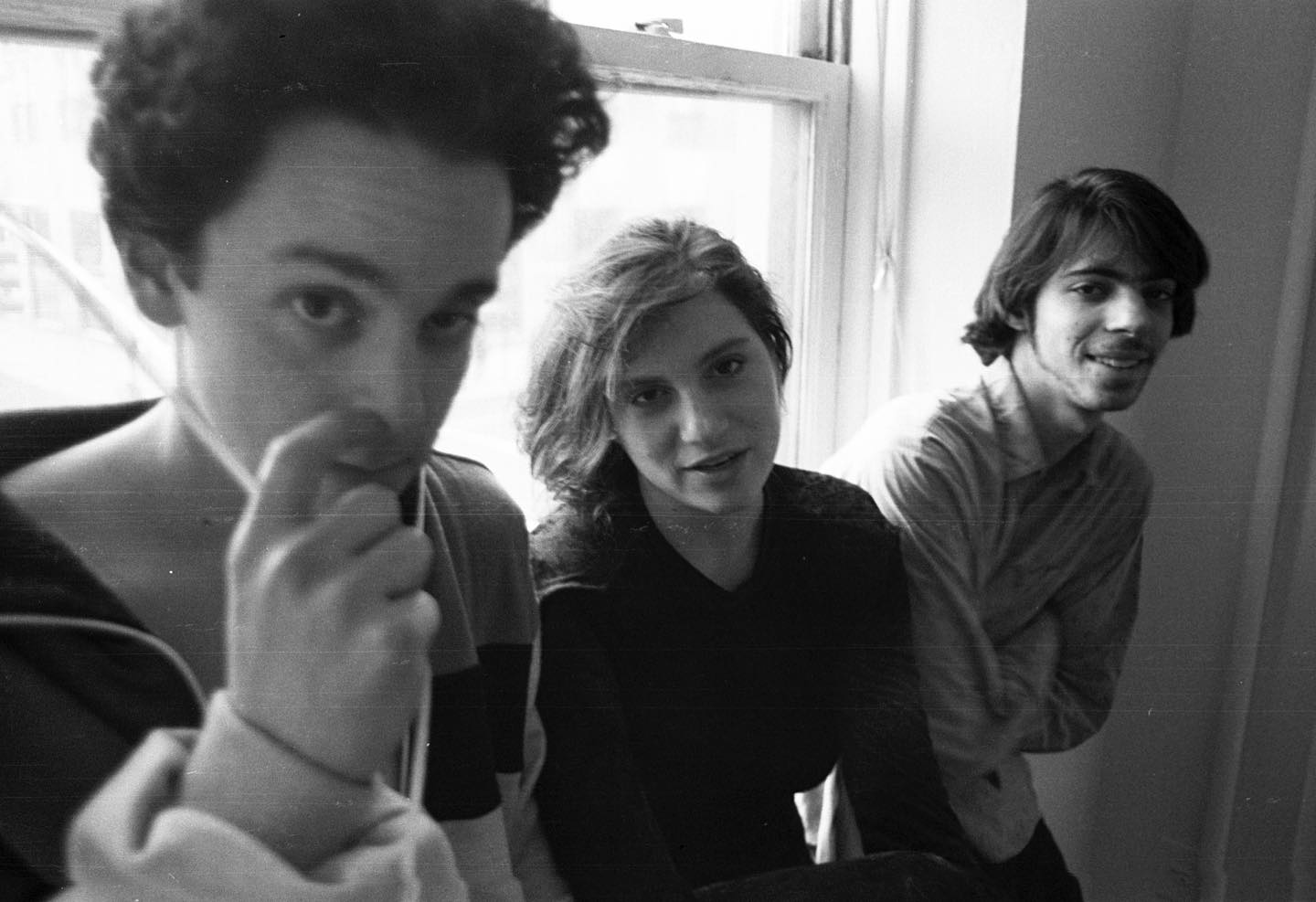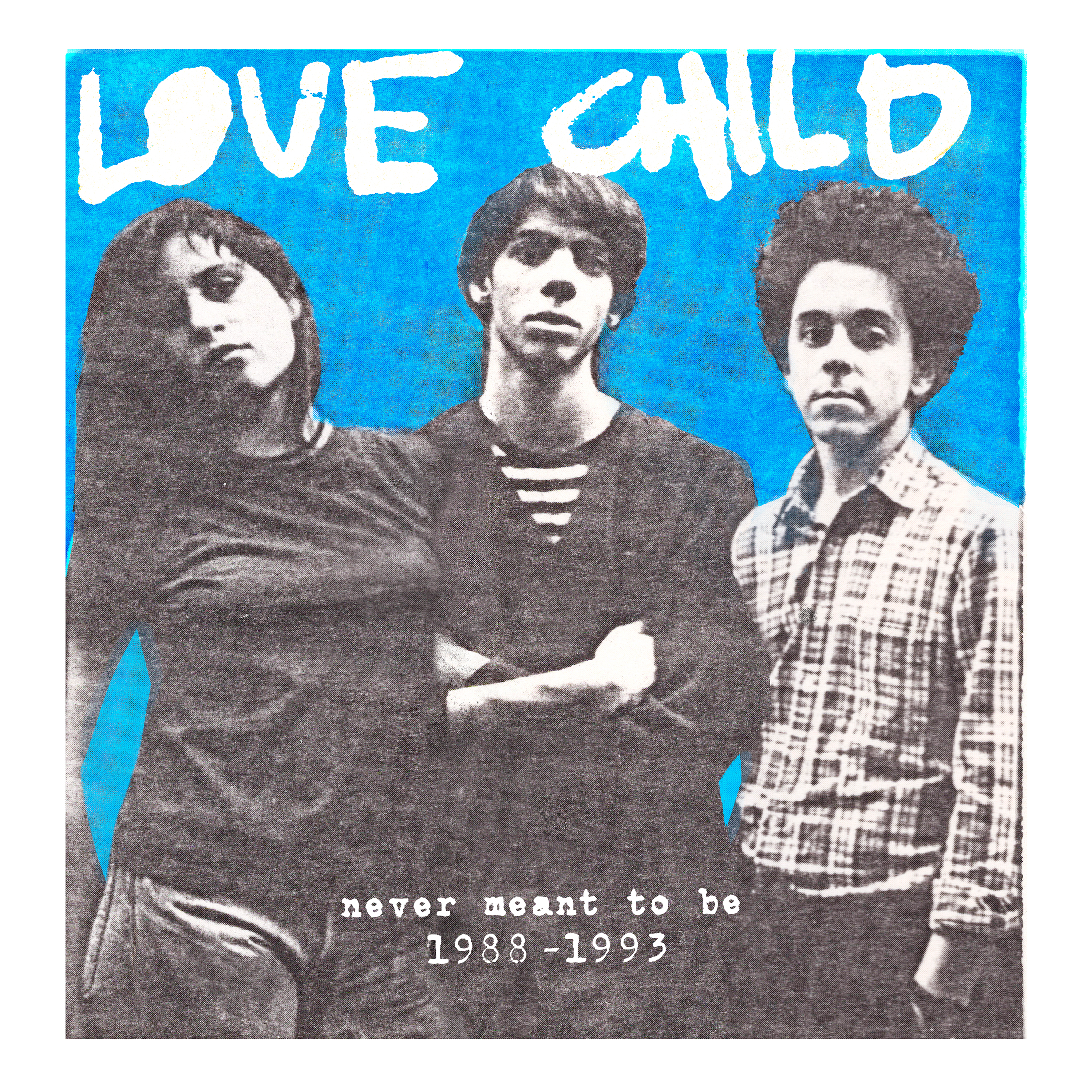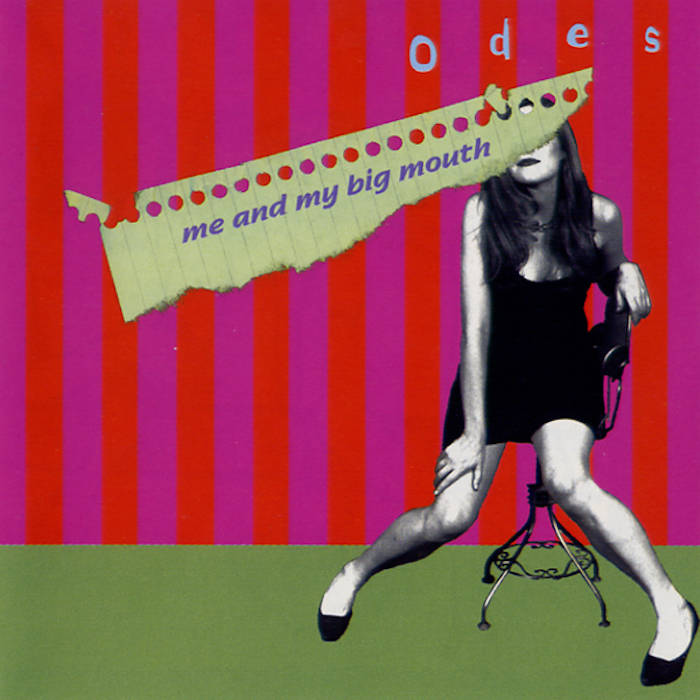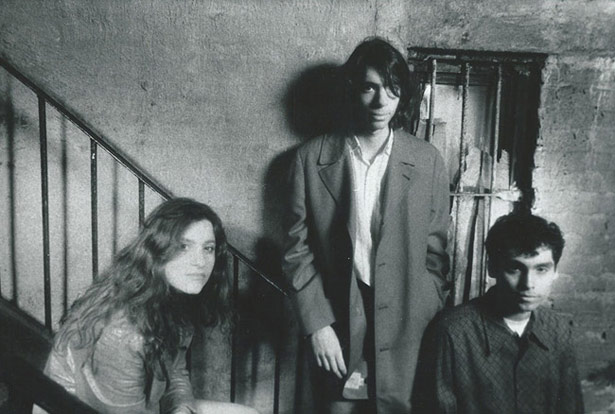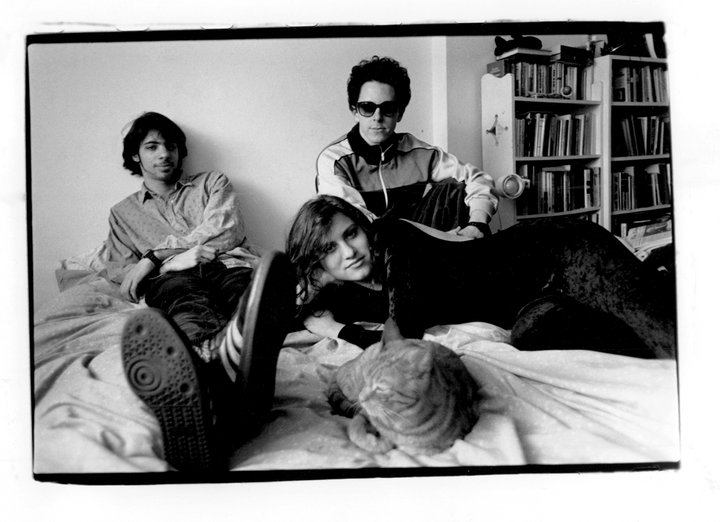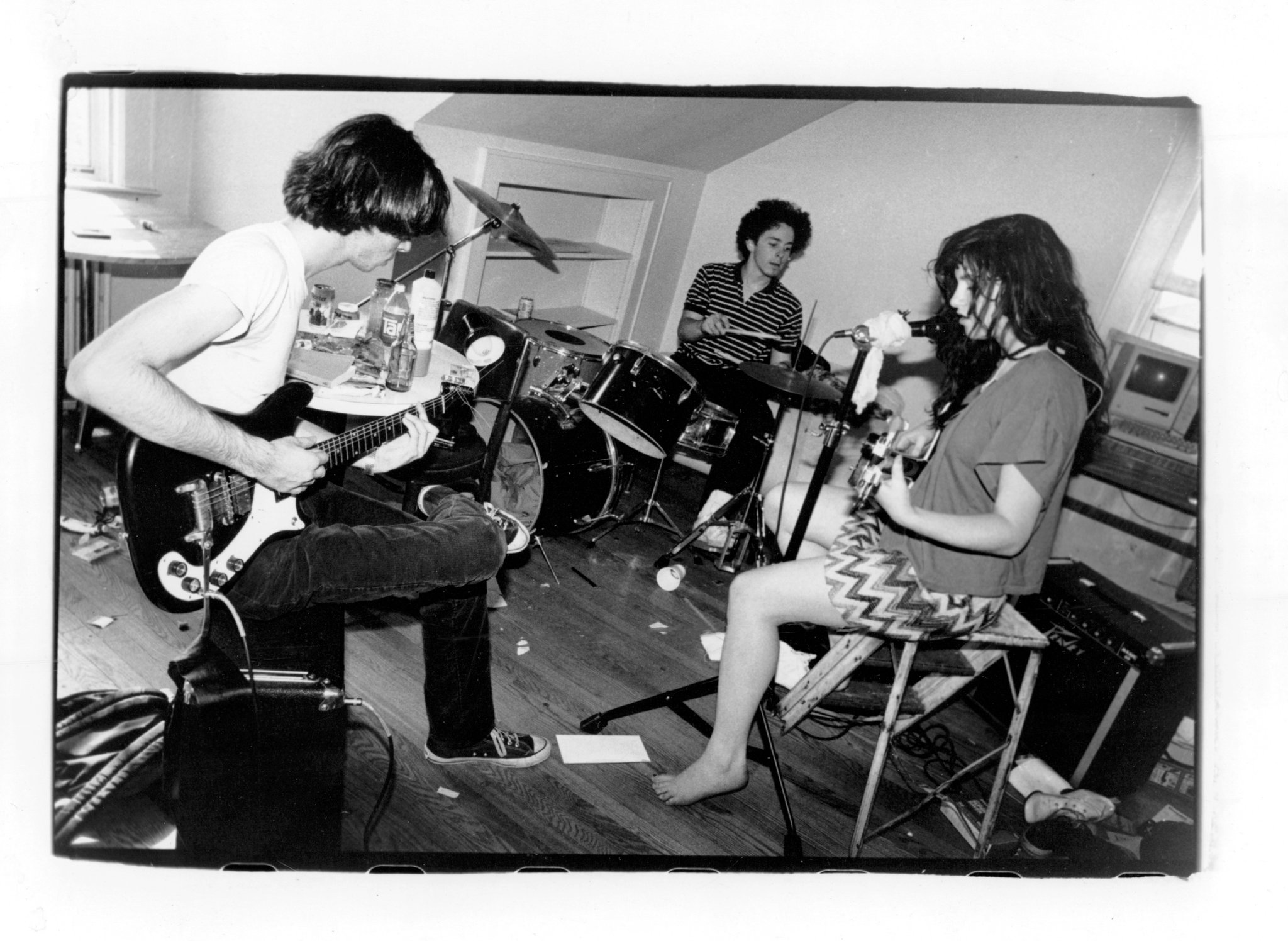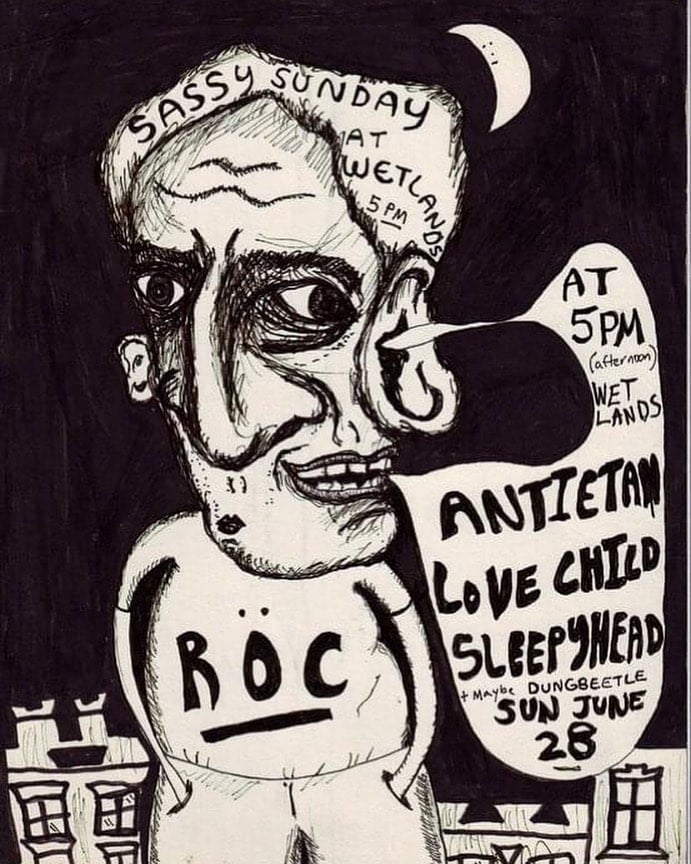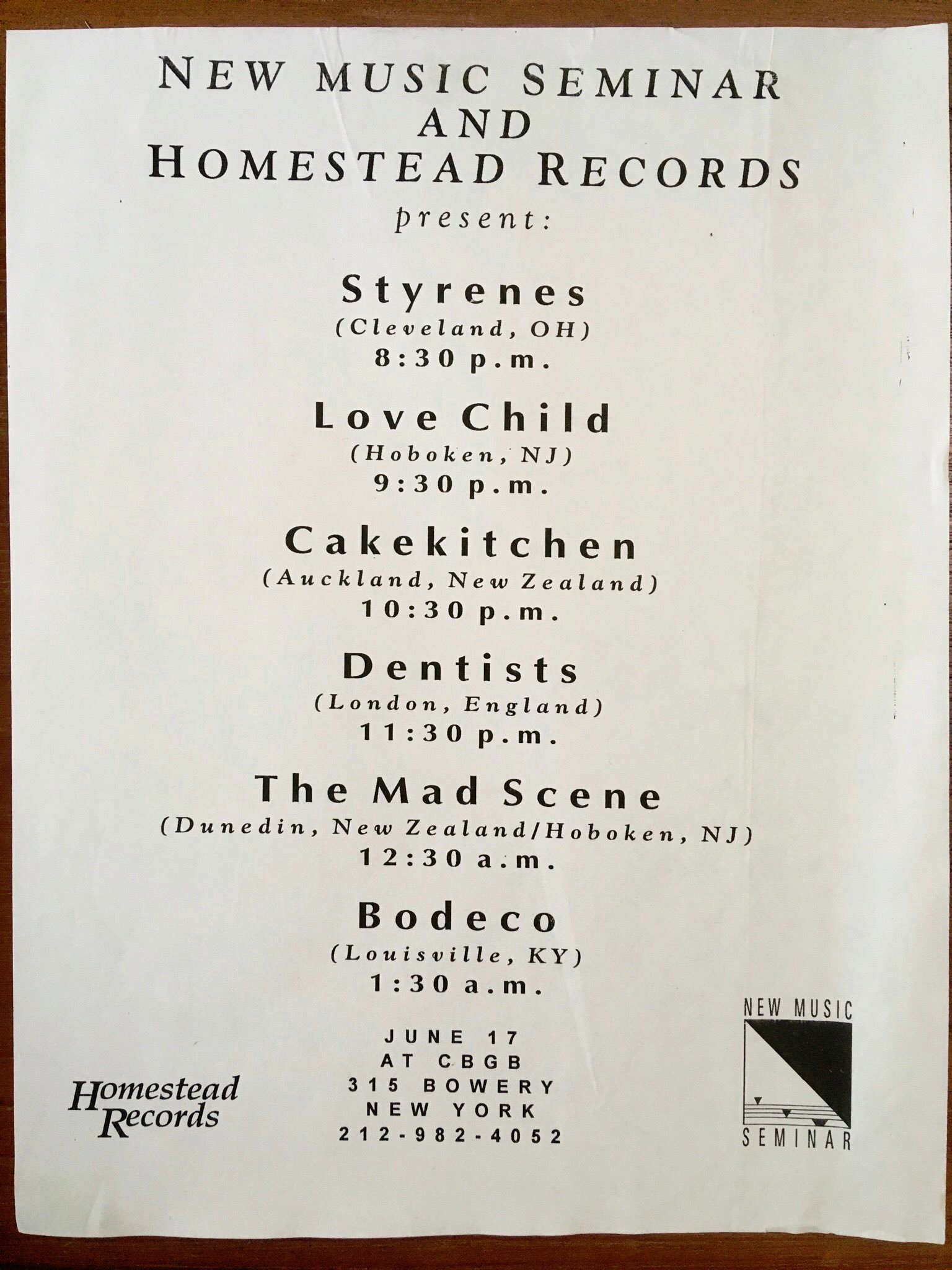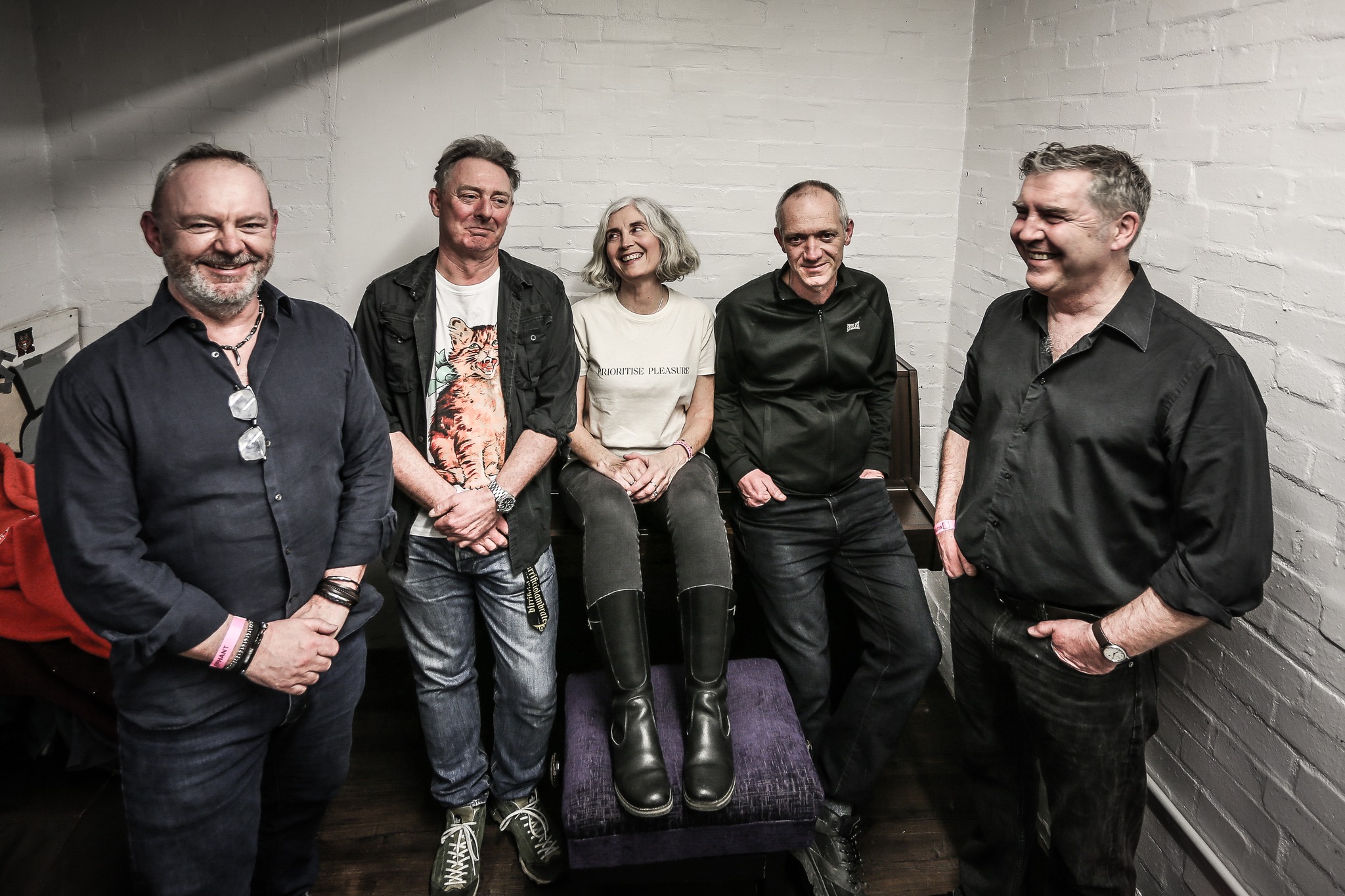
Wendy Pickles from the Popguns
There are not that many songs that make me stop working and start lipsyncing and playing air drums like a crazy person: “Bye Bye Baby” is such a song. Brighton’s Popguns were on our radar back when our zine started back in the early ’90s and the fact that they’ve never played a chickfactor party is a massive oversight. I’m pretty sure it was Mike Schulman who put a Popguns record in my hand at Vinyl Ink Records in Silver Spring, Maryland, around 1990! The band formed in 1988 and are still making very good music and playing shows. At long last we are thrilled to share this new interview with Popguns singer Wendy Pickles! Interview by big fans Gail O’Hara & Gaylord Fields
Listen to the Popguns on Bandcamp
Listen to the Popguns on Soundcloud
Listen to Wendy’s solo thing
Get records from Matinee in the U.S.
Follow the Popguns on Instagram
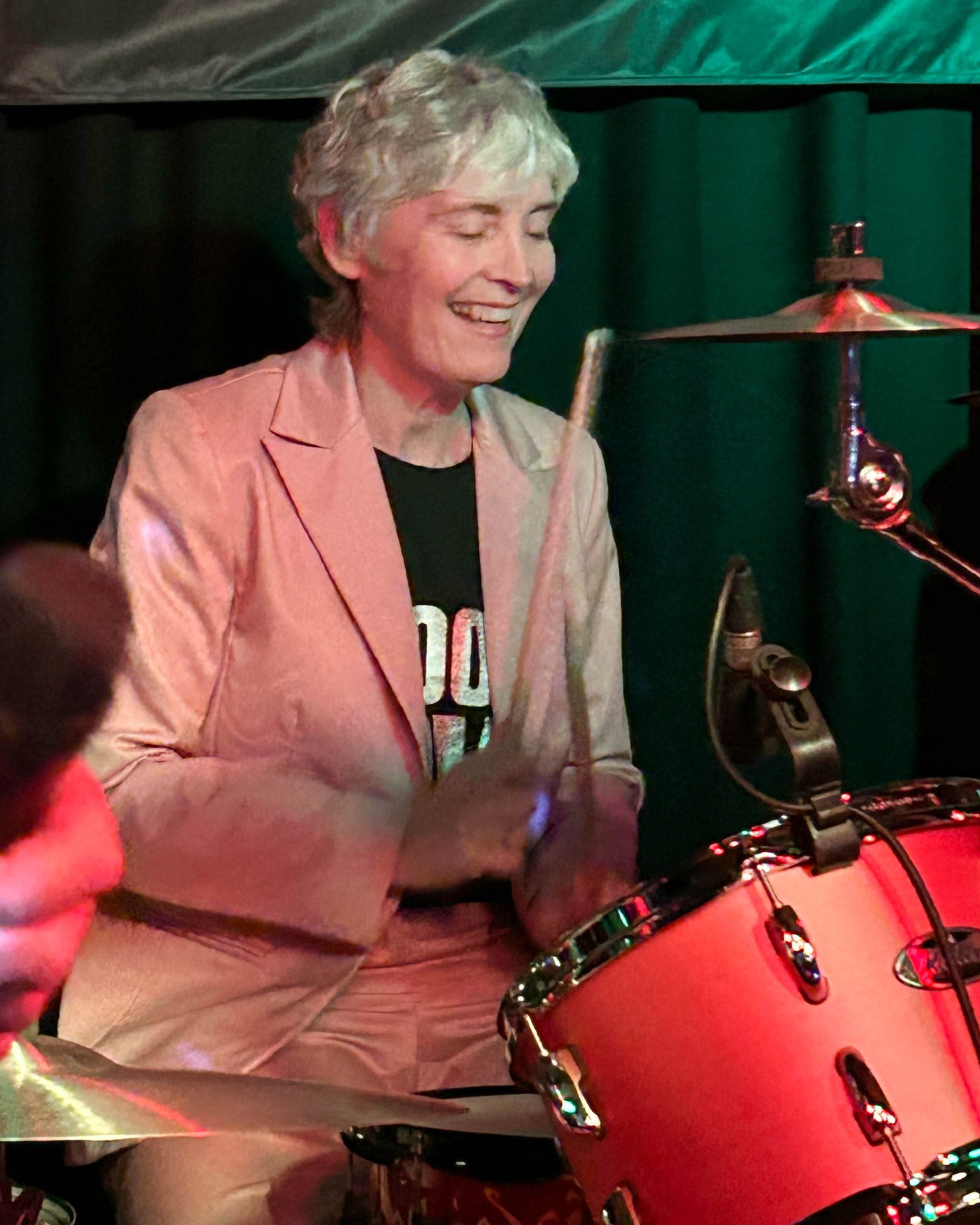
chickfactor: What are you up to today? Does the country feel different post-election? Did you watch the Euro final?
Wendy Pickles: Trying to stay cool today—hottest day of the year so far in the UK! Sadly, I have no ice cream in the freezer.
I haven’t noticed a particularly different feel post-election among people I talk to—it feels as though everyone has been slowly ground down by 14 years of Tory reign so that cynicism and distrust prevail. I hope Labour can come good on some of their promises, but it’s all about the power and the money, the money and the power
I did watch the Euros final, at home with family and a tonne of snacks. I was on the Amaretto, which sweetened the blow a little.
What were you like as a child? A teen?
I was incredibly shy and self-conscious, studious, law-abiding. I spent a lot of time reading and listening to/playing music. I reinvented myself in the summer between school and sixth form, ditched my glasses in favour of contact lenses and moved from incredibly square and uncool to incredibly square and a little less uncool.
What kind of rituals does the band have (on tour, in the studio, in general)?
We have an unwritten rule that whenever we make a stop in the van everyone has to go and come back one by one, just to be as inefficient as possible with our time. Greg & I invented “soundcheckercise” – we do squats/lunges/jumps to the beat while Ken is whacking his drums during the soundcheck. We like to have a sing on the way home from a gig – “Breaking Up Is Hard To Do” is one of our faves, along with “Say Hello, Wave Goodbye”. We play studio bingo – phrases include “less is more” and “that was perfect … let’s just try one more”. We have plenty of sayings and in-jokes gathered throughout the years – some wouldn’t stand the woke test and many, naturally, are taken from This Is Spinal Tap. Simon & I watched it just the other week and it really is the funniest film ever made.
Are you from a musical family?
No trained musicians, but plenty of singing and a little guitar playing on my mum’s side of the family. They liked to sing old London music hall songs at family gatherings – “On Mother Kelly’s Doorstep”, “My Baby Has Gone Down the Plughole”, that kind of thing. Music was on all the time when I was growing up—either on the radio (always Radio 1) or on the turntable (mostly Elton John!).
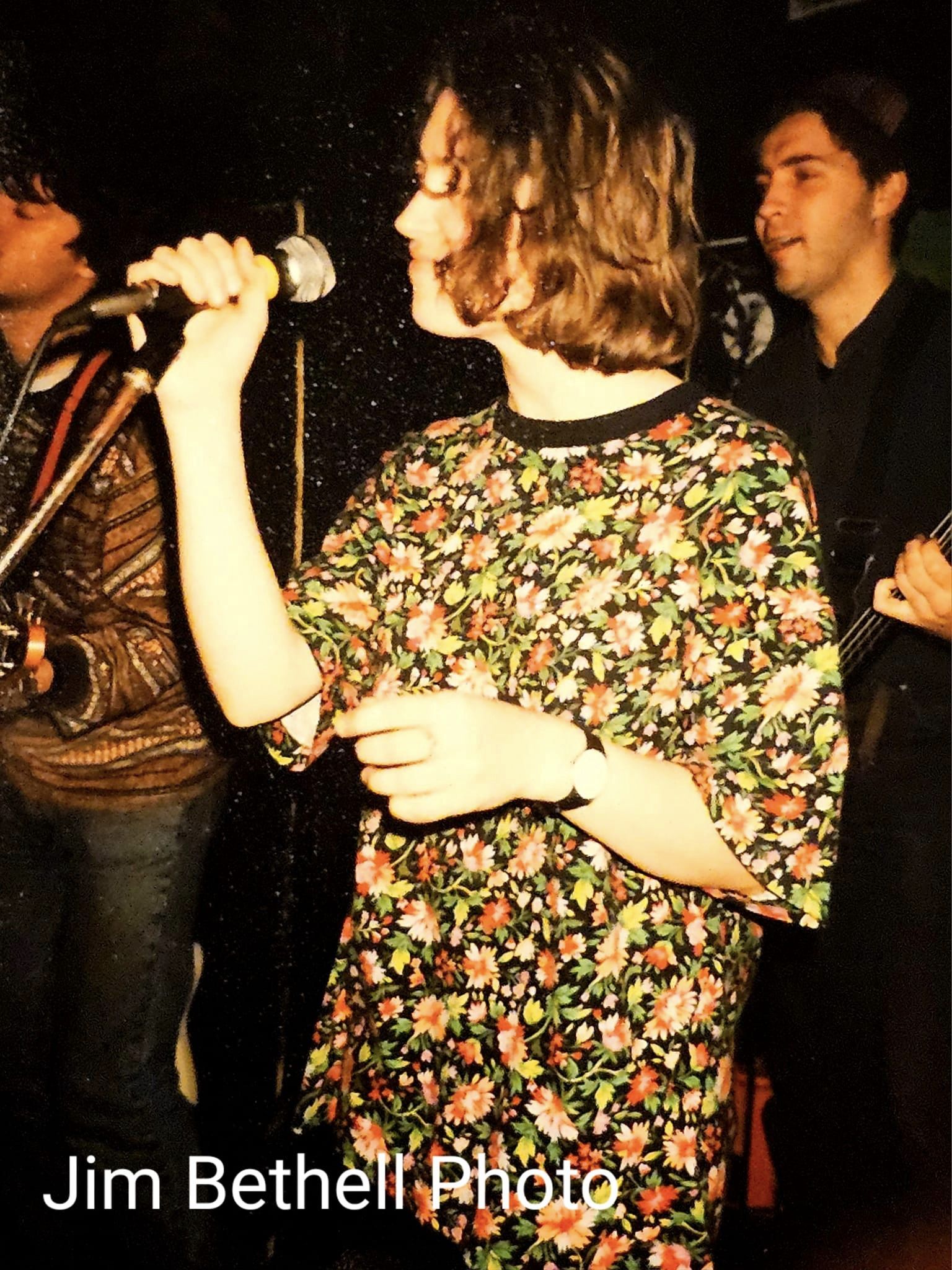
Did it seem like the Popguns got their due back in the day?
I’d say no, because I think if more people had had a chance to hear our music they would’ve liked it. Is that too obvious a thing to say? We fell into a bit of a guitar-based music gap between C86 and Britpop—baggy and rave were the in thing, and we were neither! The songs are strong, even if the production wasn’t always up to scratch
Was the band treated well in the press? What was the weirdest thing someone wrote about you?
Some people liked us, some didn’t. I was just looking through some old reviews and many of them were quite flattering (eg “Come in Debbie Harry, your time is up” in Sounds 1991 – pretty good, eh?). At least we GOT reviewed and were given a few inches of interview space. I think the weirdest was Robert Yates in the Melody Maker, who said in a live review “To chance upon her in a back-street Brixton pub is to catch Cleopatra buying half-fat milk in Tesco’s”. Can’t decide whether it’s flattering or creepy!! Of course they didn’t just write about me, but inevitably a female frontwoman in an otherwise male band becomes a focus.
Who is the comedian in the band?
Greg is the wittiest. Pat is the silliest and loves wordplay. Simon does funny things (not always intentionally!). Once during a power cut, he came out of the loo with his trousers on back to front (I promise, it was hilarious at the time!). Ken has a slew of bad jokes, best not repeated. I have a wicked tongue, but I try to hide it.
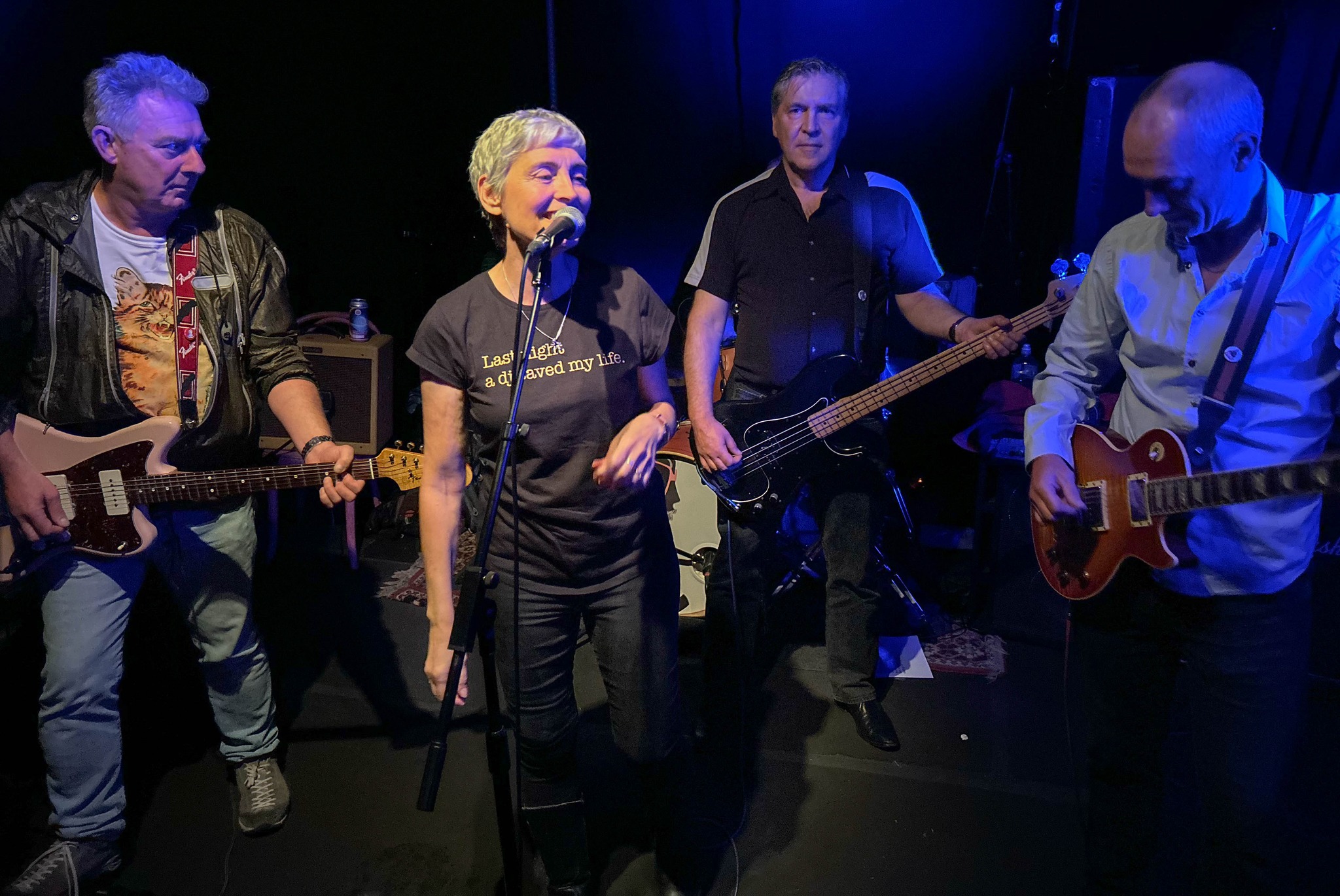
Do you have any band rules about stagewear and banter?
Never let Simon near the mic. We’re always trying to persuade (drummer) Ken to wear a vest. Once Simon accidentally pocket-dialled Pat during a song, so I guess we should really ban phones onstage.
If we came to Brighton for a day, what should we definitely do?
Pick up a Happy Maki sushi wrap and eat it in Pav Gav (young person’s speak for Pavilion Gardens). Wander through the North Laines, being sure to visit Resident Music and to buy something colourful from Lucy & Yak (dungarees recommended). Play ‘Toad’ at The Hole In The Wall pub (toad table custom made by our friend and some time driver Garold). You should probably get some squishy donuts from the pier and sit on the beach with the thousands of other tourists. Finish off with a rock ‘n’ roll pint at The Albert (home of our annual Christmas shindig).
If you could choose any well-known musician from Brighton, past or present, to join the Popguns, who would it be, and why?
Dave Gilmour would be fun! And not at all intimidating. I like to sing a little Leo Sayer at karaoke, though strictly speaking he’s from Shoreham, just along the coast.
It’s fascinating (to me, at least) when a group records two unrelated songs with the same title. What inspired the Popguns to do an original called “Bye Bye Baby” as well as cover the identically named Four Seasons song?
I was a huge Bay City Rollers fan, so I loved that song. We actually had a Four Seasons album on cassette when I was growing up and I loved their music – but it didn’t have that song on it, so I didn’t know at the time that it was a cover. We were invited to contribute a track to an album of ’70s Number 1s for an Anti-Poll Tax album put together by a friend, and it seemed a fun idea to cover a song with the same name as one of ours – we ilke to confuse!!
Simon, your husband and bandmate, writes the songs that you then give voice to. How autobiographical are the songs when it comes to either your life or his?
Annoyingly autobiographical – what am I going to write about for my solo project?
How did you both determine which songs would be Popguns songs and which would you and Simon record for your other shared musical project, the Perfect English Weather?
It’s usually obvious: one, there is a distinction between indie rock and indie pop and TPEW definitely falls in the latter category, so they tend to be the lighter songs; two, TPEW songs are on the whole more personal to us as a couple; three, the Popguns reject it!
What advice would you give groups that contain a creative partner who is also a romantic partner so they don’t end up like Fleetwood Mac? Or perhaps they’d do well by following Fleetwood Mac’s example?
It’s not always a recipe for a successful relationship, is it? Weirdly, we don’t spend a lot of time working on music together at home. Simon writes the songs, then the rest of us contribute in the rehearsal room and studio – that goes for The Popguns and The Perfect English Weather. Maybe that’s why it works?
How did you get on with the other acts who recorded for your early ’90s label Midnight Music, or did you not interact much?
We didn’t really know any Midnight labelmates, but we got on great with The Waltones, who were on Medium Cool with us.
Who came up with calling the group the Popguns, and were you all surprised that no other band seemed to have come up with a name so basic yet essential before you did?
Well we’ve never been happy with it, we just couldn’t agree on anything else – it was a case of picking a name that no-one was happy with! Glad you think it works!
The group took a break lasting more than a decade before forming again. What have you found to be the biggest adjustment in making music in the 2020s, for better or for worse?
The studio is so much easier to use – not that I ever need it ;), but dodgy notes can be straightened out in seconds! And all those sounds at your fingertips – fun, but also potentially extremely timewasting. And so much can be done at home, which I think is a good thing, though Simon does have a habit of spending days locked away in his room doing remixes. The music making side is great, the social media side not so – not a natural world for us boomers/Gen Xers.
Has the Popguns’ musical catalogue been featured in any adverts, films, or TV shows? Do you have any problems with the concept of “selling out,” whatever that means to you?
It has! A highlight for me was “Second Time Around” on BBC’s “Homes Under The Hammer”. We also featured in a 2018 Netflix series (“Everything Sucks!” – sadly didn’t get past Season 1) and a 2020 film, “Pink Skies Ahead”, which rather excitingly had Henry Winkler and Michael McKean in its cast. There must’ve been a late ’80s/early ’90s indie revival! No ads that I’m aware of, and I would definitely want to have a say in that respect. I am a VERY ethical person!
Let’s say for some odd reason you found yourself in the need to recruit someone to impersonate your singing voice (please don’t ask why, just play along, if you may). Which singer do you think would be able to do the job?
Natalie Merchant please!
How has existing in older bodies changed how you go about touring, as opposed to 30 years ago?
Oh my God, it’s knackering!! Definitely no more than two nights in a row. And much lighter on the booze. And Greg now brings salad as a snack
The Popguns often perform A Tribe Called Quest’s “Can I Kick It.” When and how did you realize that you had the mad flow needed to rap credibly?
Haha! I trained by learning the intro to “The Lone Ranger” by Quantum Jump. That and “Cool for Cats” by Squeeze
Which one Popguns song would your fans express strong unhappiness if you were to leave it off your live set list? And, in general, how accommodating are you to playing fan favorites when planning what to perform at shows? Is it a “one for you, one for me” situation?
You’d have to ask them, but I’m guessing “Bye Bye Baby” or “Waiting for The Winter” – they’re the biggest singalong songs. We make occasional exceptions, but as some of us (me included) are quite bad at remembering the songs we mostly have to stick to the set we’ve been practising. We do try to mix it up though!
What are some memorable live shows you played in the old days and recently?
Plymouth Cooperage 1990? 91? is a fond favourite for its stage invasion. Shelly Arms in Nutley (similar time?) for its bonkersness. More recently, Hamburg in 2016 and Athens in 2019 due to the unexpectedly large and enthusiastic crowds. Every Prince Albert ‘home’ Christmas gig is lovely—so many familiar faces in the audience. Last year’s Albert gig was fun as Ken & I switched places for one song – me on drums, him on vocals. And earlier this year we played at the wedding of two of our biggest fans, which was incredibly special and moving. Oh, not forgetting Mike Joyce playing “Rebel Rebel” as our intro music at the 100 Club in London – pretty cool!
Do you have any horror stories?
Can’t really top Greg falling from a second floor window in Plymouth and breaking his wrist (a lucky escape). I don’t know, I tend to get shielded from all of the bad stuff – I’m still that square and not-very-cool girl at heart!
Have you ever played in the US?
Yes! We played New York Popfest in 2014. It was an odd one—we loved being there, but we had a late (headline) slot on the Sunday night and not everyone stuck around to see us. Of course we had to use other people’s gear and Pat borrowed a bass guitar from a very generous but very small person. The bass was a perfect fit for its owner, but hilariously tiny on our Pat (who is not a very small person!). Much chuckling ensued!
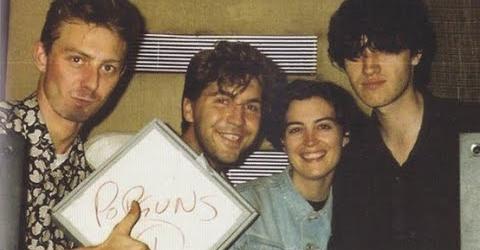
Favorite place to play?
It has to be The Albert. Be nice to play Brighton Dome though. Or Glastonbury!
Do you have day jobs, pets, kids?
I was teaching pop singing to teenagers, which I loved, but stopped when the pandemic hit. Currently trying to do my bit to combat the climate crisis. I’ve started a climate choir, which is lots of fun. I completed a Masters in Songwriting last year and am now considering doing a PhD in something environment and music related. Dr Wendy! Simon still works part-time as a computer programmer. Pat and Ken are proper businessmen with their own companies. Greg works in IT at Brighton & Hove council. That’s not very rock ‘n’ roll is it, maybe scrap that answer!!!
Simon & I have two children, both now graduated from Uni. Anna is living and working in London and is a committed environmental champion, Thomas has only just graduated and is figuring out what to do next. They are of course wonderful human beings, are both very musical and have impeccable taste! We have two young, adorable cats – one ginger, one black. Not great for my environmental credentials as we feed them meat and they bring in many, many little dead bodies 🙁
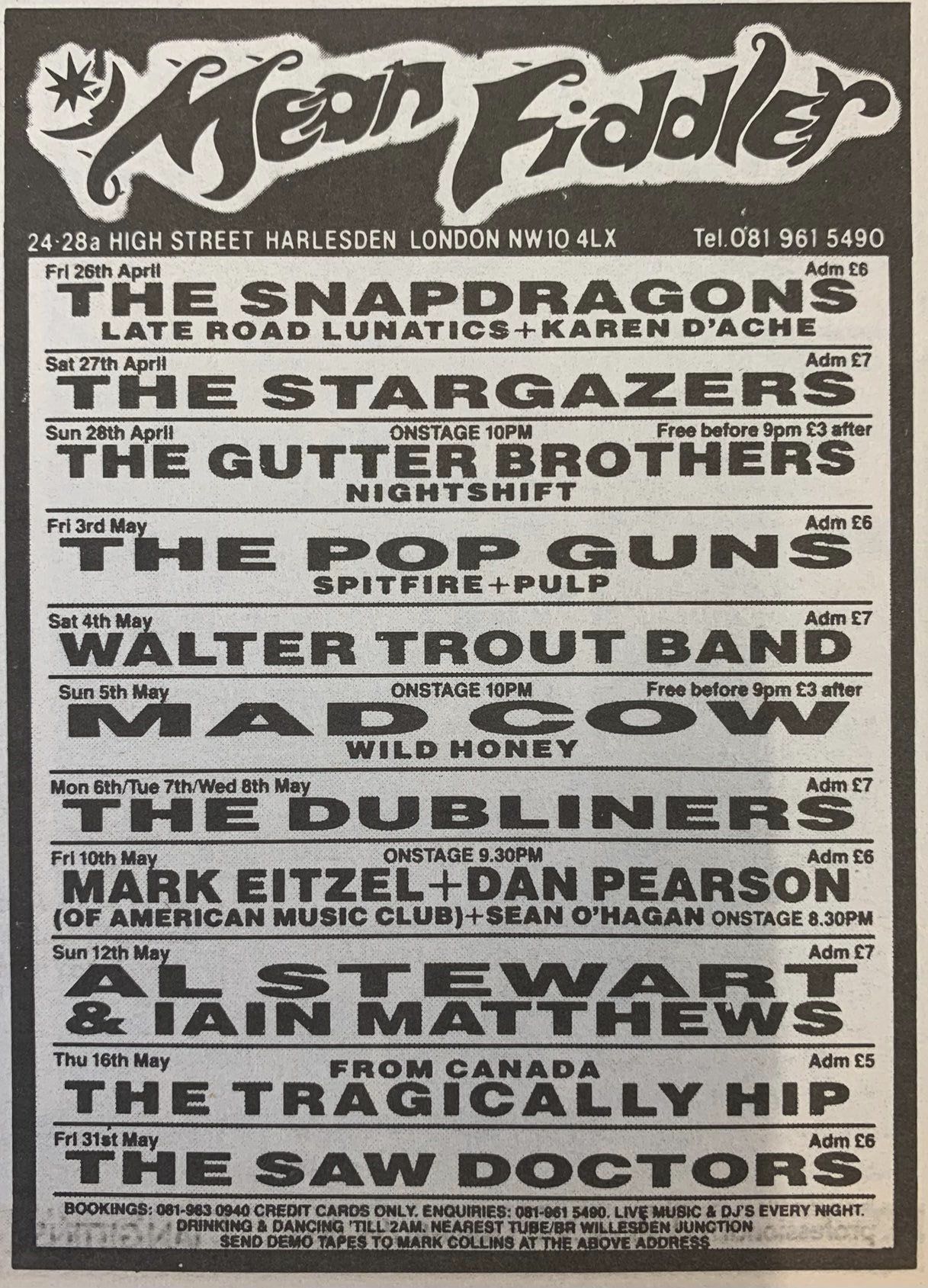
What are you reading, watching, cooking, eating?
I have a stack of environment related books to get to, but I’ve been distracted in the last week or so by the discovery that I can successfully complete a difficult killer sudoku. Maths was never my strong point, so it is a big surprise! I prefer baking to cooking – my signature dish is vegan almond macaroons. We get a weekly organic veg box so I’m often trying to work out what to do with kohlrabi or padron peppers – any ideas?
Anything else you’d like to add? News, shows, new releases?
We’re looking forward to playing with The Frank & Walters at 229 in London on 28 September. Apart from our usual Christmas gig at the Albert that’s it for the current tour schedule. Very soon we will be returning to the studio, so new material will be out in 2025.
Records Wendy cannot live without
There are a handful of oldies I always go back to –
“Swoon” by Prefab Sprout
“Liberty Belle ..” by The Go-Betweens
“Captain Fantastic …” by Elton John
any Smiths/Beatles/Jam/REM
“Young Americans” by Bowie
“Behaviour” and “Very” by Pet Shop Boys
“The Clock Comes Down The Stairs” by Microdisney
“Nilsson Schmilsson”
Mostly quite predictable. Currently though, my go-tos are the upcoming Fontaines DC album (“Favourite” is an instant indie classic!), also “A Hero’s Death” by Fontaines, “If My Wife New I’d Be Dead” by CMAT (she is AMAZING!), “2020” and “The Hermit” by Richard Dawson (almost my favourite artist in the world), “Illinois” by Sufjan Stevens, “Seeking New Gods” by Gruff Rhys. “American Dream” by LCD Soundsystem. I realise there is a distinct lack of female musicians in that list – oops! I love Laura Marling and Pearl Charles!
